I love redpolls. It’s not easy to explain why I like redpolls that much. With their nice red cap and their tiny bill they appeal to many bird lovers. There are different species of redpolls and not always easily identified in the field.
The reason being that, for example, they perch high in trees, are easily frightened and that there are various types of redpolls. Some features of the different types of redpolls are really similar. In this article I will briefly discuss some different redpolls, of course by using my own pictures, added with some descriptions. Why? Just for fun.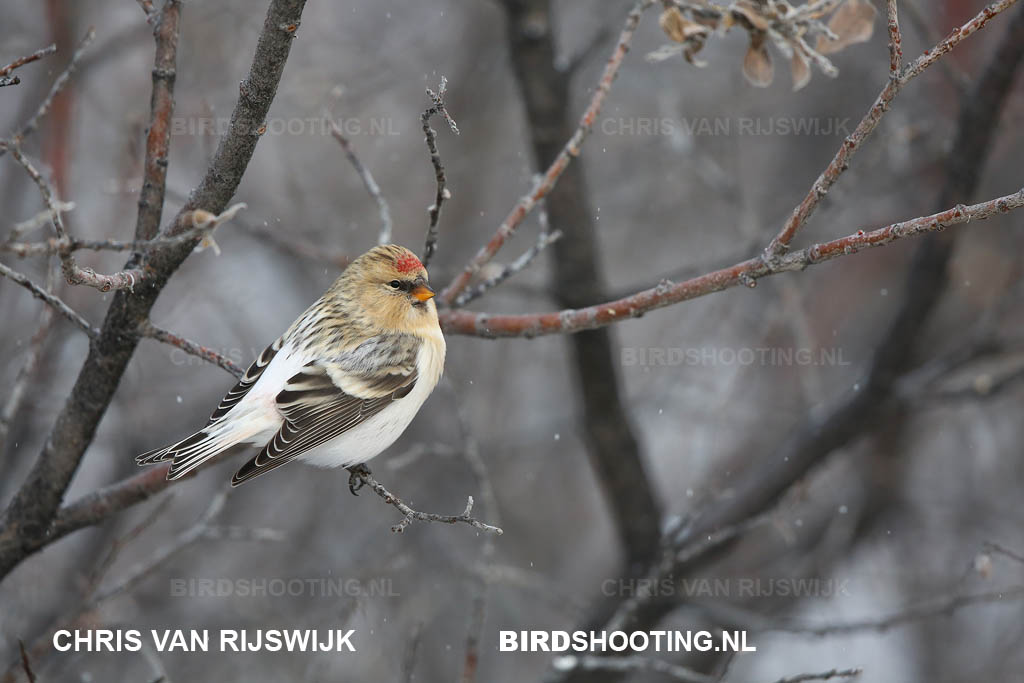
Hornemann’s Arctic Redpolls, Greenland, October 2017.
General
Redpolls are finches with a red cap and a black throat. From this alone, they are easy to identify as redpolls. Adult males have not only a red forehead but also a red or pink glow on their breast, their tail and sometimes their rump. Twites (missing the red forehead and the black throat) and Linnets (also a pink breast) sometimes look like redpolls.
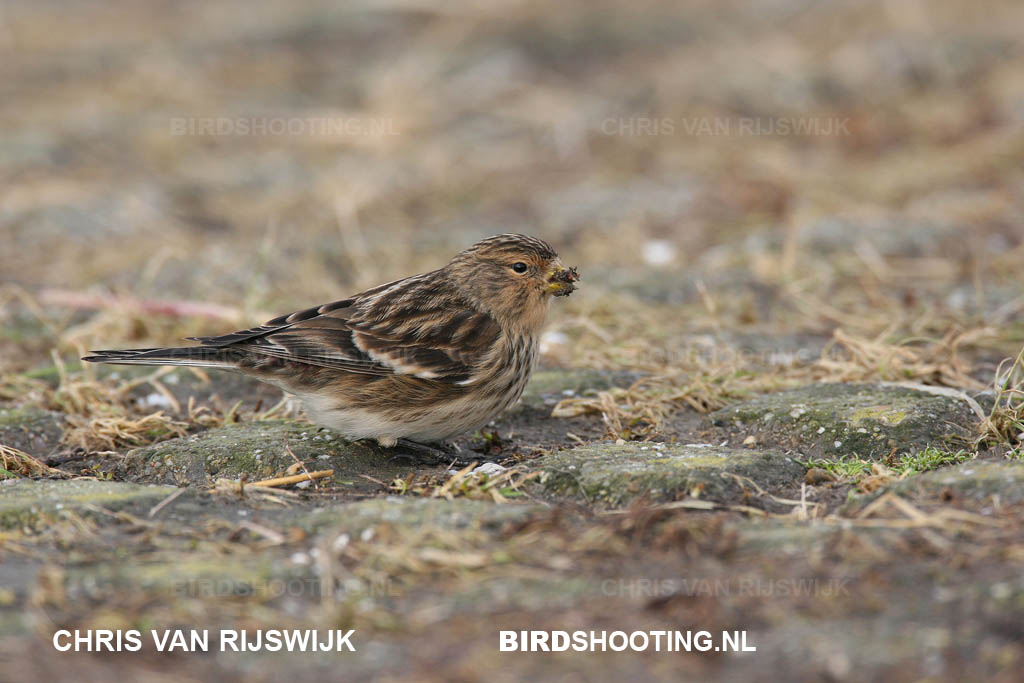
Twite, Oesterdam, the Netherlands, January 2007.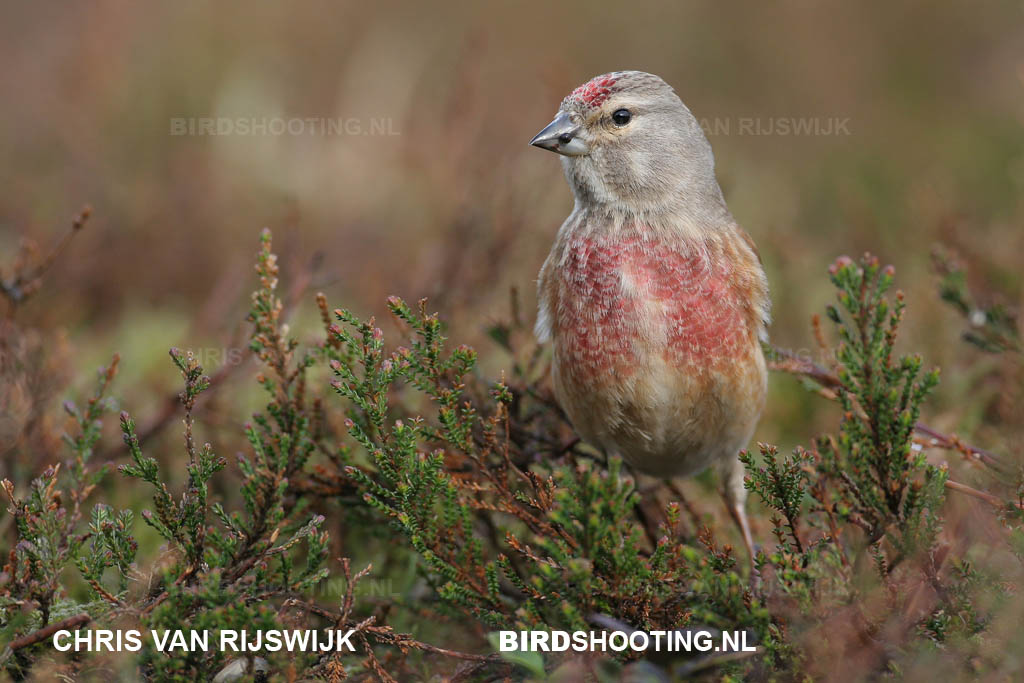
Linnet, adult male, Holterberg, the Netherlands, april 2005.
If the different redpolls are species or subspecies is disputed by some birders. In this article I won't get into this topic, as I don't believe it to be an important item. Also the sounds of the redpolls are probably different, but as it's not my area of expertise I won't mention them in this article.
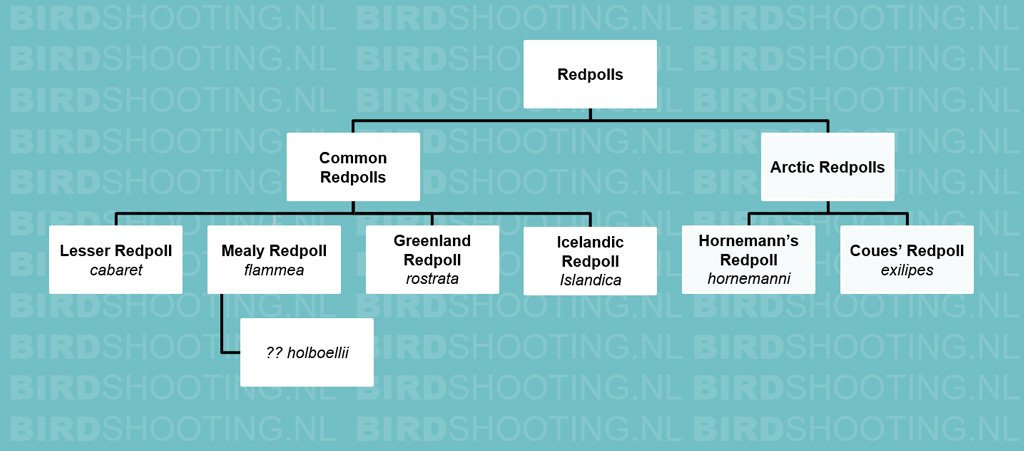
Lesser Redpoll (Acanthis cabaret)
Mealy Redpoll (Acanthis flammea)
Holboelli type (Acanthis flammea holboelli?)
Greenland Redpoll (Acanthis rostrata)
Icelandic Redpoll (Acanthis islandica)
Coues’s Arctic Redpoll (Acanthis hornemanni excillipes)
Hornemann’s Acrtic Redpoll (Acanthis hornemanni hornemanni)
Sexing and ageing redpolls?
Lesser Redpoll (Acanthis cabaret)
The Lesser Redpoll is a scarce breeding bird in the Netherlands and the United Kingdom. Generally they are smaller than the Mealy Redpoll and have a warmer tint. The wing bars are cream and more warmly colored. Finally, their bill is more tiny than that of the Mealy Redpoll. In my opinion Lesser Redpoll is not always easy to identify. I often see pictures of Lesser Redpolls and find myself asking: why is this bird not a Mealy Redpoll? And vice versa, of course.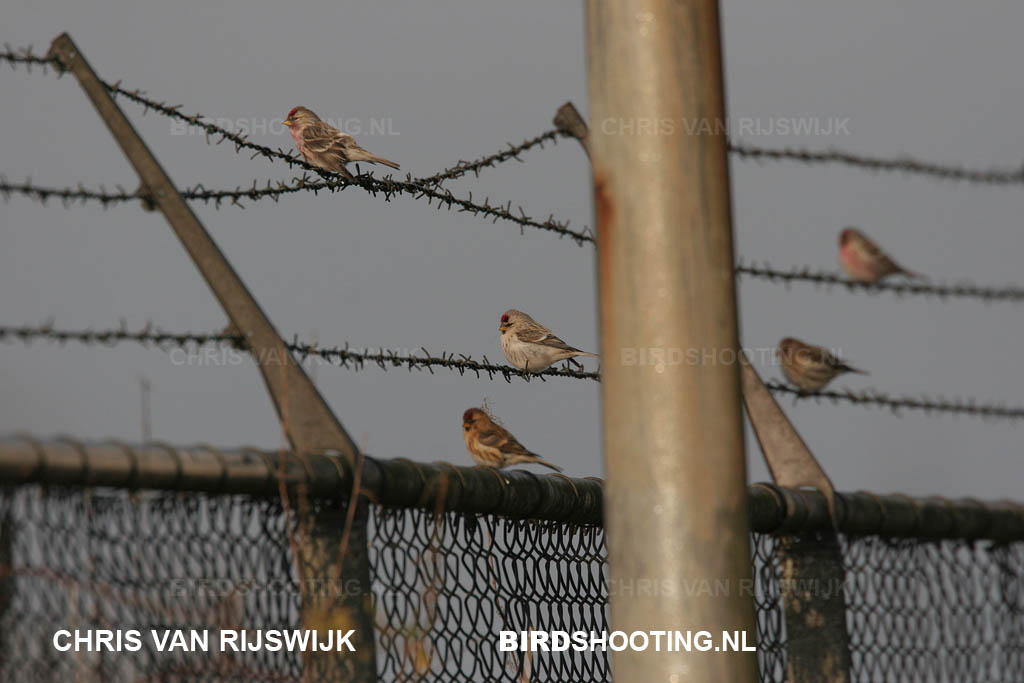
From top to bottom: Mealy Redpoll (male), Coues’s Arctic Redpoll and Lesser Redpoll, Zuthpen, the Netherlands, December 2005. Warmer colored than the Mealy Redpoll. Smaller than the Mealy Redpoll and the Coues’s Arctic Redpoll.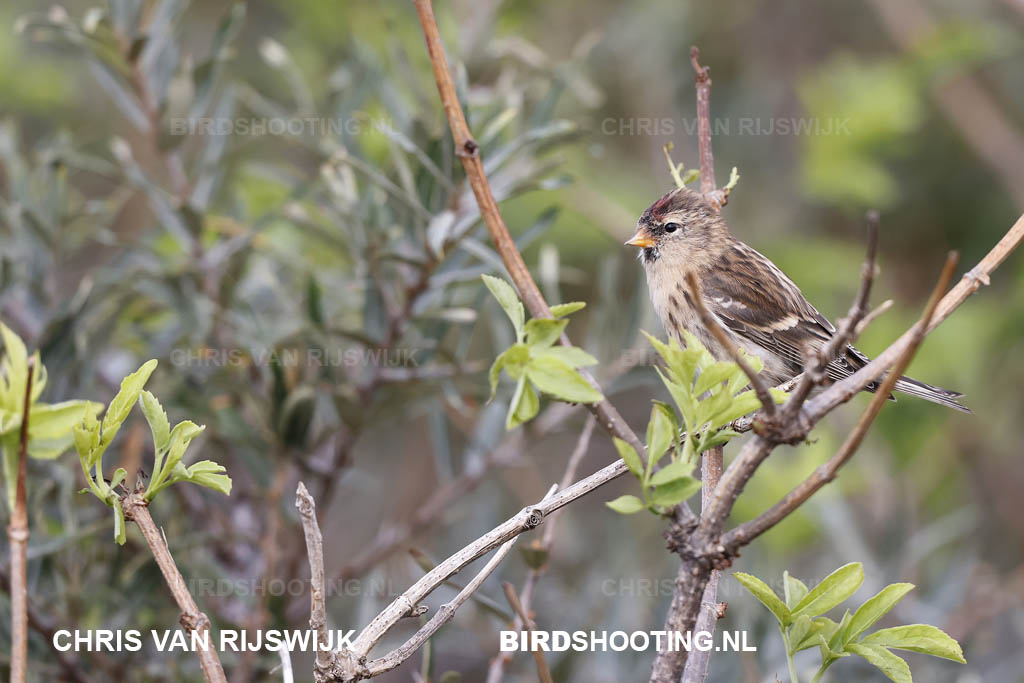
Kleine barmsijs, Maasvlakte, September 2020.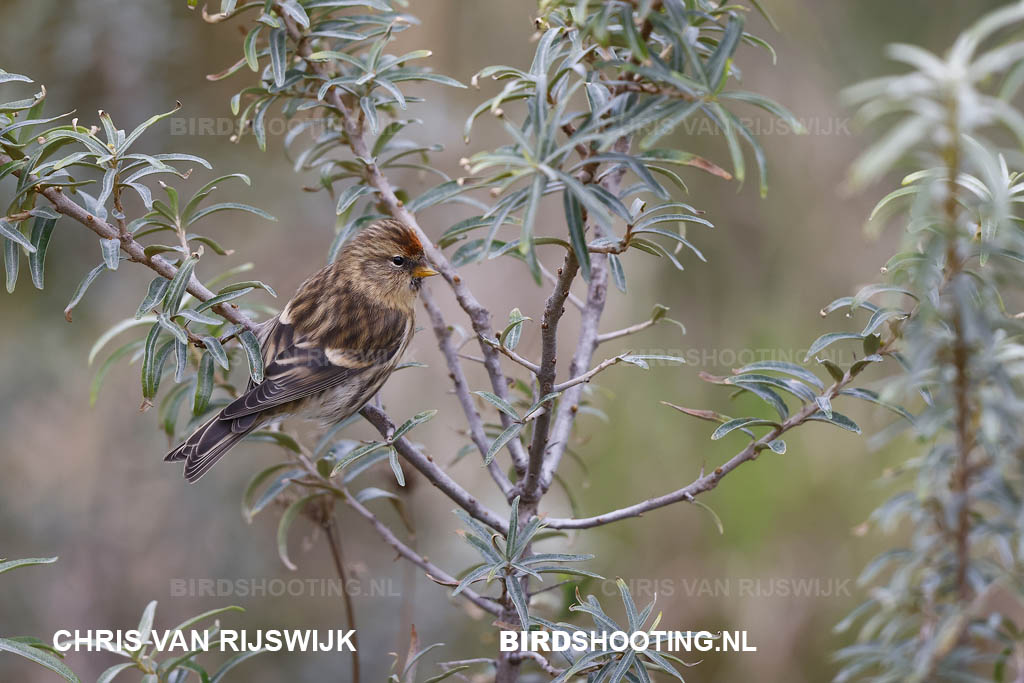
Lesser Redpoll, adult female, Helgoland, October 2022.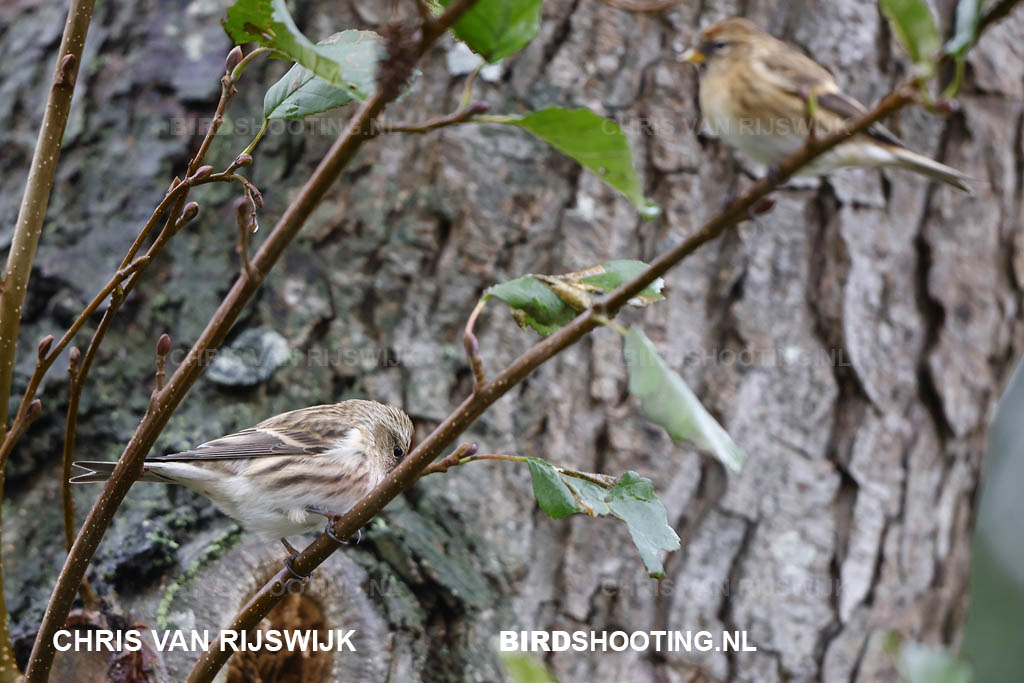
Mealy Redpoll and and Lesser Redpoll. Rottemeren, November 2023.
Frank Neijts sent me some nice pictures of Lesser Redpolls, see below. Notice the warm colors and the creamy wing bars.
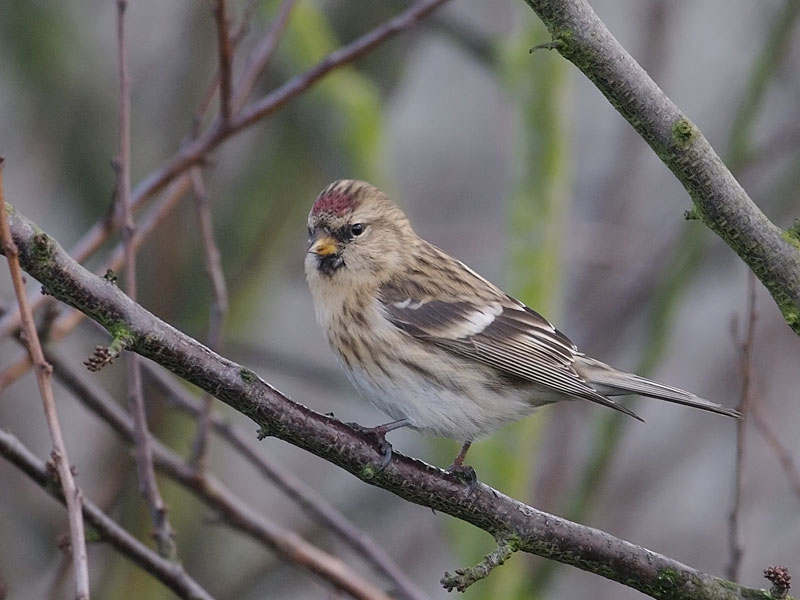
Lesser Redpoll, adult woman, Acht, the Netherlands, November 2010. Photo: Frank Neijts.
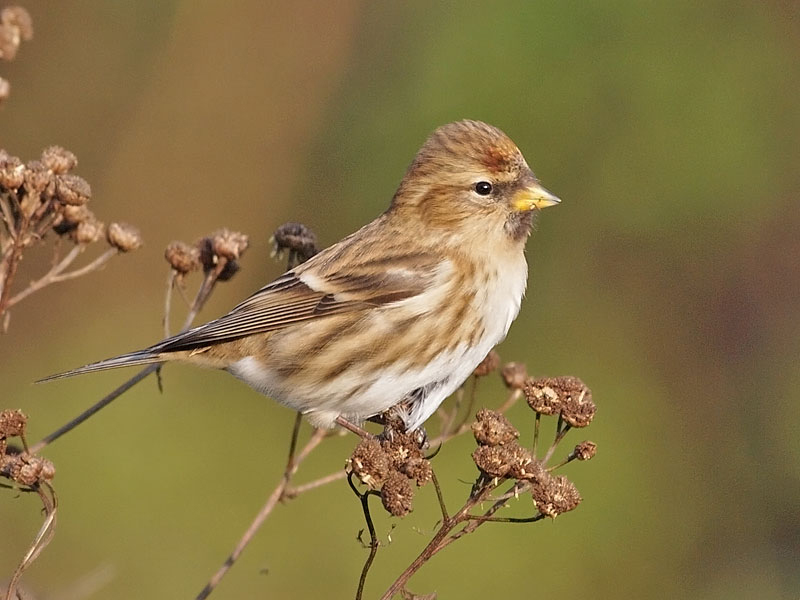
Lesser Redpoll, Acht, the Netherlands, November 2010. Photo: Frank Neijts.
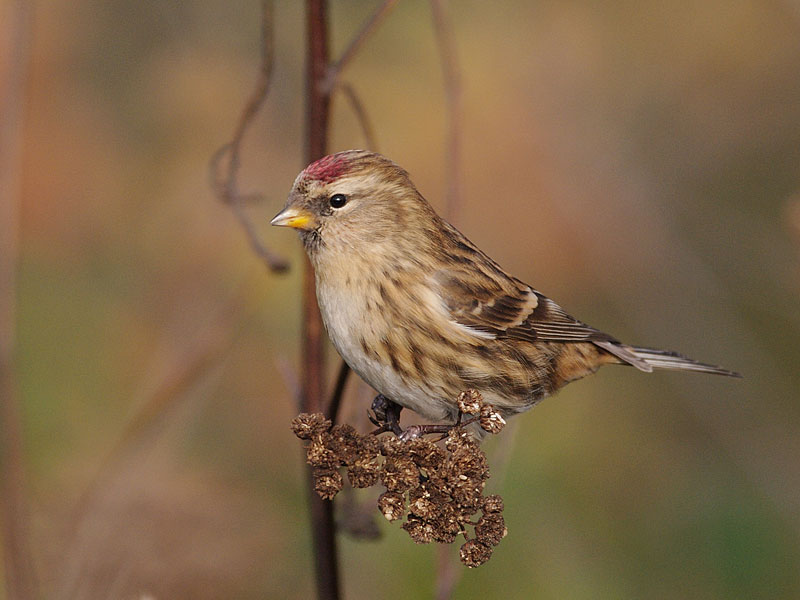
Lesser Redpoll, Acht, the Netherlands, November 2010. Photo: Frank Neijts.
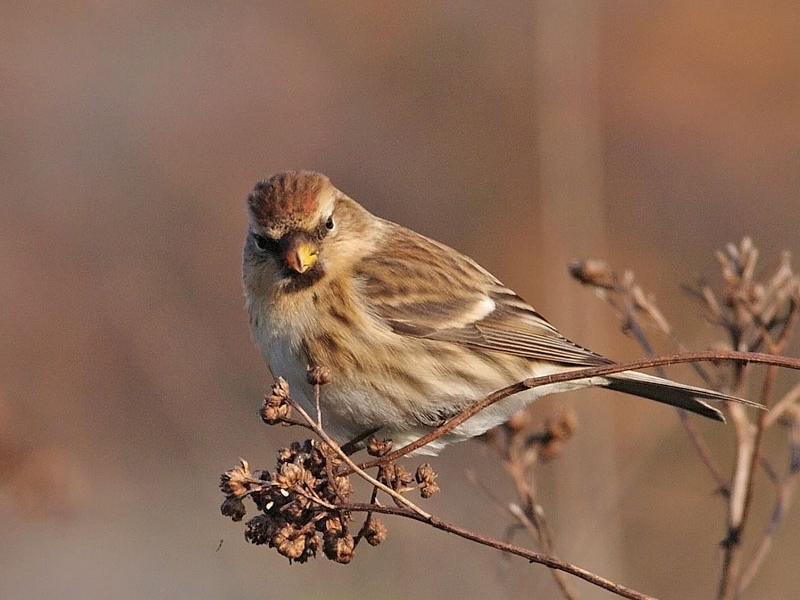
Lesser Redpoll, Acht, the Netherlands, November 2010. Photo: Frank Neijts.
Mealy Redpoll (Acanthis flammea)
In some years (particularly during autumn and winter) large flocks of Mealy Redpolls reach the Netherlands and the United Kingdom in large numbers. In other years they are scarce. Sometimes these birds migrate long distances. Once a Mealy Redpoll was catched in Northeast China, ringed (November 14th, 2004) and recaptured on November 13th, 2005 in Meijendel (the Netherlands). The differences between Lesser Redpoll and Mealy Redpoll are described above.

Mealy Redpoll, adult male, Scheveningen, the Netherlands, January 2006.
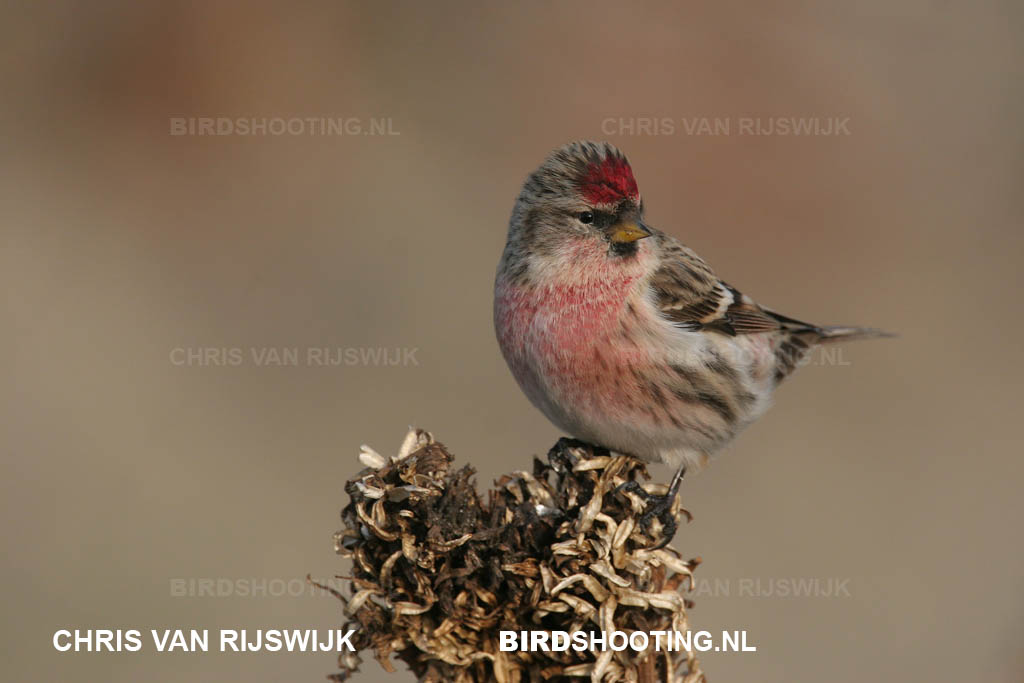
Mealy Redpoll, adult male, Scheveningen, the Netherlands, January 2006.
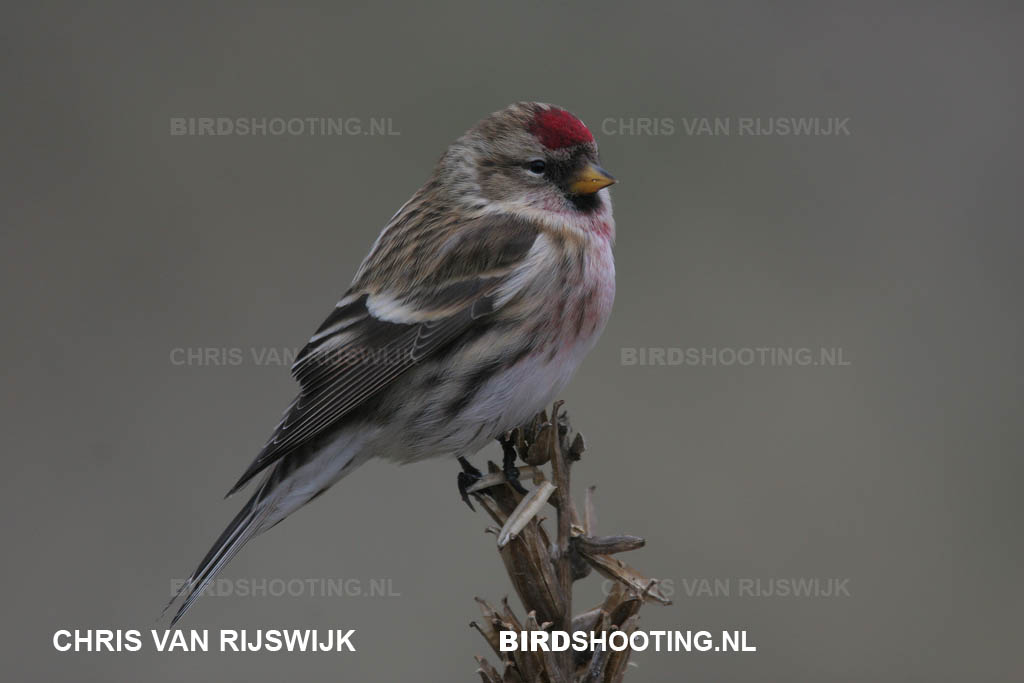
Mealy Redpoll, adult male, Scheveningen, the Netherlands, January 2006. Different light conditions, this bird doesn't look as warm colored as in the previous picture.
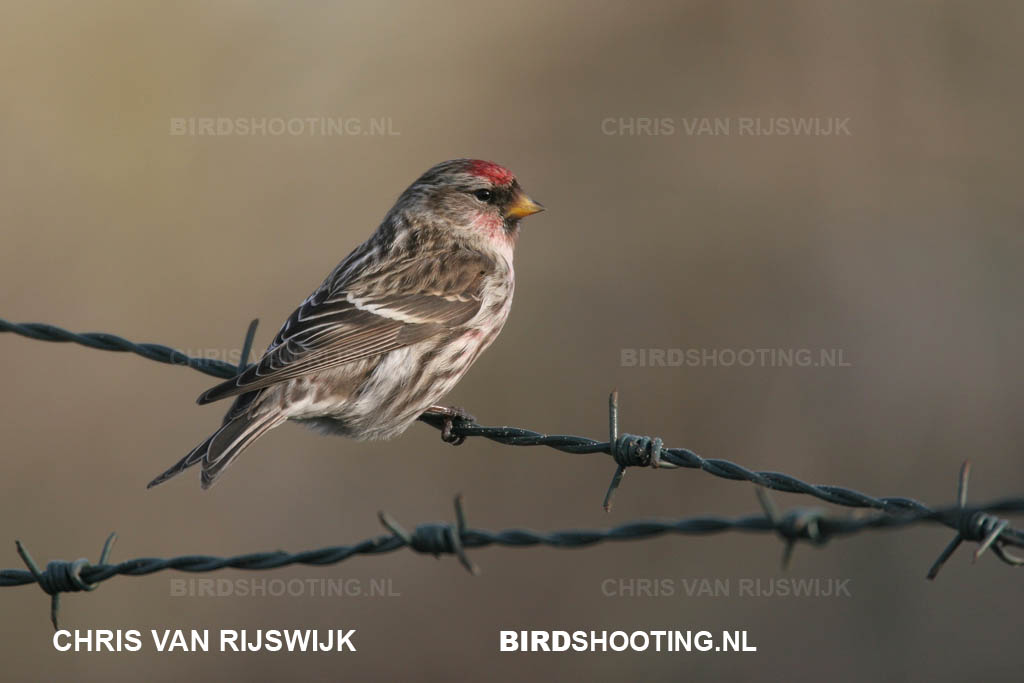
Mealy Redpoll, adult male, Scheveningen, the Netherlands, January 2006. A dark bird that looks almost like a Greenland Redpoll.
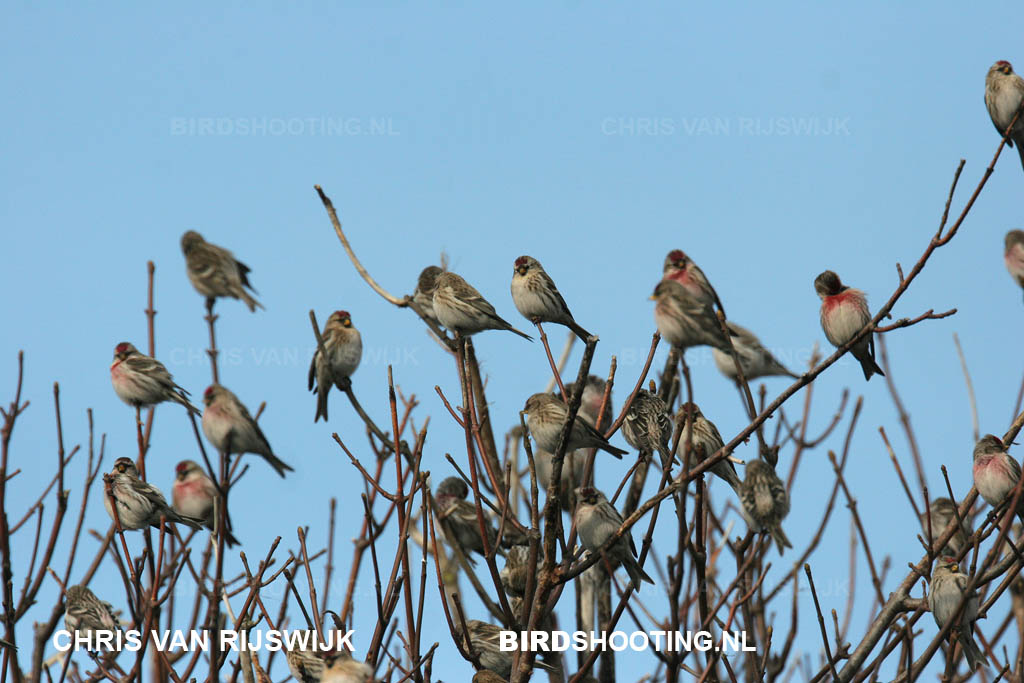
Mealy Redpolls, IJmuiden, the Netherlands, February 2006.
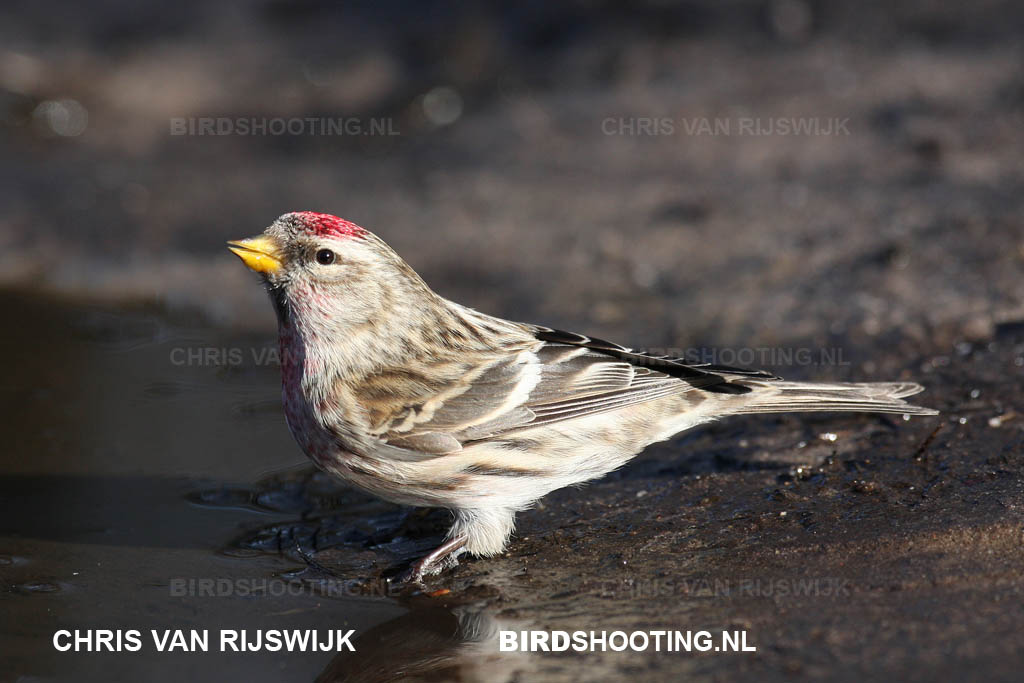
Mealy Redpoll, adult male, Baarn, the Netherlands, February 2008.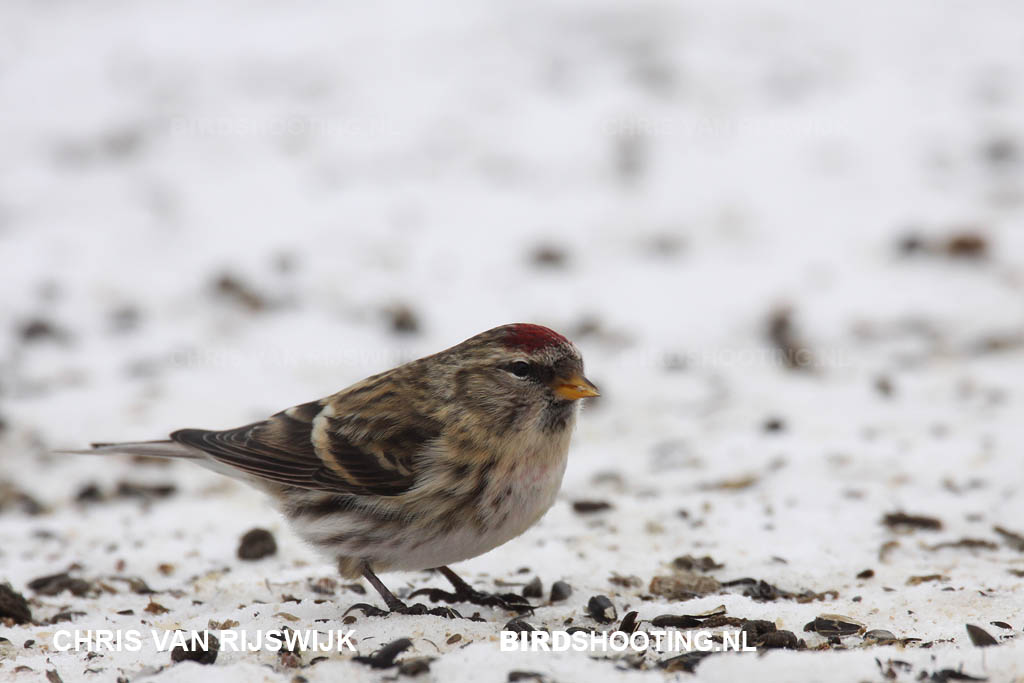
Mealy Redpoll, adult male, Canada, January 2010.
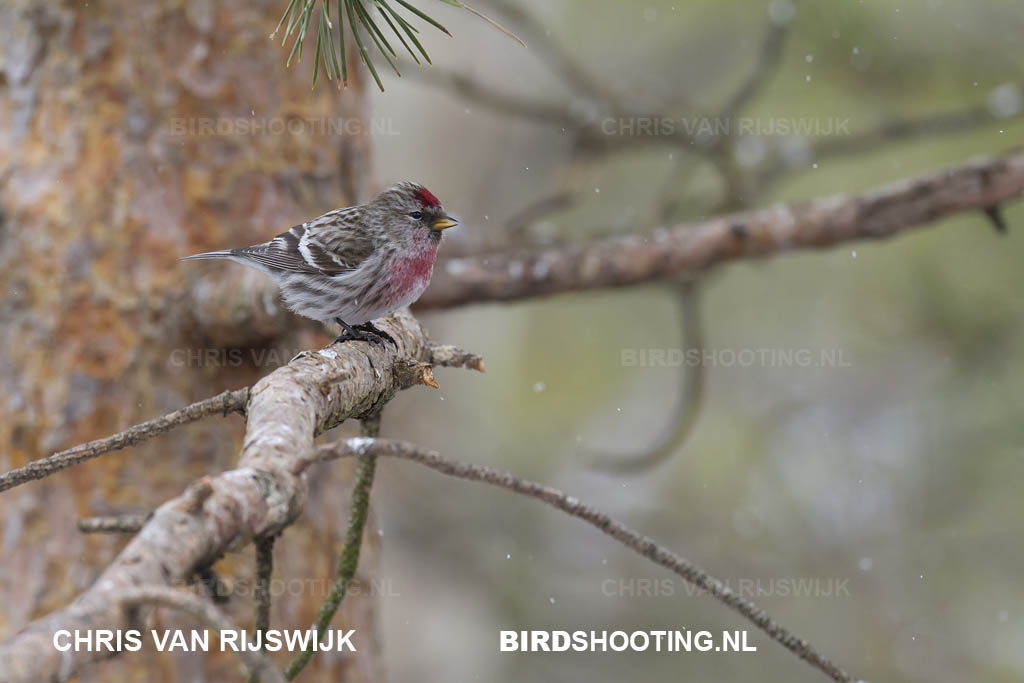
Mealy Redpoll, adult male, northern Finland, May 2012.
Holboelli type (Acanthis flammea holboelli?)
There are Mealy Redpolls with long bills (like goldfinches). These birds probably come from Russia, but that’s still uncertain. Some birders consider this long-billed redpolls as a separate (sub)species (Acanthis flammea holboelli). However, most experts regard them as an 'ordinary' Mealy Redpoll with a longer bill.
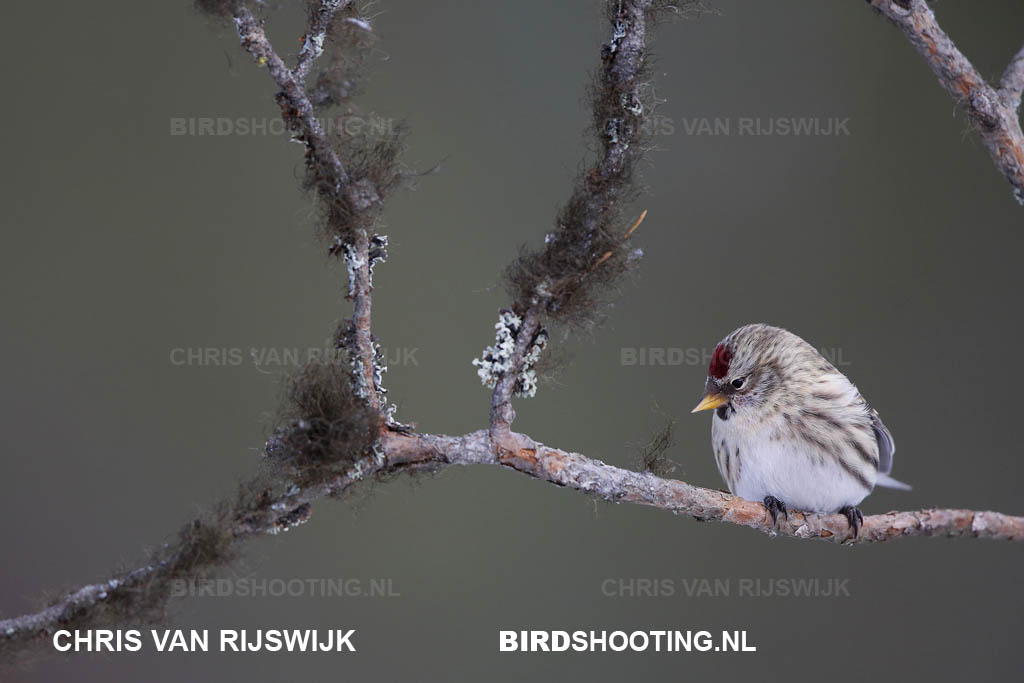
Holboelli-type redpoll, northern Finland, March 2015. Notice the long bill.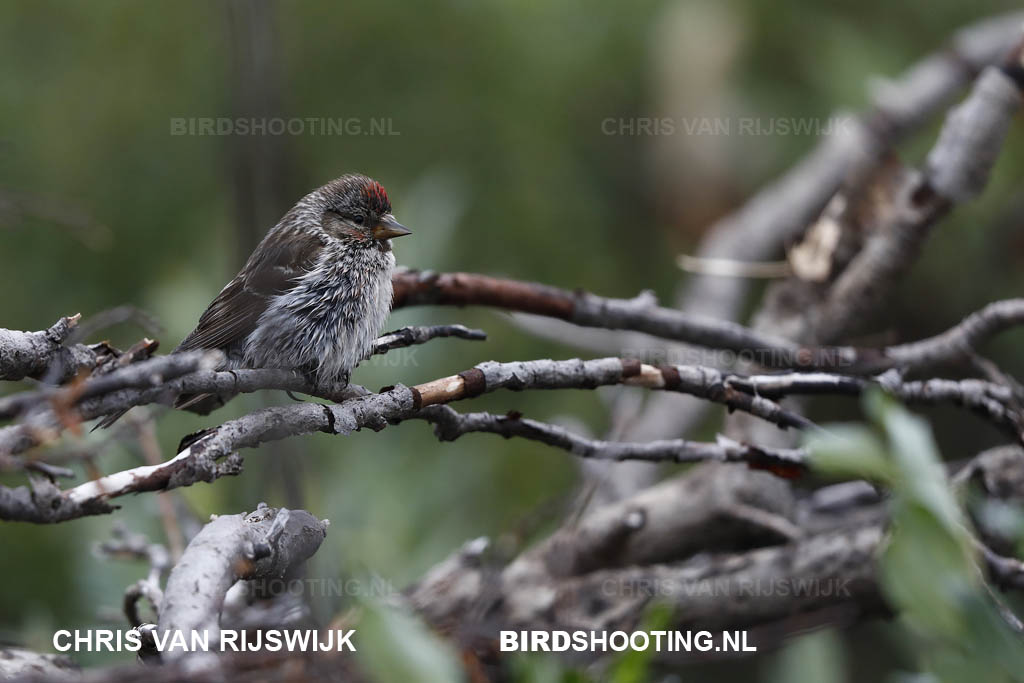
Holboelli-type redpoll, Siberia, June 2019.
Greenland Redpoll (Acanthis rostrata)
Greenland Redpolls breed in Greenland. Some remain there for the winter while others might venture outside the country. Each year a few birds are observed in Western Europe in the autumn, especially on the Shetland Islands. These birds are characterized by their dark chocolate brown appearance. When I visited Greenland (March 2013) I saw a Greenland Redpoll every day amongst the Hornemann’s Arctic Redpolls. This bird was simply recognized by the dark appearance and the slightly smaller size. Even in flight it was easily recognizable by its warm colors. Slightly smaller than the Hornemanns’ Redpoll, brown-tinged overall with heavy streaking on the upperparts and underparts, the rump was white, but heavily streaked with dark.
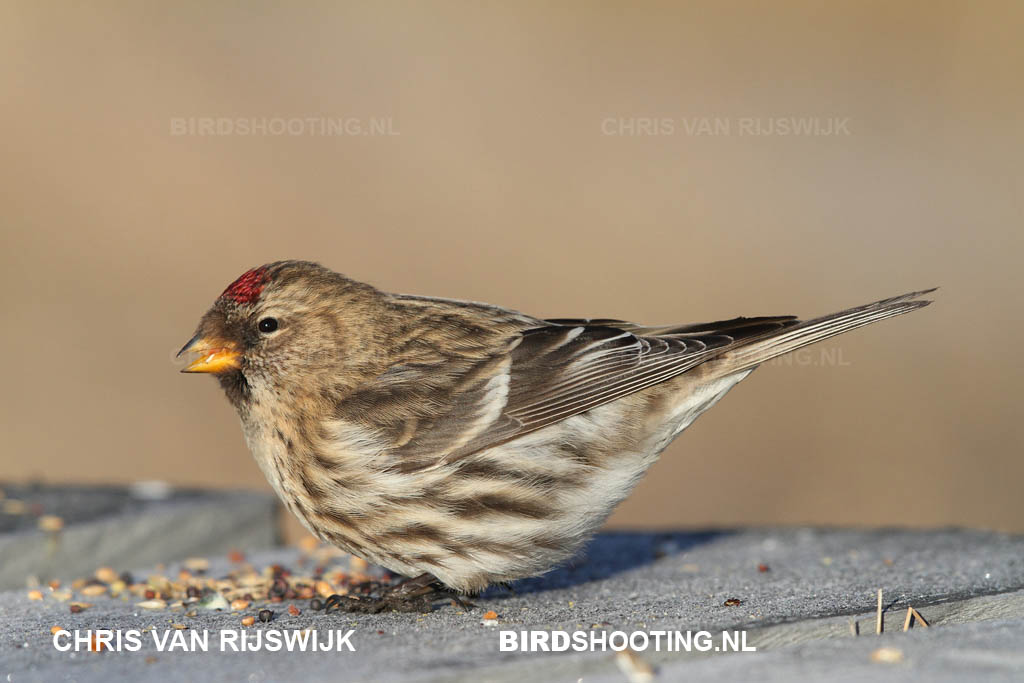
Greenland Redpoll, Greenland, March 2013.
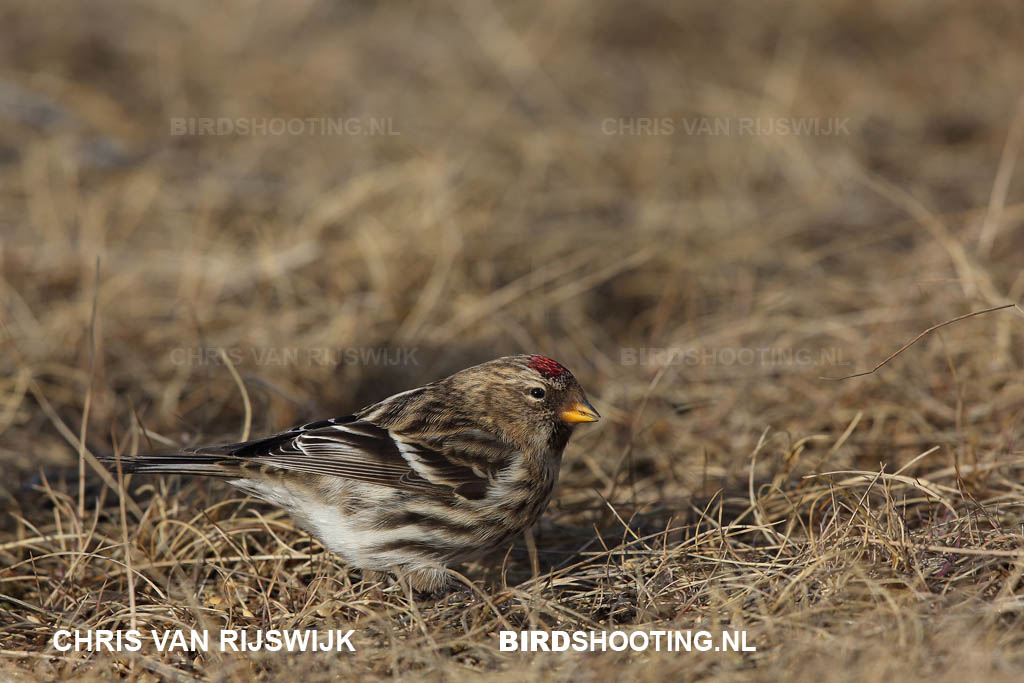
Greenland Redpoll, Greenland, March 2013.
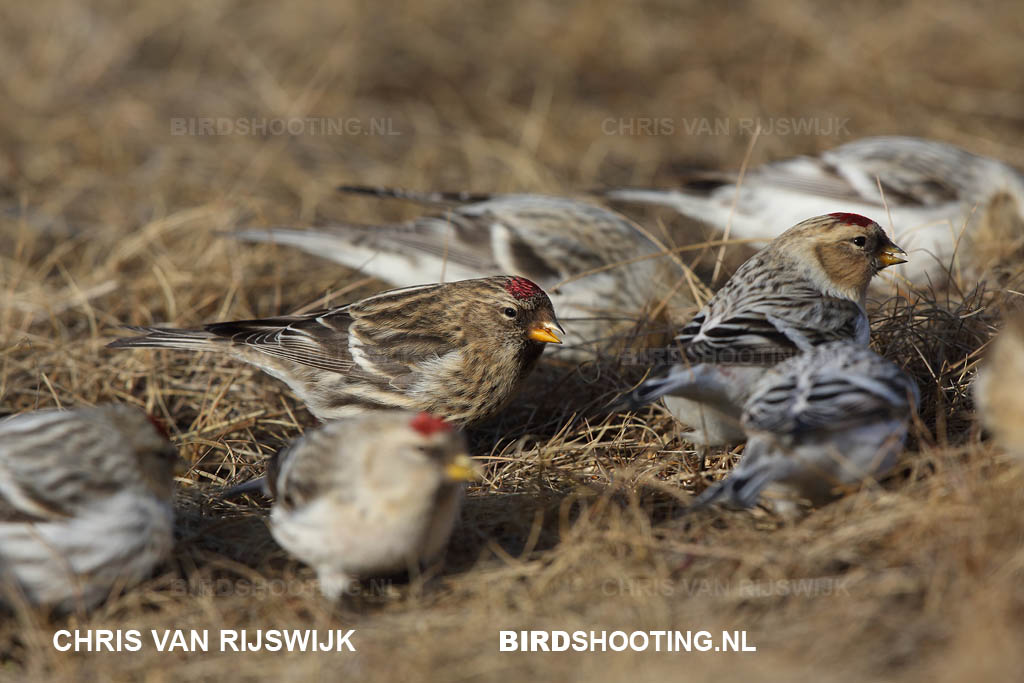
Greenland Redpoll with Hornemanns’ Redpolls, Greenland, March 2013.
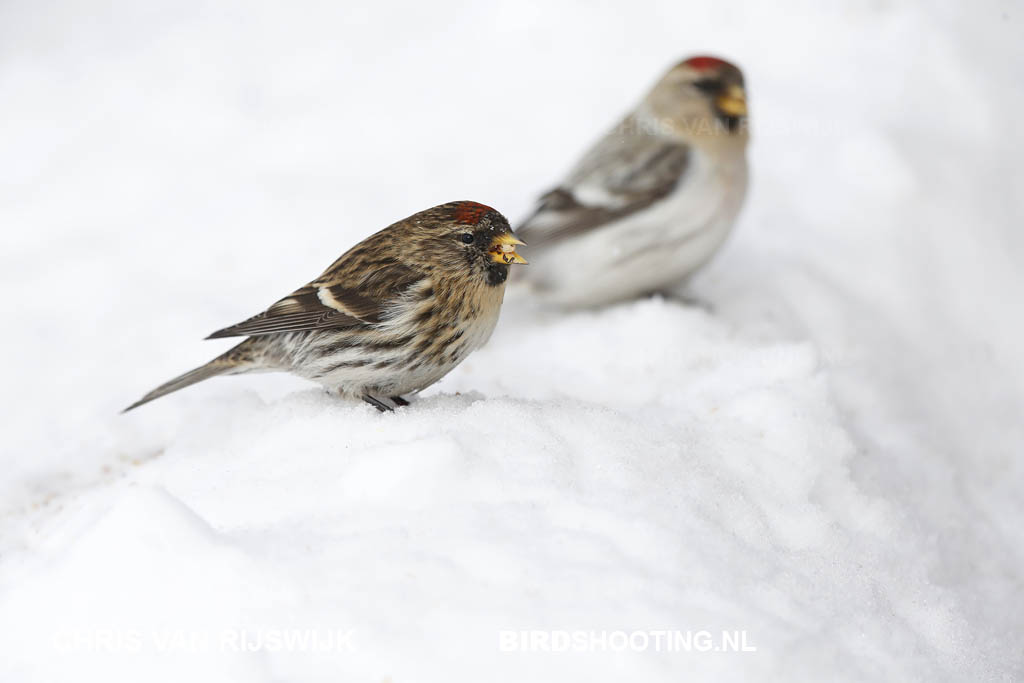
Greenland Redpoll with a Hornemann’s Arctic Redpoll, Greenland, March 2017.
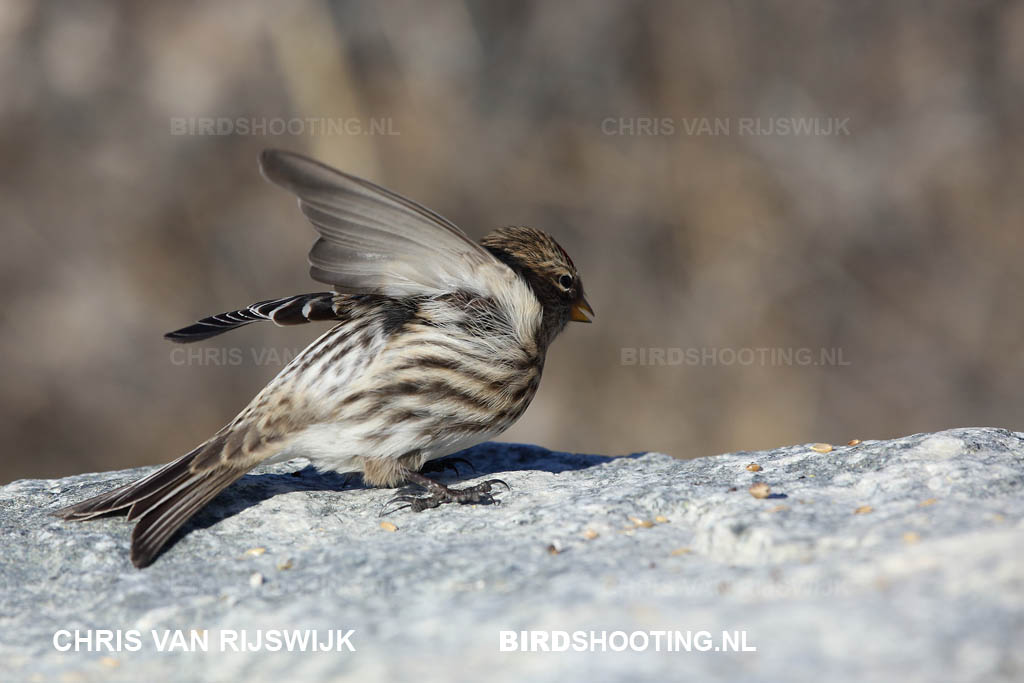
Greenland Redpoll, Greenland, March 2013. Notice the white rump and heavy streaking.
Icelandic Redpoll (Acanthis islandica)
The Icelandic Redpoll is a huge and dark redpoll. Darker than our Mealy Redpoll (flammea) and Lesser Redpoll (cabaret). Usually it is seen as the same (sub)species as the Greenland Redpoll (rostrata). They have a few things in common: namely their large size and dark appearance. They have a huge bill and are heavily streaked. The males showed a subtle pink tint (of course except for the red on the front of their head). The Greenland Redpoll is, compared to the Icelandic Redpoll, more distinct; so they are bigger, darker, heavier streaked, etc. In Iceland there is also a presence of light-colored redpolls, which look similar to Arctic Redpolls. More about the differences between an Icelandic Redpoll and a Greenland Redpoll, click here.
Icelandic Redpoll, Akureyri, (North) Iceland, April 2016, dark type.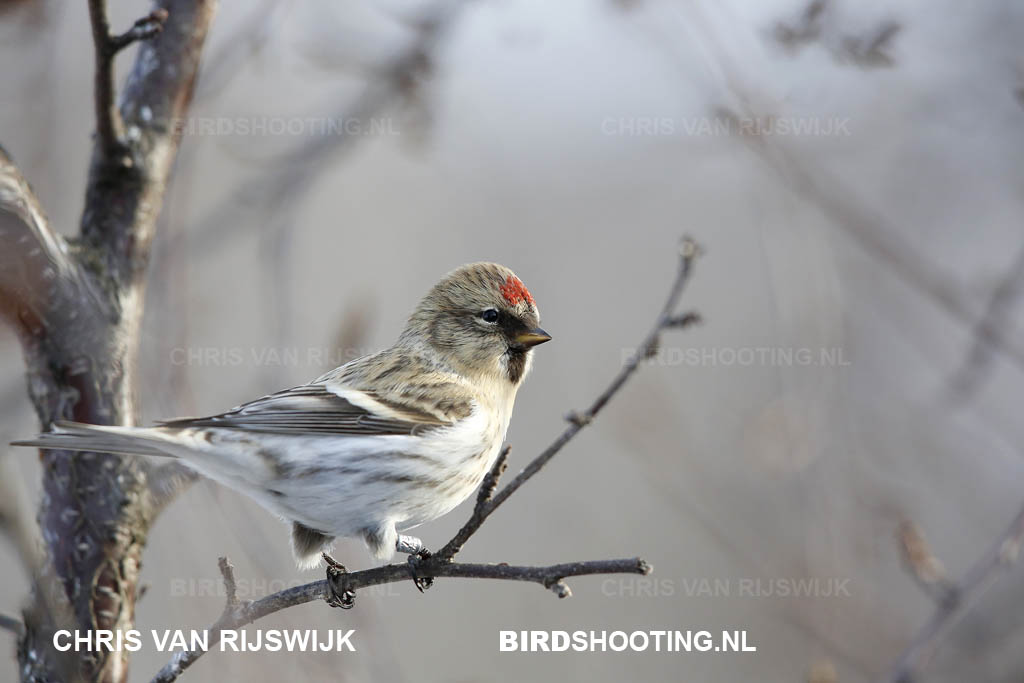
Icelandic Redpoll, Akureyri, (North) Iceland, April 2016, pale type.
Icelandic Redpoll, Akureyri, (North) Iceland, April 2016:
Icelandic Redpoll, Kópavogur, (South-West) Iceland, April 2016:
Coues’s Arctic Redpoll (Acanthis hornemanni exilipes)
These birds are found in the far north, except in Greenland. Coues’s Arctic Redpoll is the same size as the Mealy Redpoll. Coues’s Arctic Redpolls are paler than Mealy Redpolls. The rump is white without streaking (or almost without streaking). The flanks are variably streaked. The undertail-coverts can be evenly streaked with one narrow dark shaft on longest undertail-coverts, but are usually unstreaked. The bill of Coues’s Arctic Redpoll is mostly more tiny than a Mealy Redpoll's (not always!).
‘Classic' birds are easily to identify, but there are birds with characteristics of both Mealy and Coues’s Arctic Redpolls. Or these birds have a few characteristics of Coues’s Arctic Redpolls but not all this features are convincing. The safest is to only identify ‘classic’ birds. In areas where Coues’s Arctic Redpolls usually are breeding also Mealy Redpolls are mostly present. Probably both species are hybridizing, and probably there are intermediate birds (with mixed features). In captivity they hybridize easily.
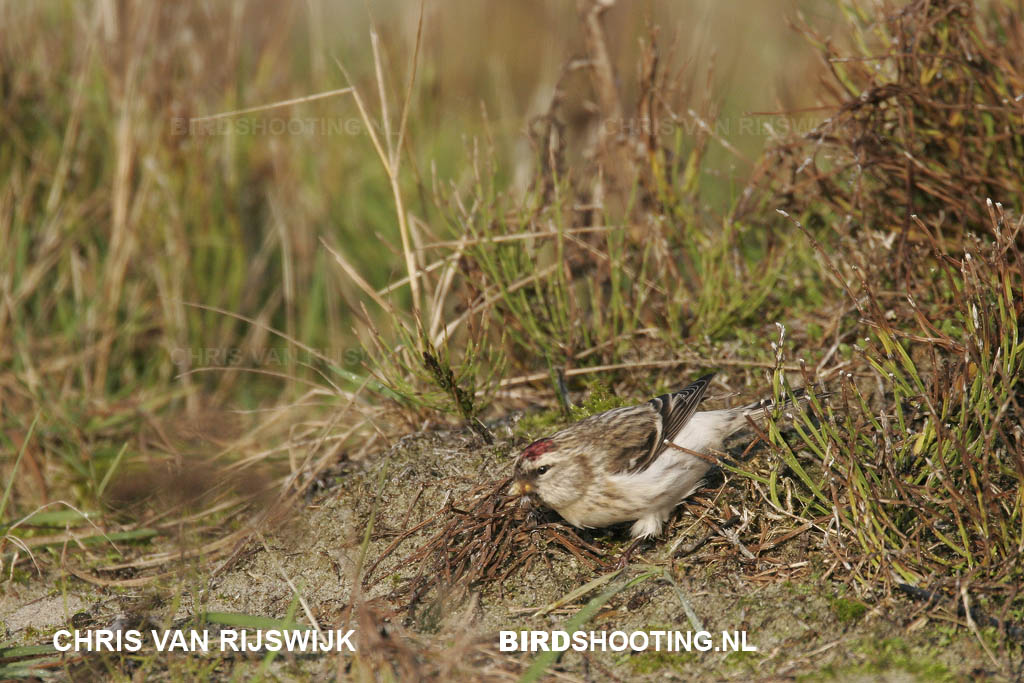
Coues’s Arctic Redpoll, 1st cy, Westenschouwen, the Netherlands, November 2005.
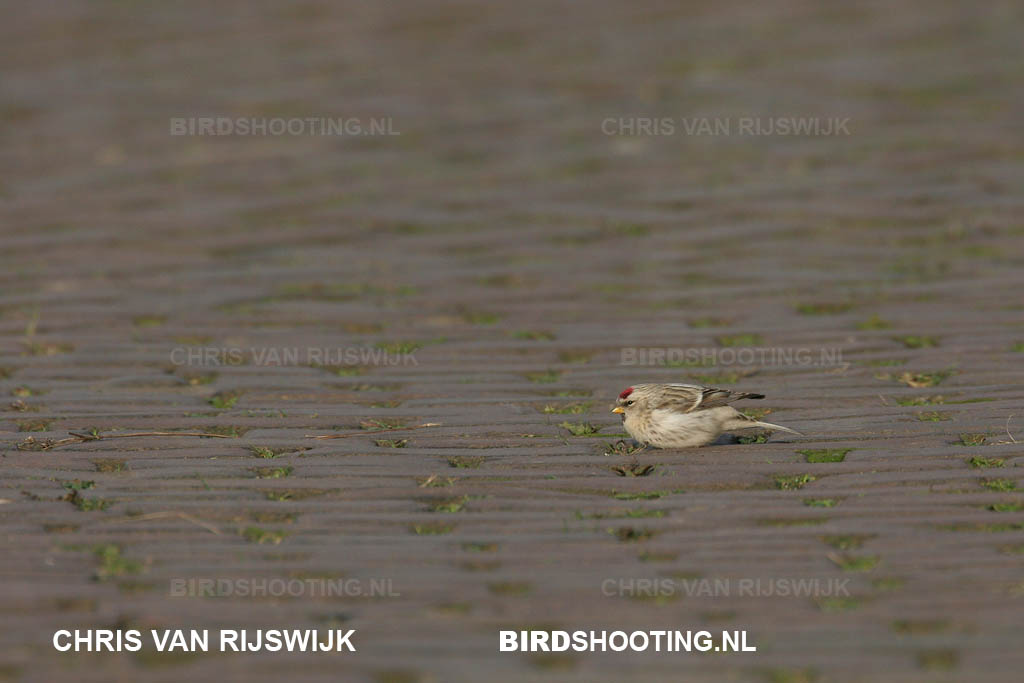
Coues’s Arctic Redpoll, Zutphen, the Netherlands, December 2005.
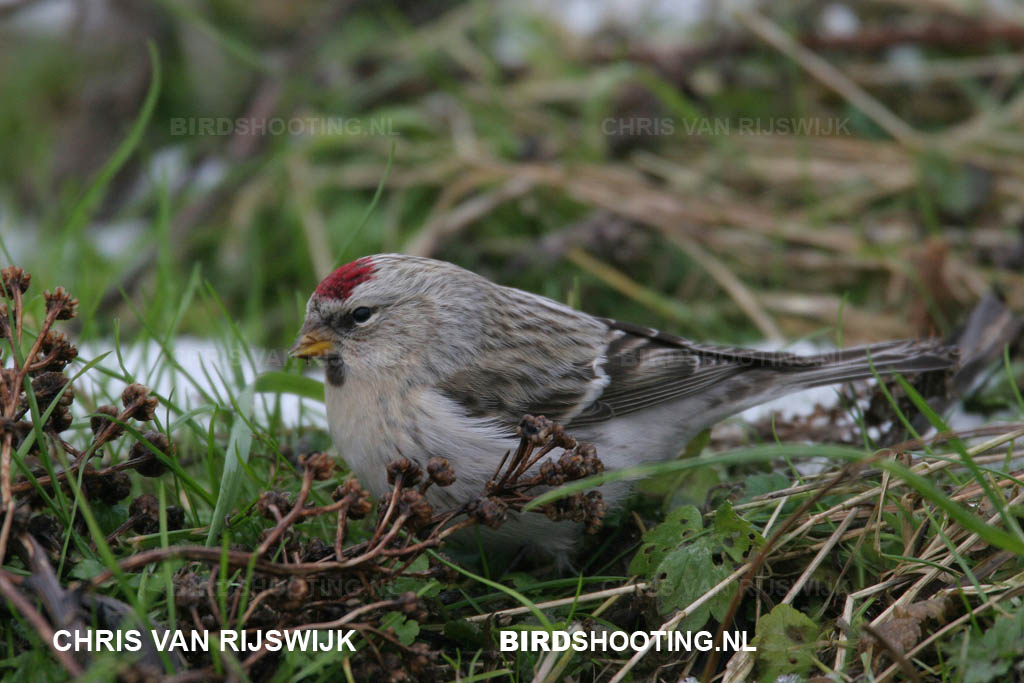
Coues’s Arctic Redpoll, Zutphen, the Netherlands, December 2005, as the picture above.
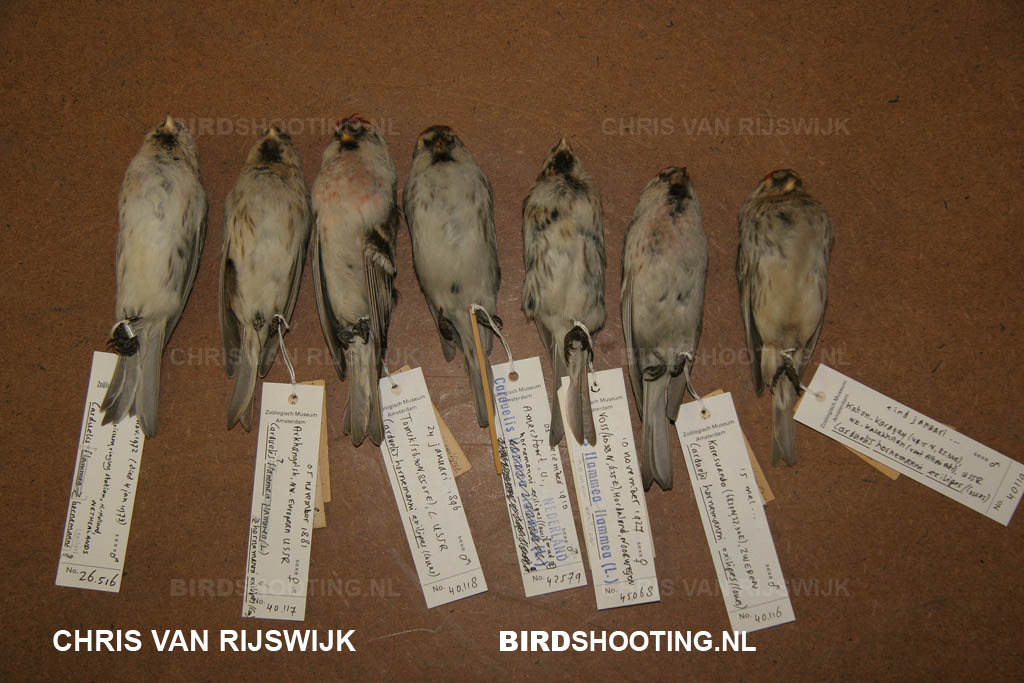
Coues’s Arctic Redpolls, Zoological Museum Amsterdam, Amsterdam, the Netherlands, February 2009. From left to right always the same birds as the picture below.
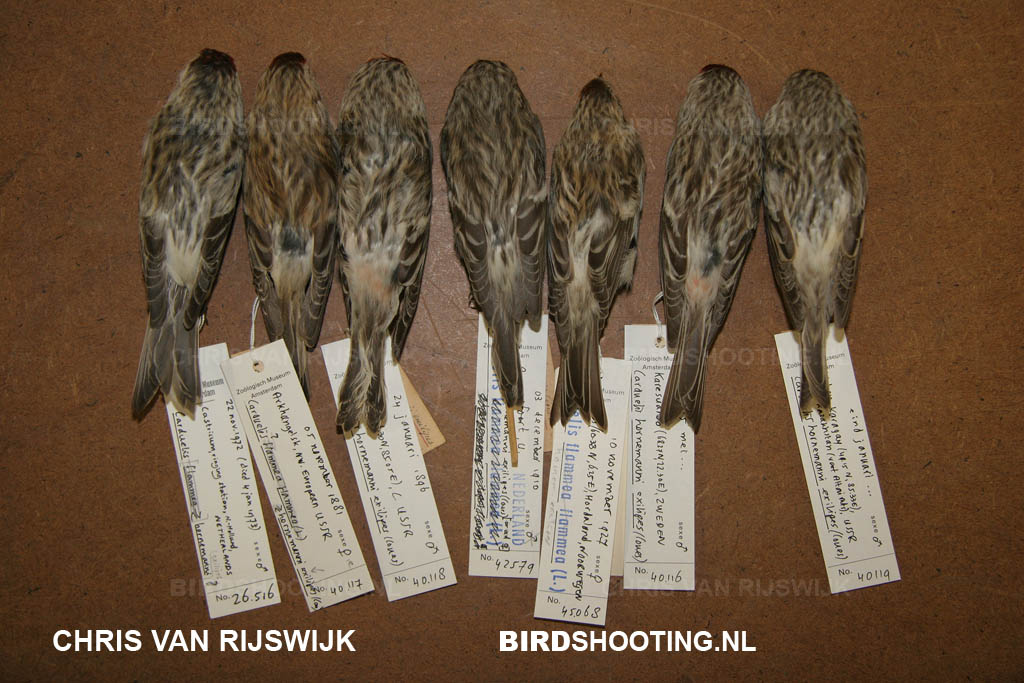
Coues’s Arctic Redpolls, Zoological Museum Amsterdam, Amsterdam, the Netherlands, February 2009. From left to right always the same birds as the picture above.
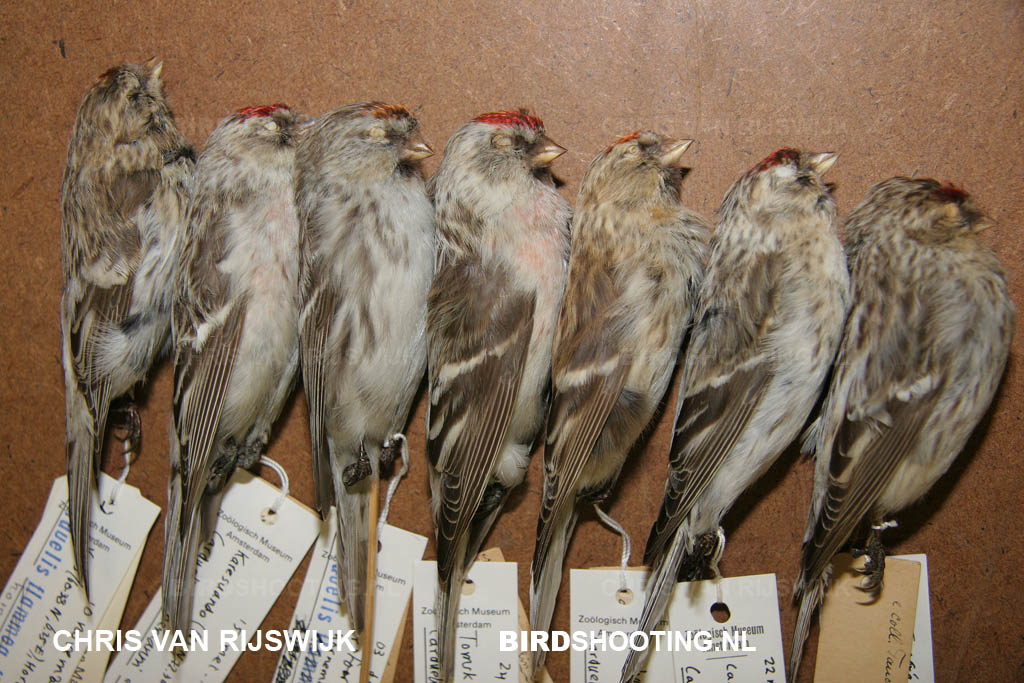
Coues’s Arctic Redpolls, Zoological Museum Amsterdam, Amsterdam, the Netherlands, February 2009. The same birds as the two pictures above but unfortunately in a different order.
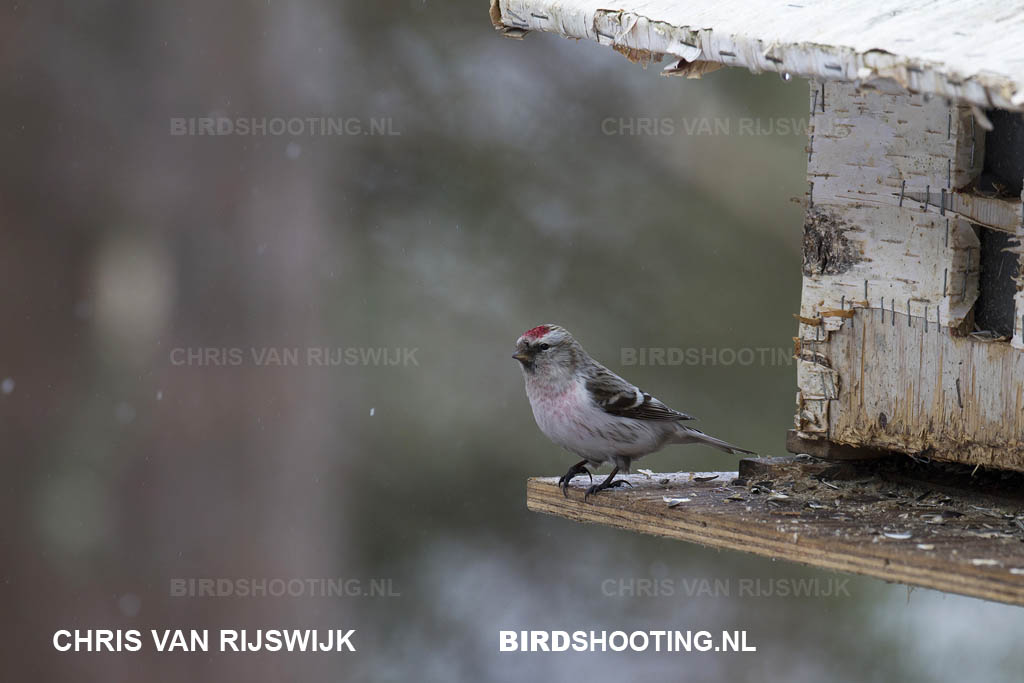
Coues’s Arctic Redpoll, adult male, northern Finland, May 2012.
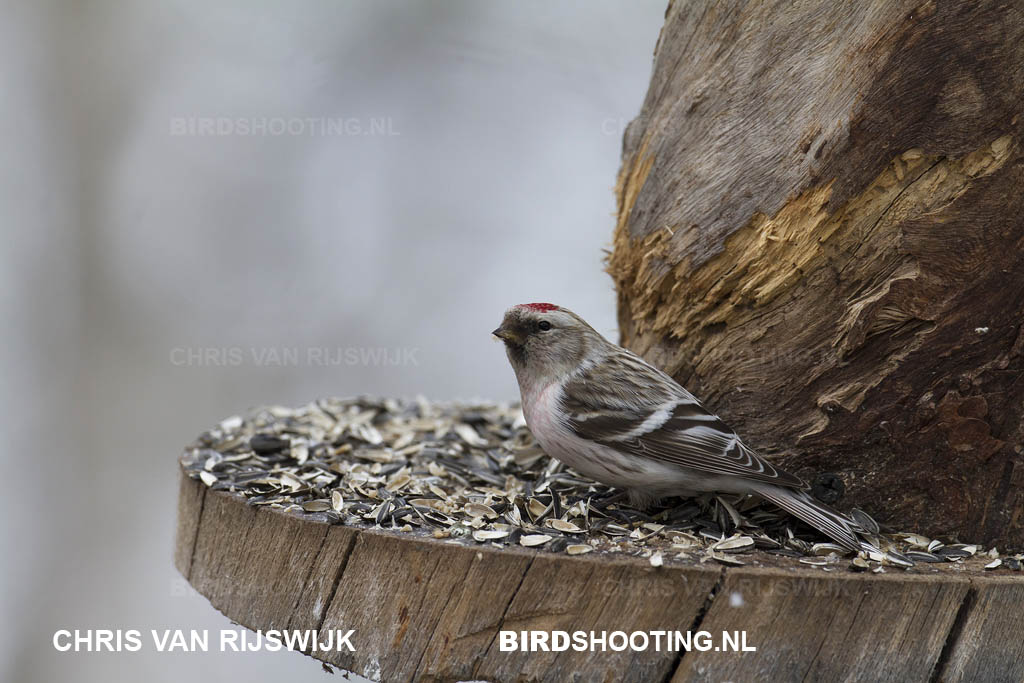
Coues’s Arctic Redpoll, adult male, northern Finland, May 2012.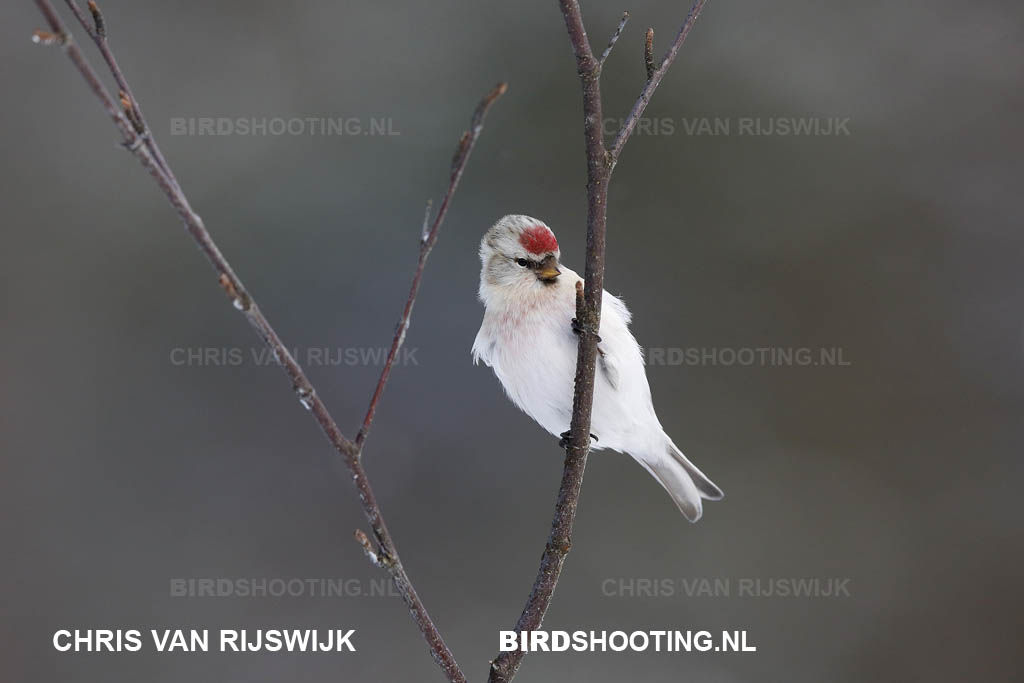
Coues’s Arctic Redpoll, adult male, northern Finland, March 2015.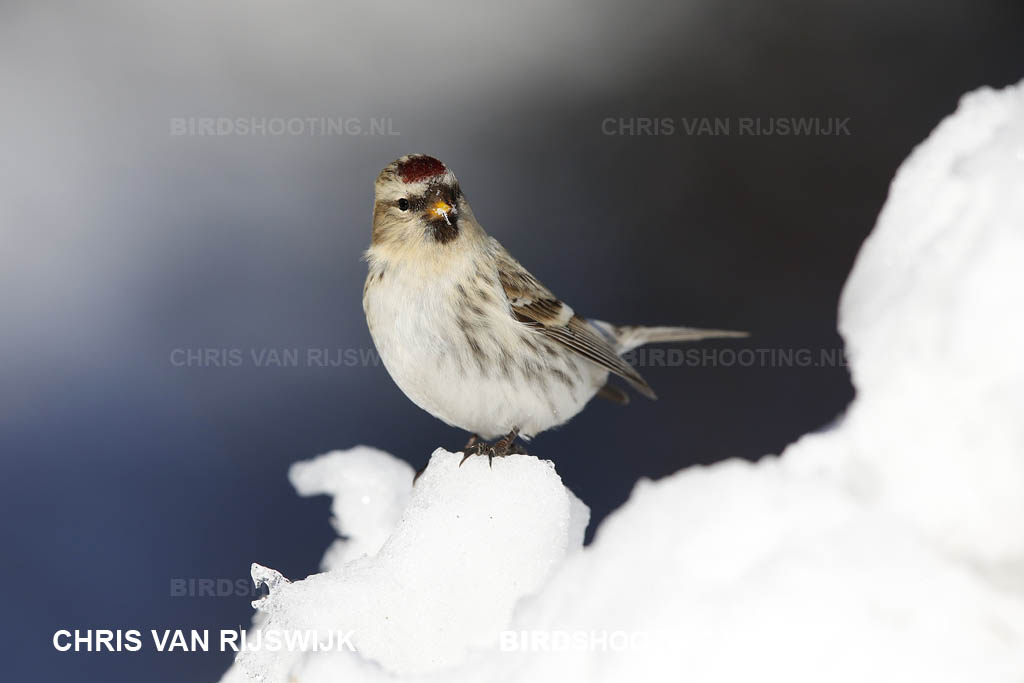
Coues’s Arctic Redpoll, northern Finland, March 2015.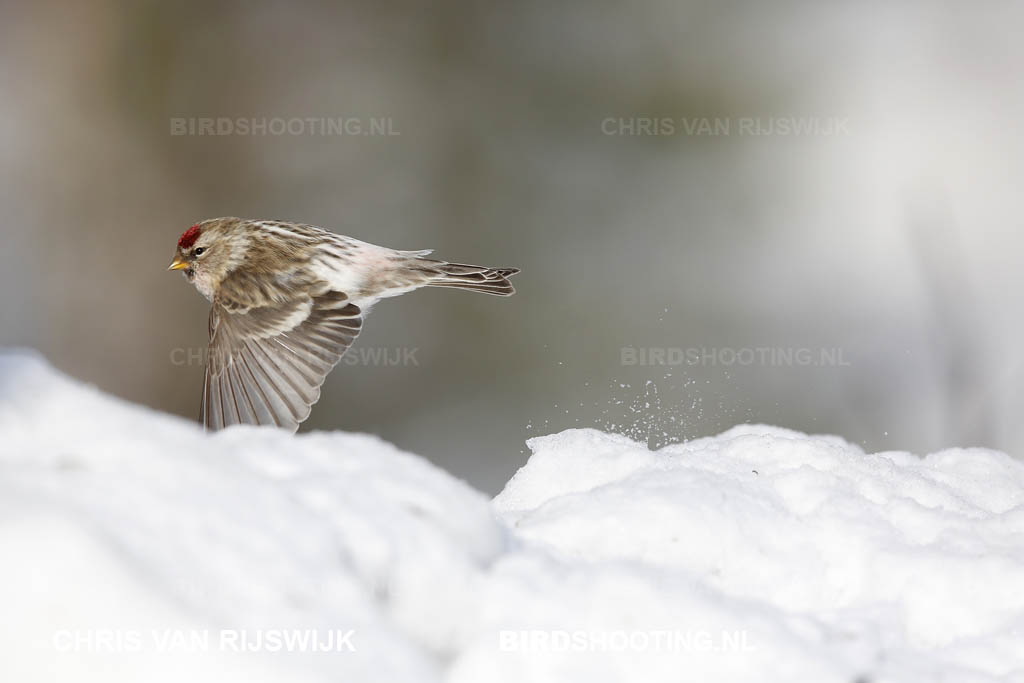
Coues’s Arctic Redpoll, adult male, northern Finland, March 2015.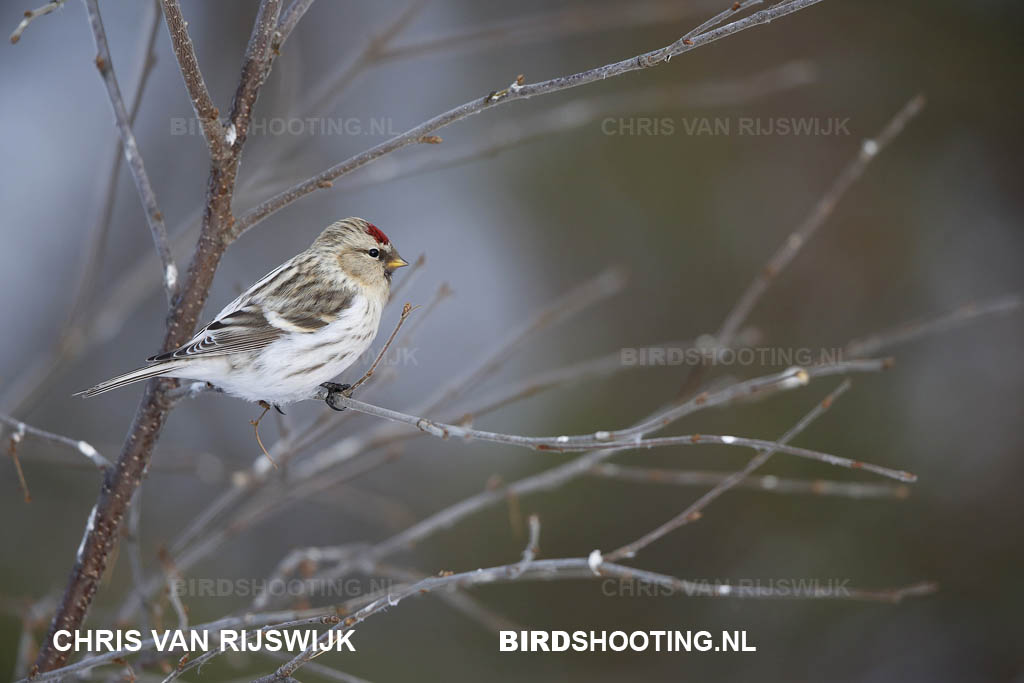
Coues’s Arctic Redpoll, adult, northern Finland, March 2015.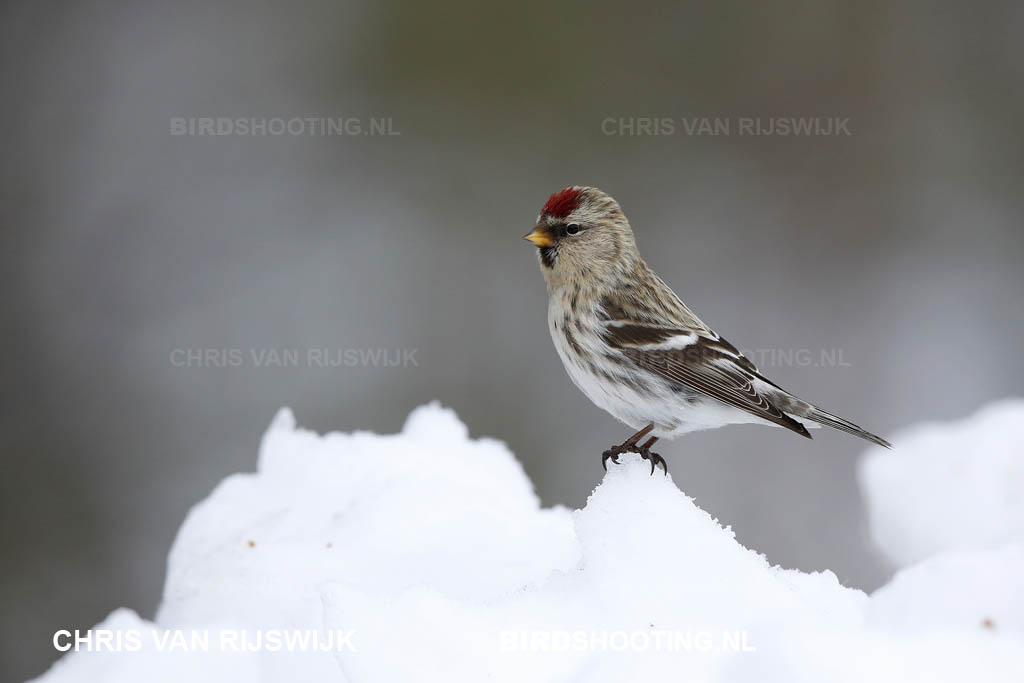
Coues’s Arctic Redpoll, 2nd cy, northern Finland, March 2015.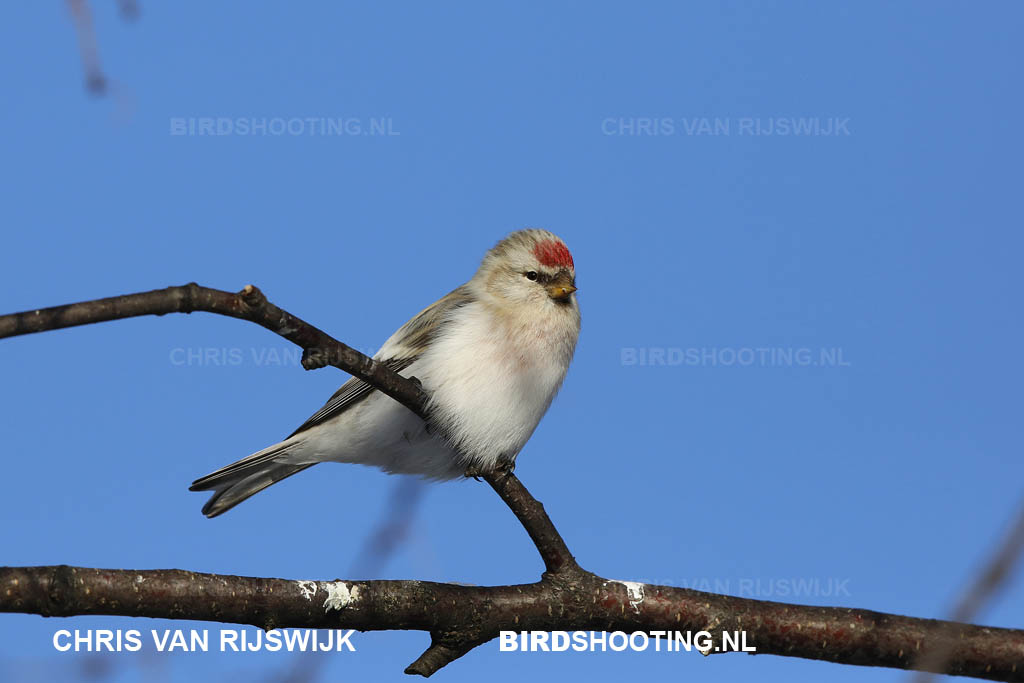
Coues’s Arctic Redpoll, adult, northern Finland, March 2015.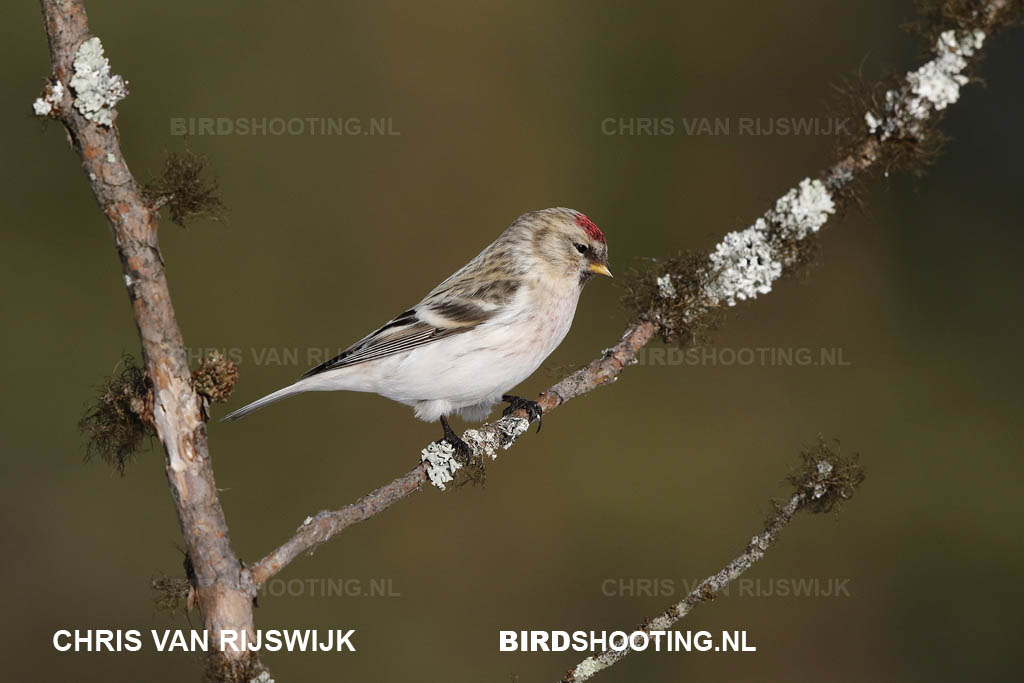
Coues’s Arctic Redpoll, adult, northern Finland, March 2015.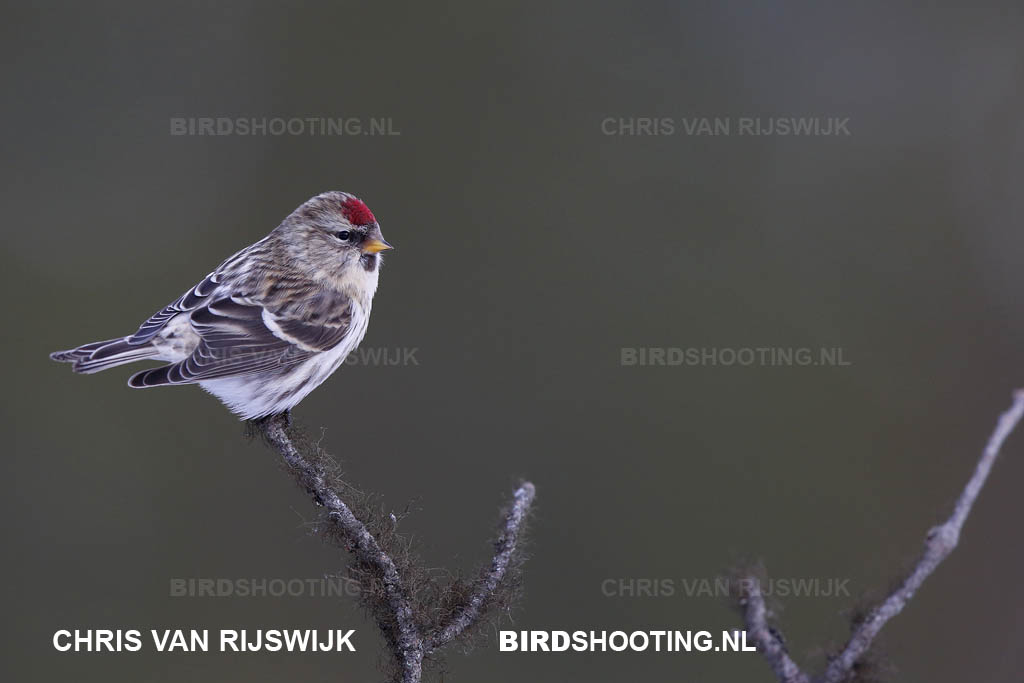
Coues’s Arctic Redpoll, 2nd cy, northern Finland, March 2015.
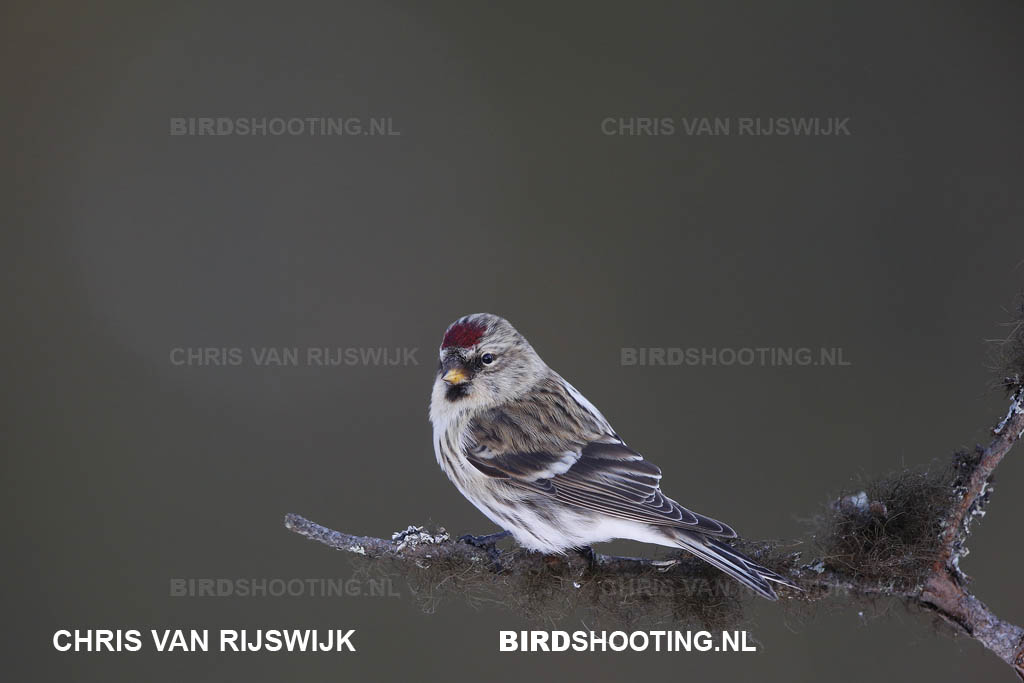
Coues’s Arctic Redpoll, 2nd cy, northern Finland, March 2015.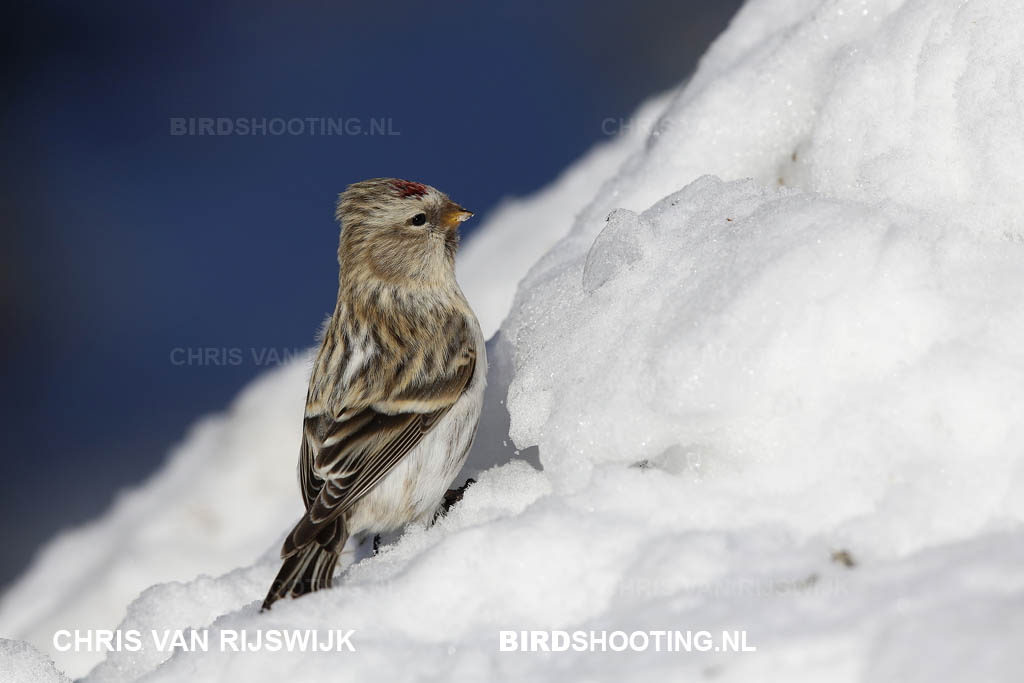
Coues’s Arctic Redpoll, adult, northern Finland, March 2015.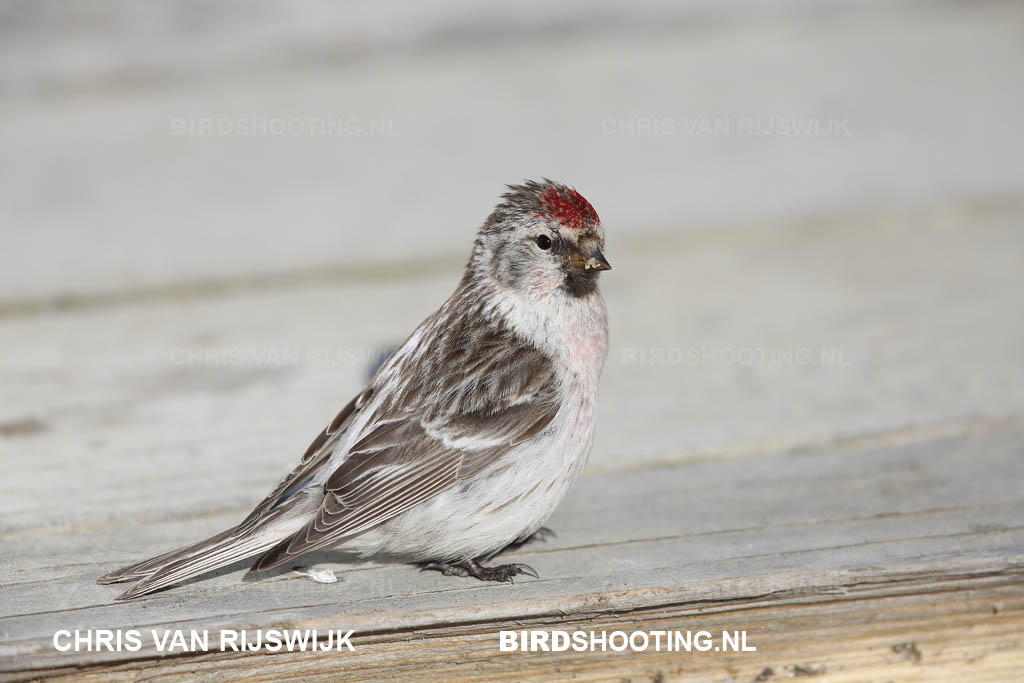
Coues’s Arctic Redpoll, adult, Barrow, Alaska, June 2015. 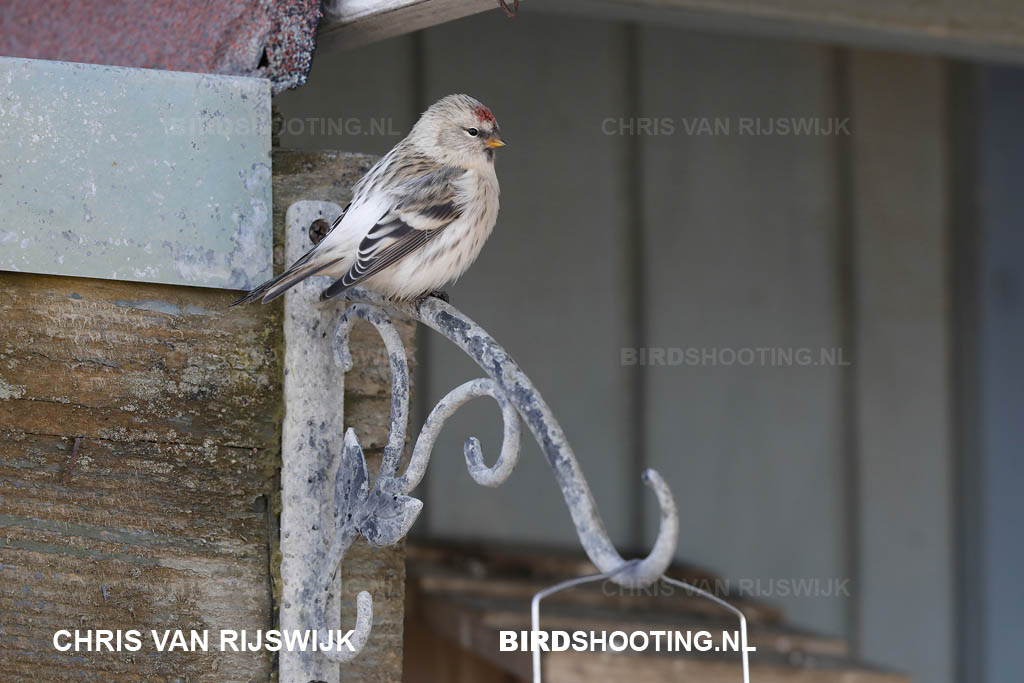
Coues’s Arctic Redpoll, adult, Barrow, Alaska, October 2018.
Hornemann’s Arctic Redpoll (Acanthis hornemanni hornemanni)
This redpoll breeds in Greenland and in a small part of Canada. I guess most birds winter in Greenland. In Western Europe, only on the Shetland Islands, Hornemann’s Arctic Redpolls are reported every year. Beside this, in Western Europe these birds are rare visitors (with only one sighting in the Netherlands, October 2003). Hornemann’s Arctic Redpolls are huge redpolls with long wings, a thick neck and a large bill. Generally they have a uniform appearance, a pale plumage with little or no brown shades (only a strong buff wash to the face). The red cap is small and a big white strip between the red cap and the bill. The rump is remarkably white and often huge, usually without any markings. The undertail-coverts are mostly without streaking. The flank streaking is variable. Some Redpolls have more heavier flank streaking. Probably these are young birds or adult females (see photos below).
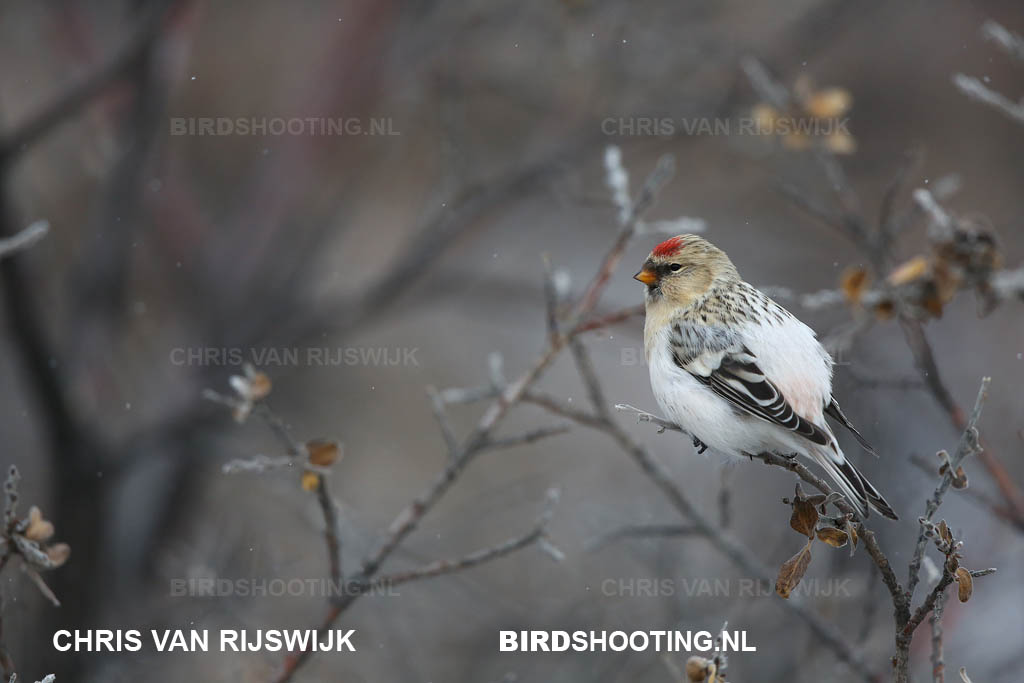
Hornemann’s Arctic Redpolls, Greenland, October 2017. Big white rump!
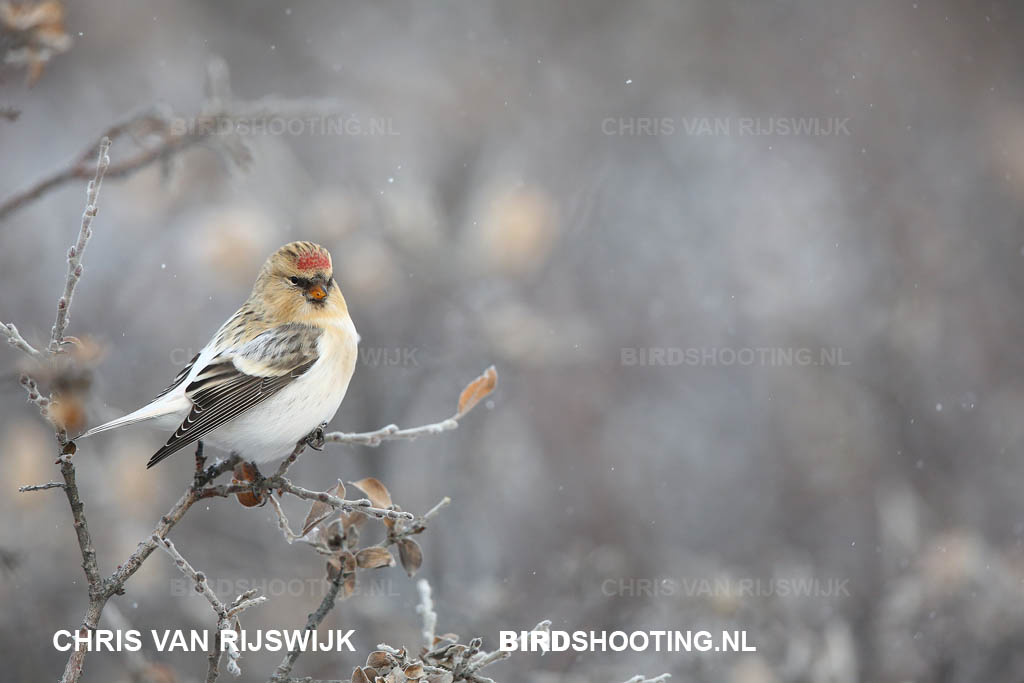
Hornemann’s Arctic Redpolls, Greenland, October 2017. Buff face and upperparts because fresh plumage.
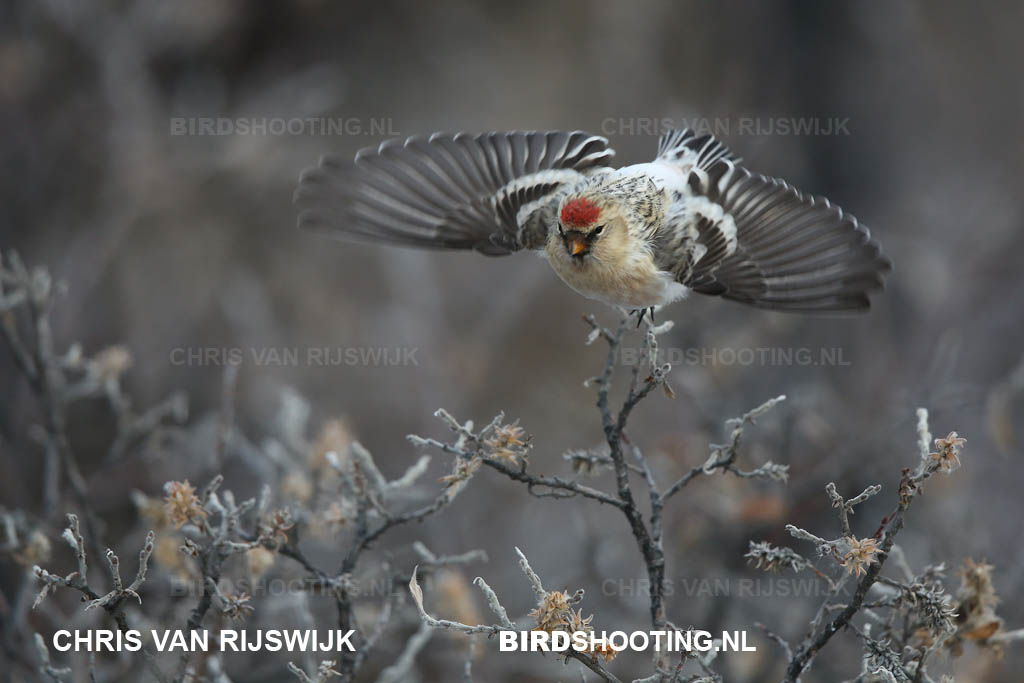
Hornemann’s Arctic Redpolls, Greenland, October 2017. Big bird!
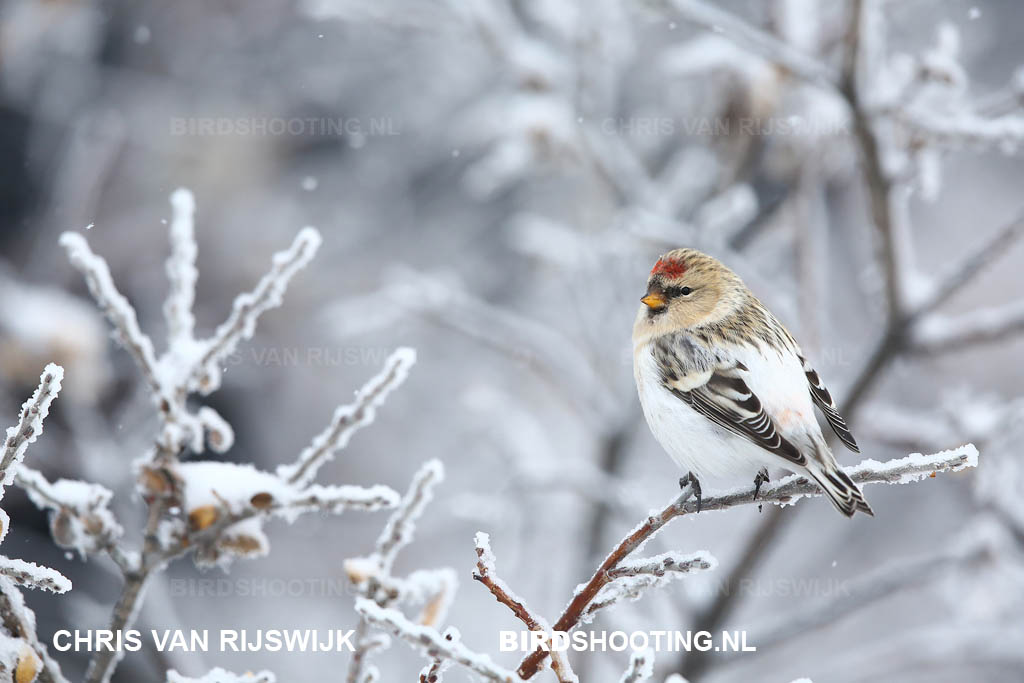
Hornemann’s Arctic Redpolls, Greenland, October 2017. Buff face and upperparts because fresh plumage. 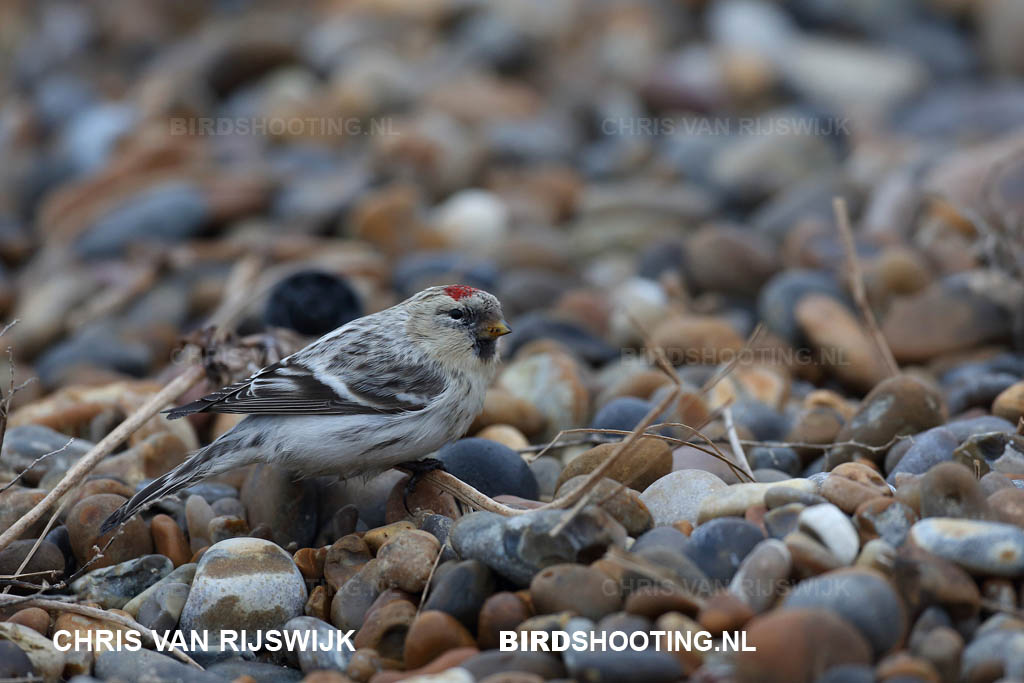
Hornemann’s Arctic Redpoll, 1st cy, UK, December 2012. Also on the 'mainland' of England, this species is a rarity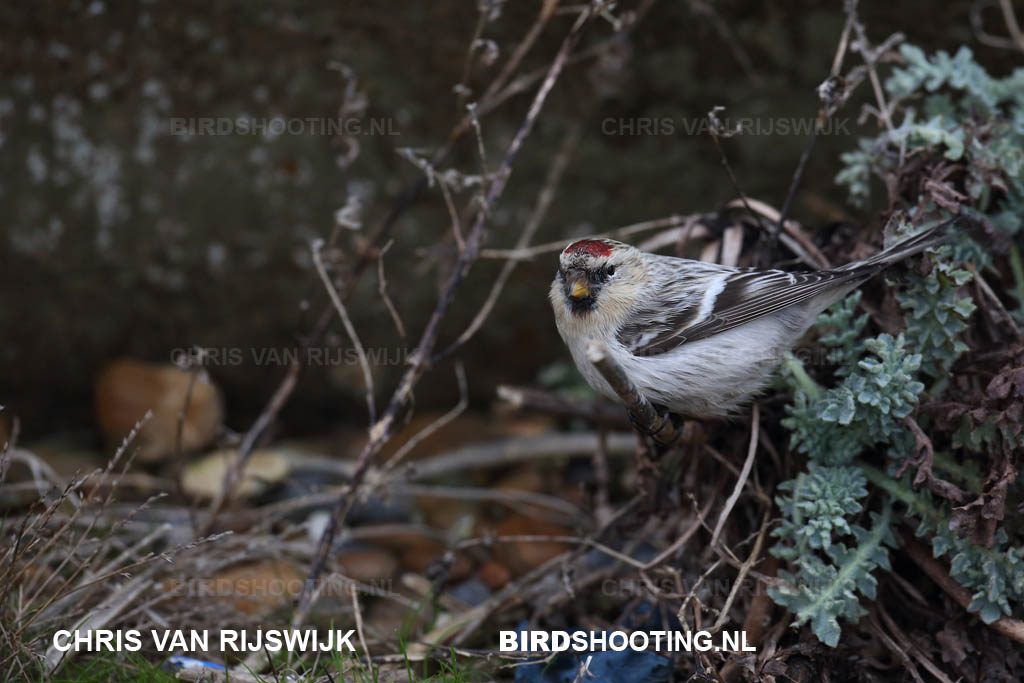
Hornemann’s Arctic Redpoll, 1st cy, UK, December 2012.
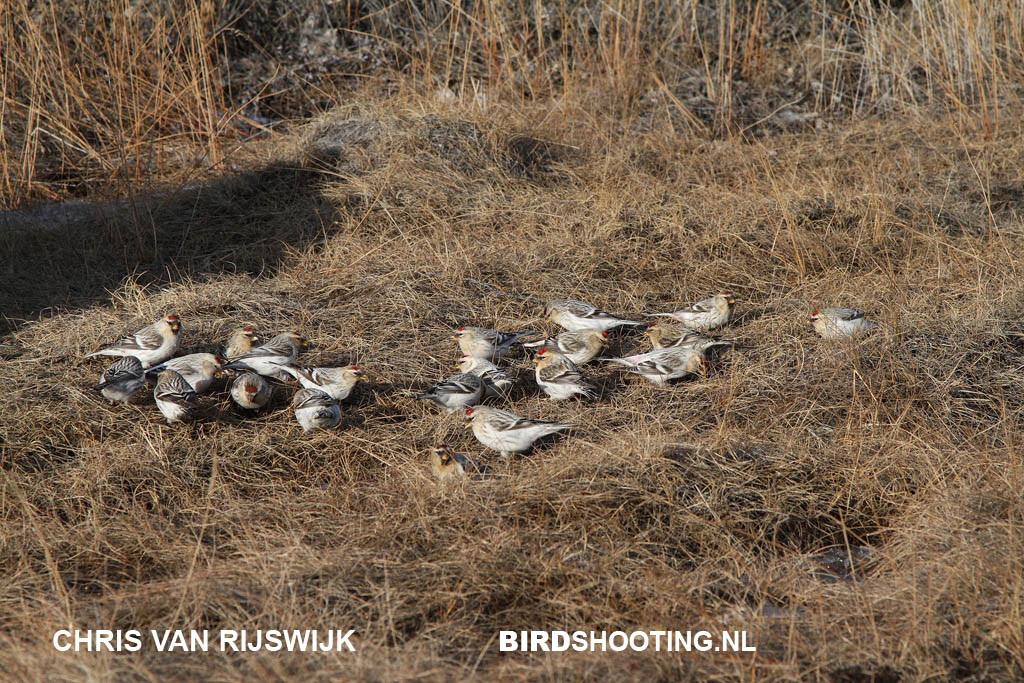
Hornemann’s Arctic Redpolls, Greenland, March 2013. Mostly foraging on the ground.
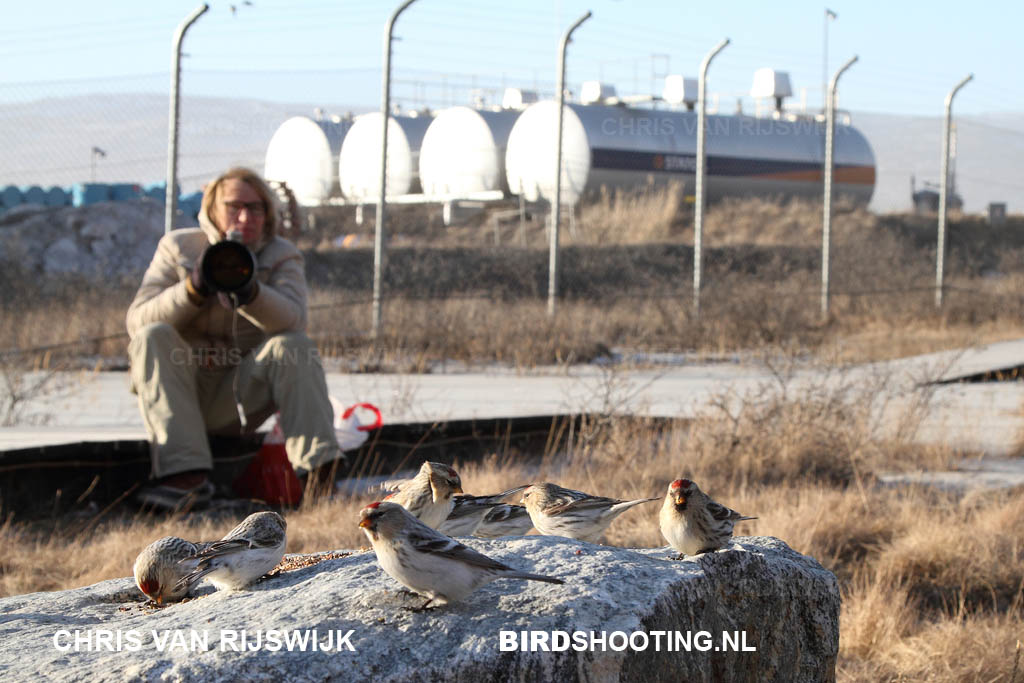
Hornemann’s Arctic Redpolls and me, Greenland, March 2013.
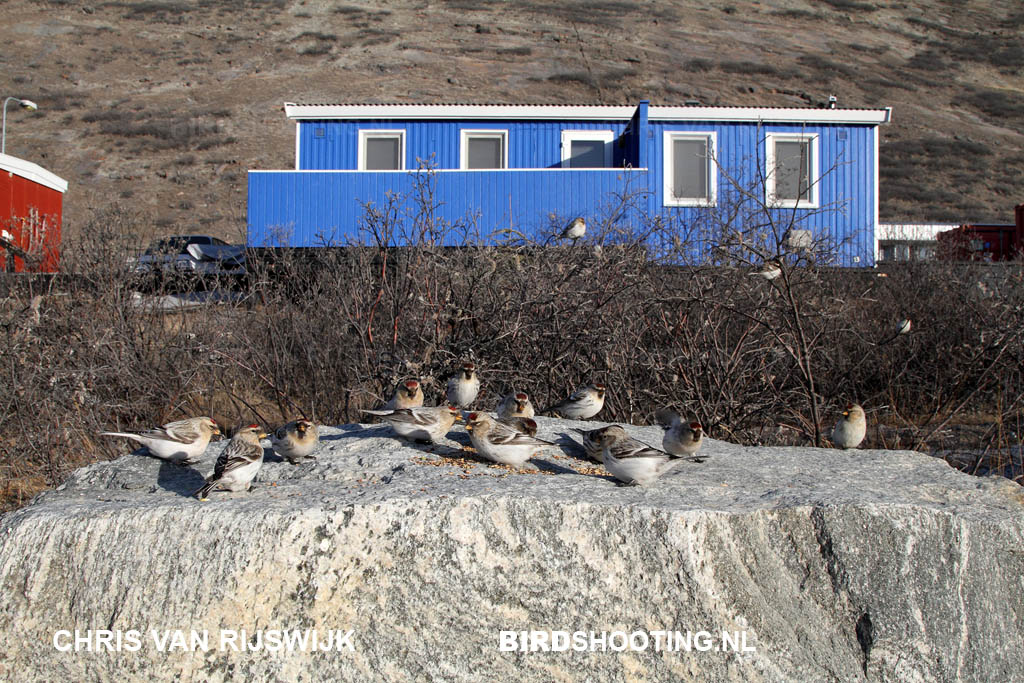
Hornemann’s Arctic Redpolls, Greenland, March 2013.
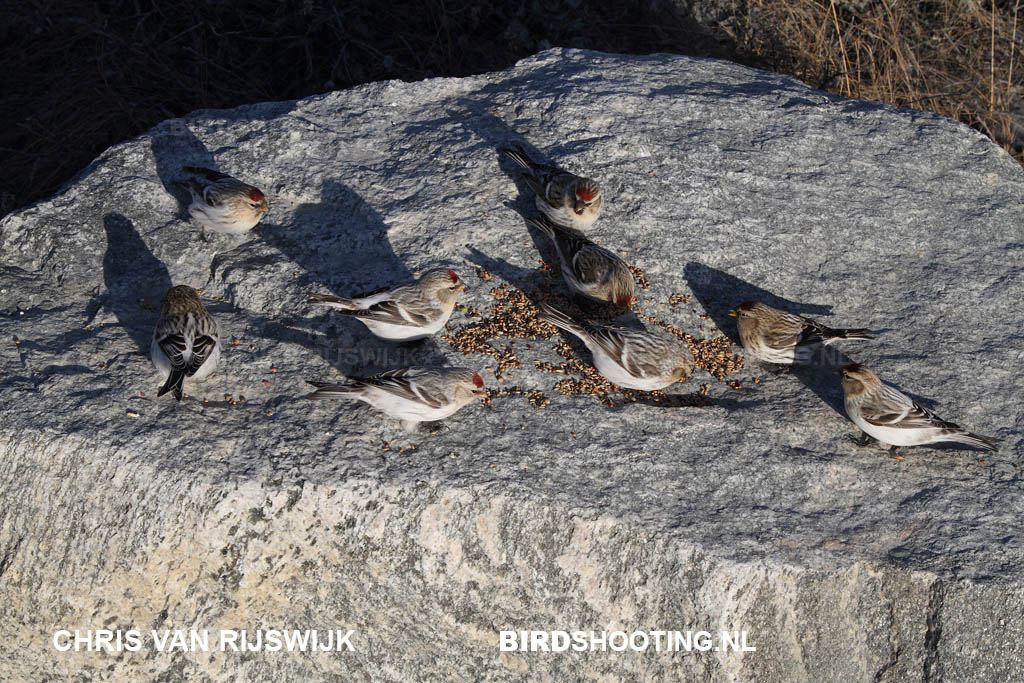
Hornemann’s Arctic Redpolls, Greenland, March 2013. These redpolls are not shy.
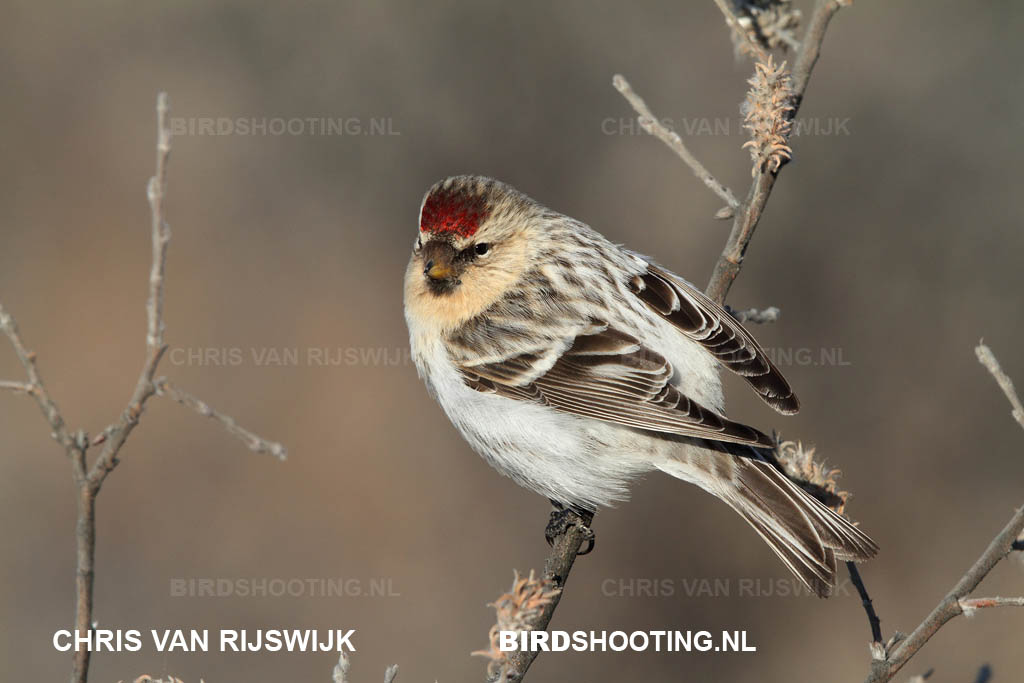
Hornemann’s Arctic Redpoll, 2nd cy, Greenland, March 2013. Typical bird. Large white rump, buff wash to the face, no brown shades.
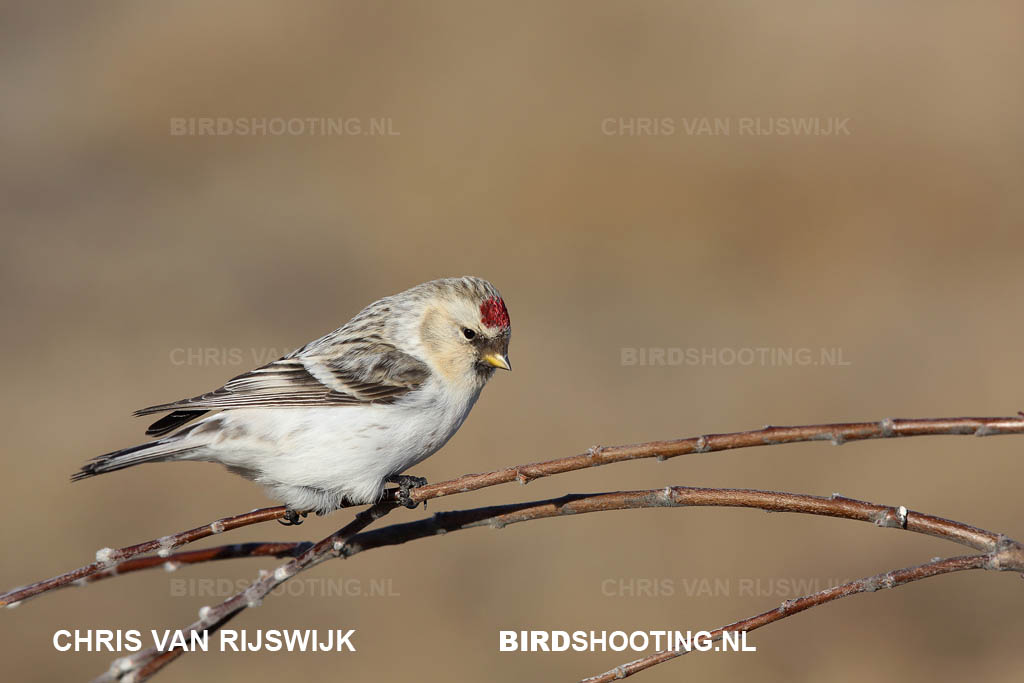
Hornemann’s Arctic Redpoll, adult, Greenland, March 2013.
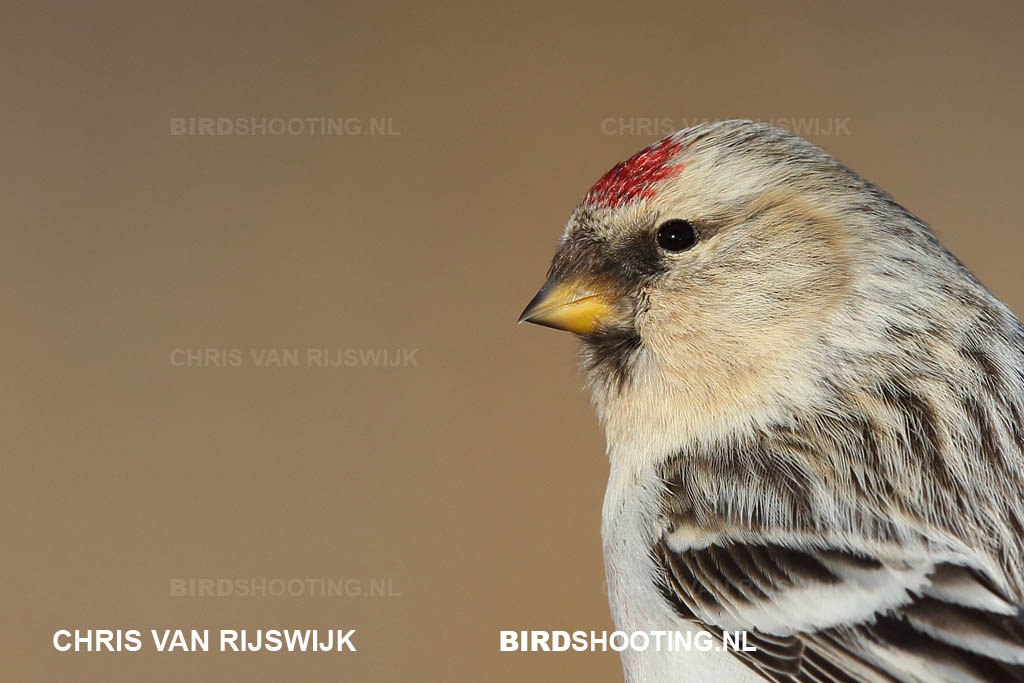
Hornemann’s Arctic Redpoll, adult, Greenland, March 2013.
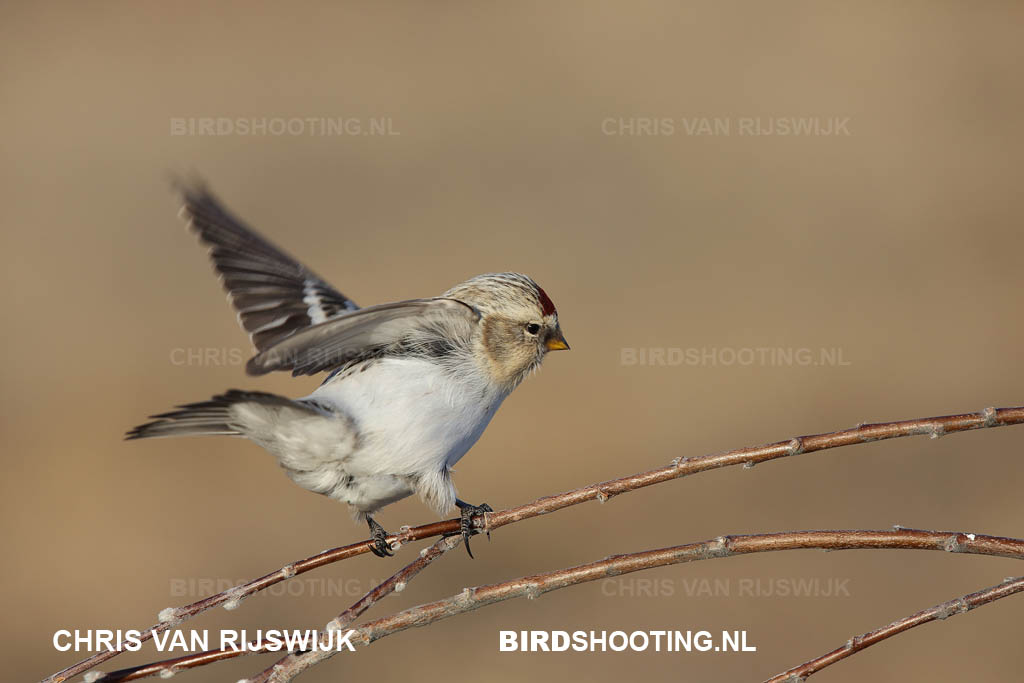
Hornemann’s Arctic Redpoll, Greenland, March 2013. Big white rump and white undertail-coverts.
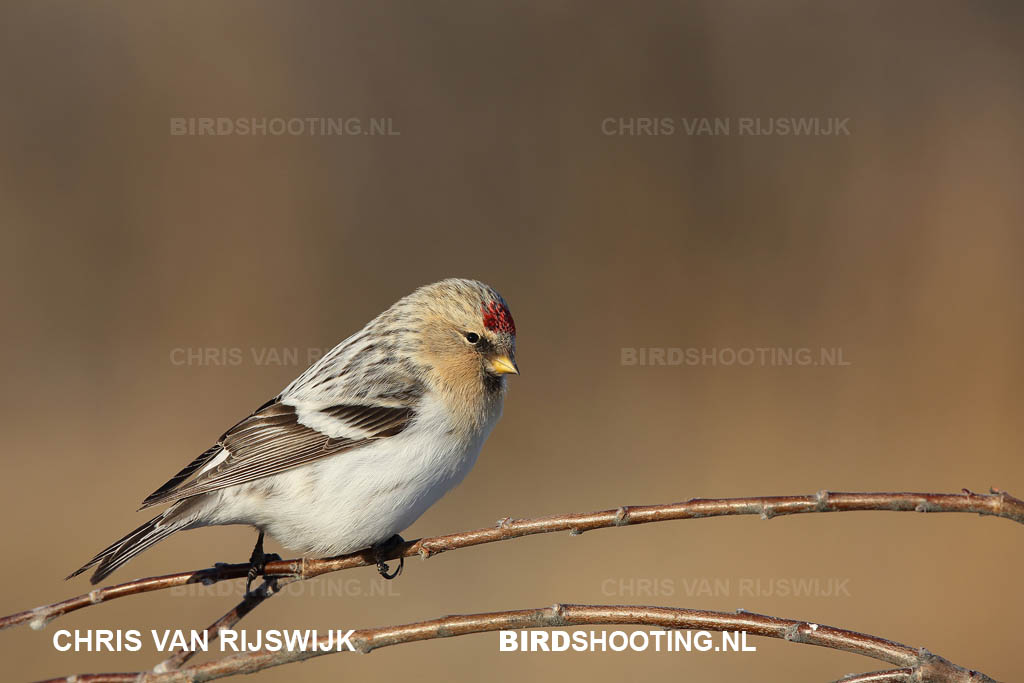
Hornemann’s Arctic Redpoll, 2nd cy, Greenland, March 2013. Notice the worn tertials.
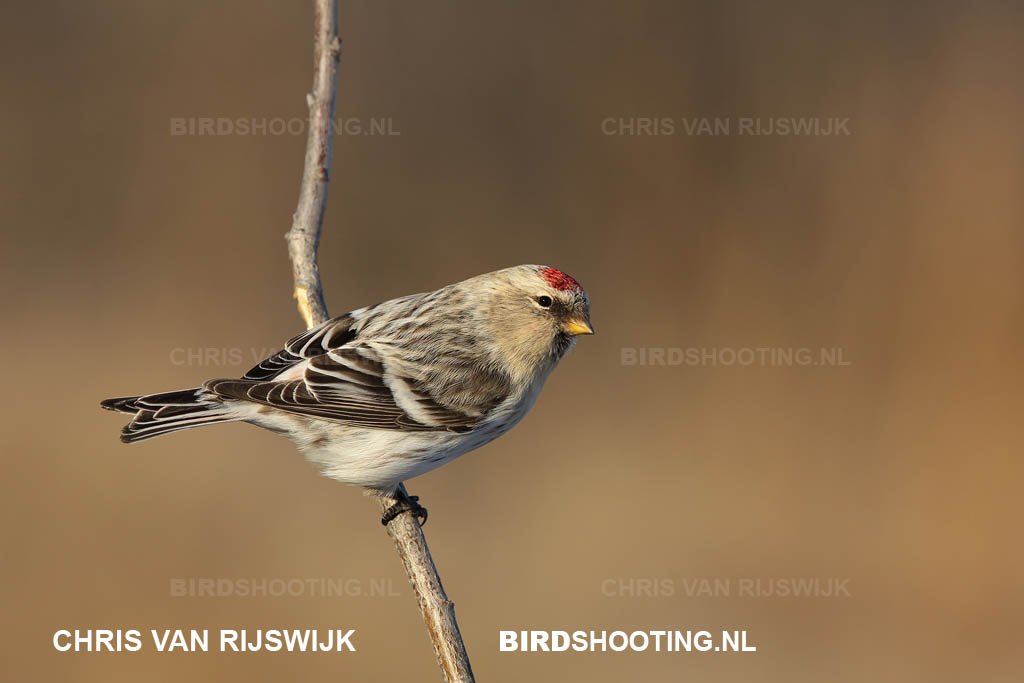
Hornemann’s Arctic Redpoll, adult male, Greenland, March 2013.
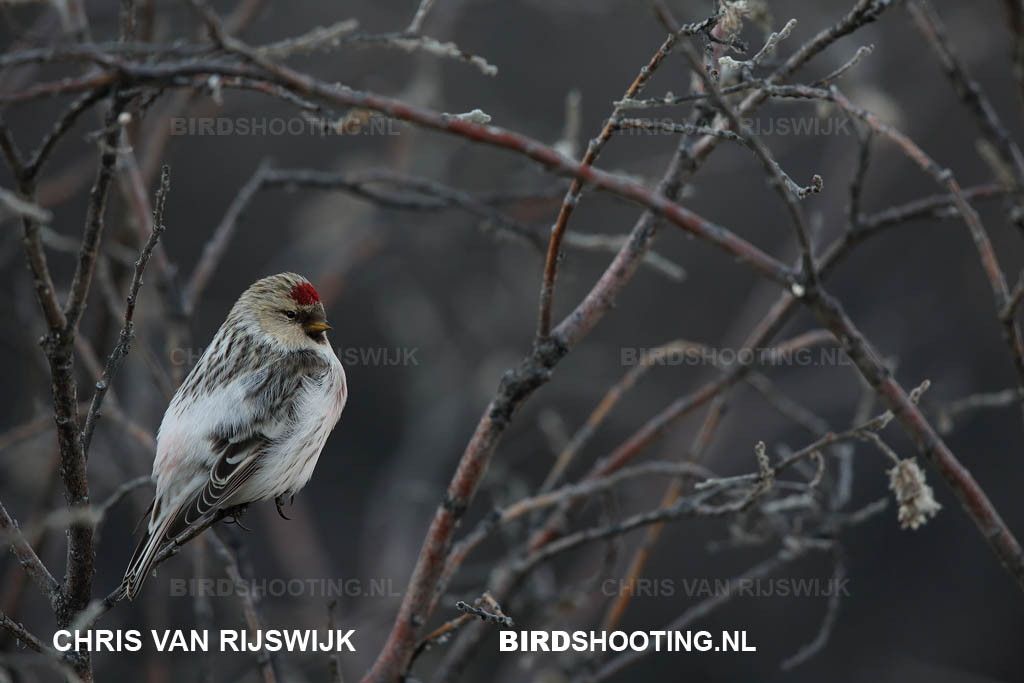
Hornemann’s Arctic Redpoll, adult male, Greenland, March 2013.
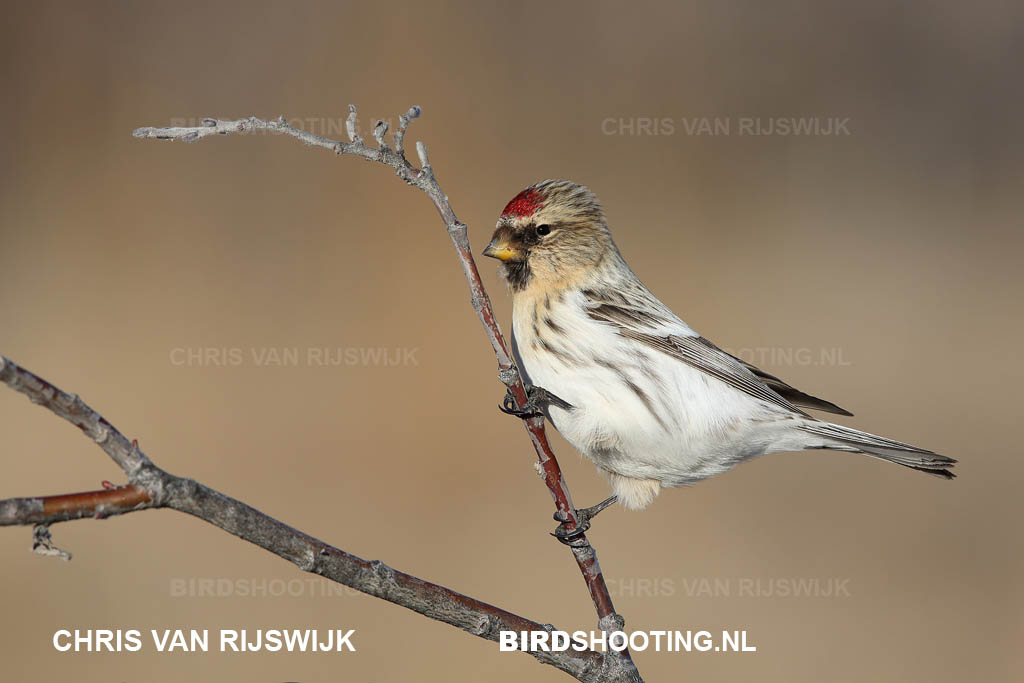
Hornemann’s Arctic Redpoll, Greenland, March 2013.
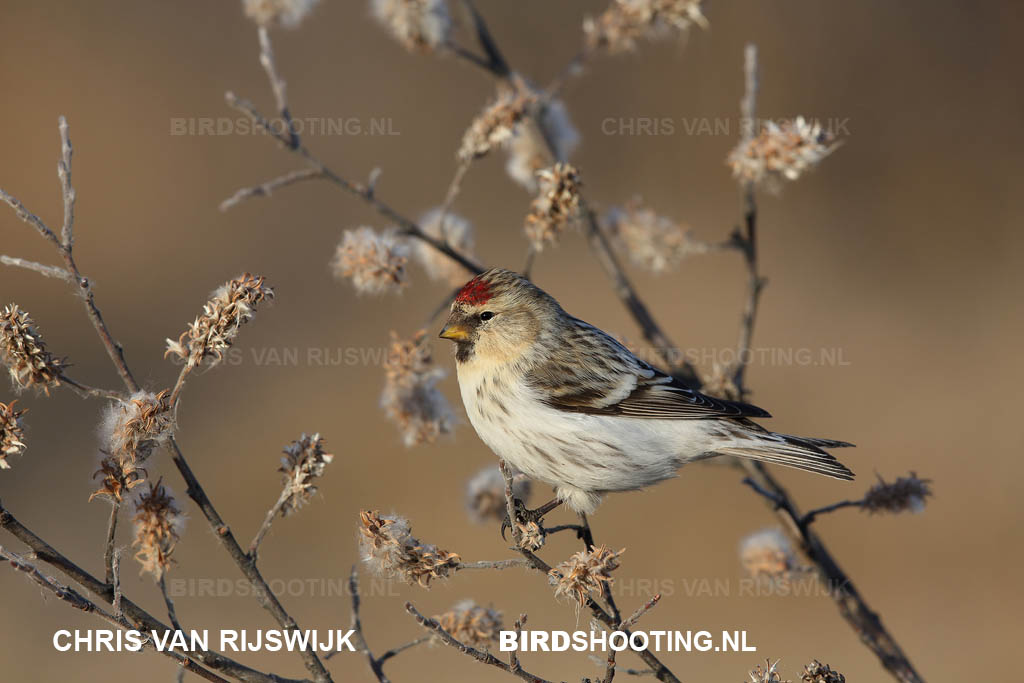
Hornemann’s Arctic Redpoll, adult, Greenland, March 2013.
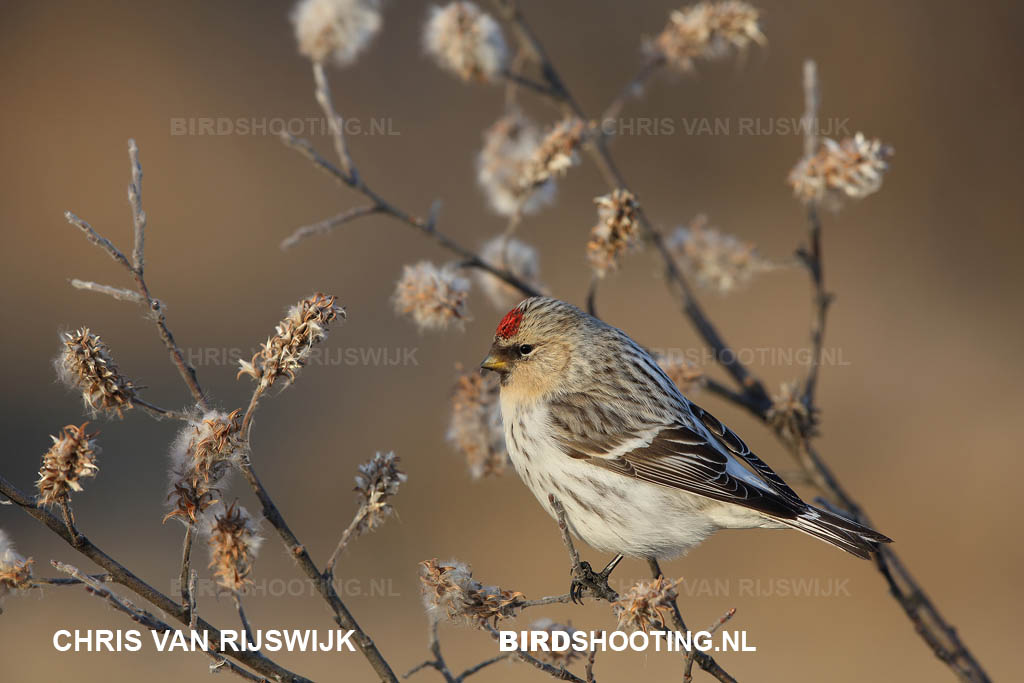
Hornemann’s Arctic Redpoll, 2nd cy, Greenland, March 2013.
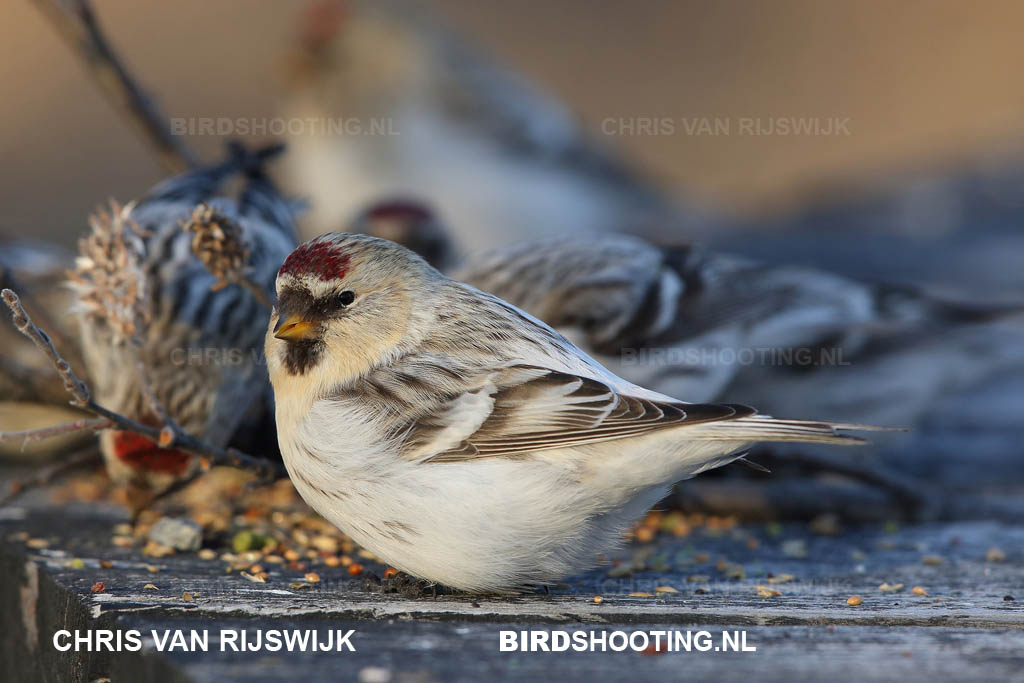
Hornemann’s Arctic Redpoll, adult, Greenland, March 2013. A large and pale bird. This could indicate an adult male.
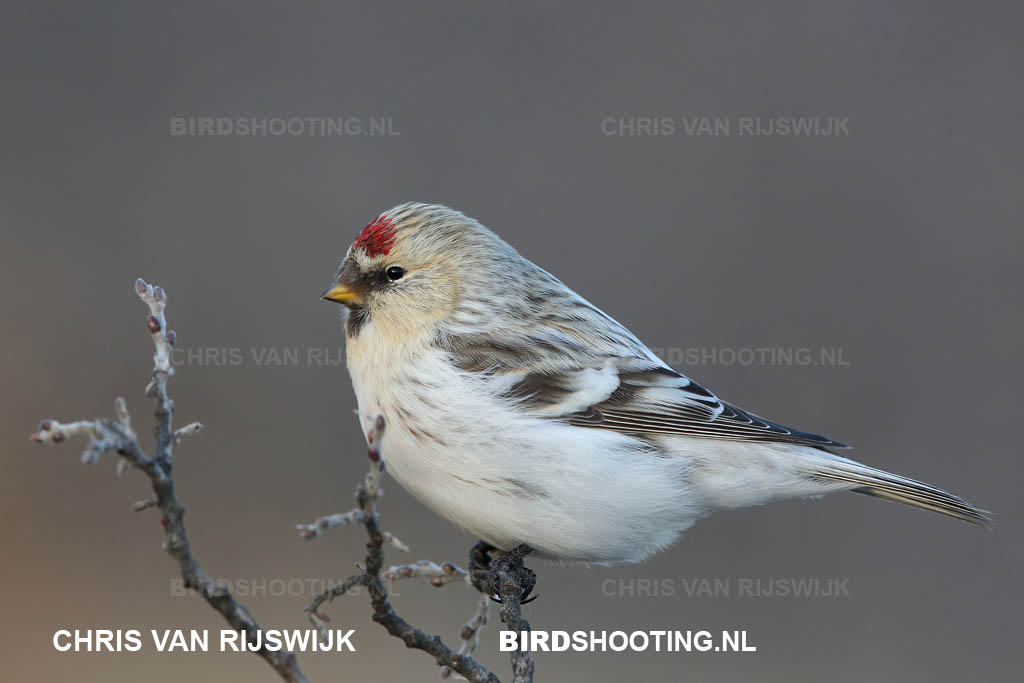
Hornemann’s Arctic Redpoll, adult, Greenland, March 2013. The same bird as in the picture above. Notice the thick neck and long wings.
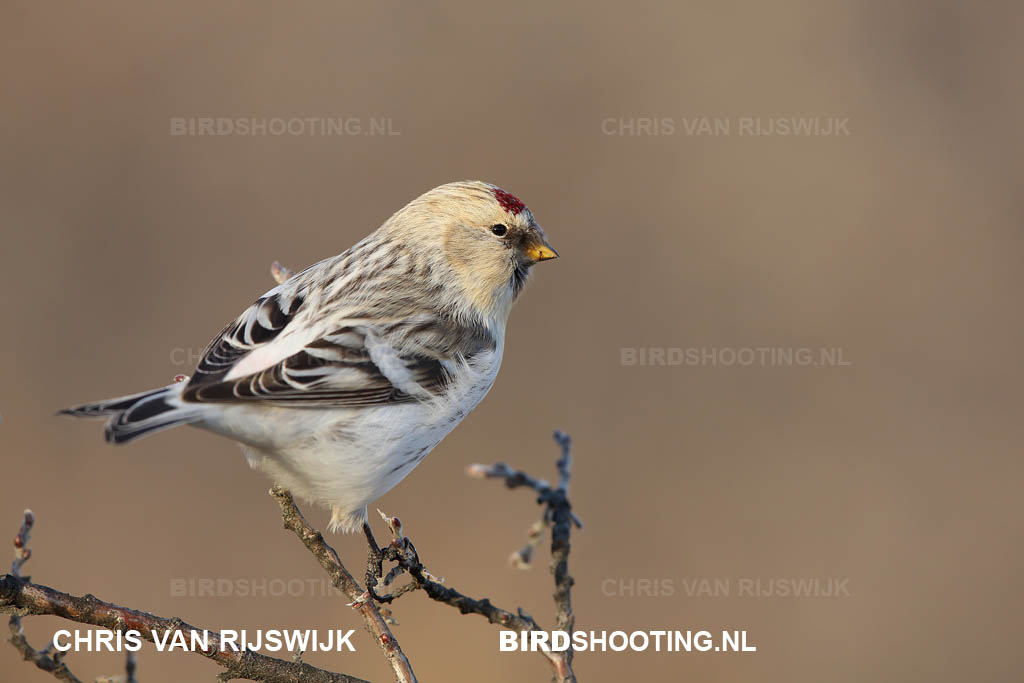
Hornemann’s Arctic Redpoll, adult male, Greenland, March 2013. A little pink on the rump.
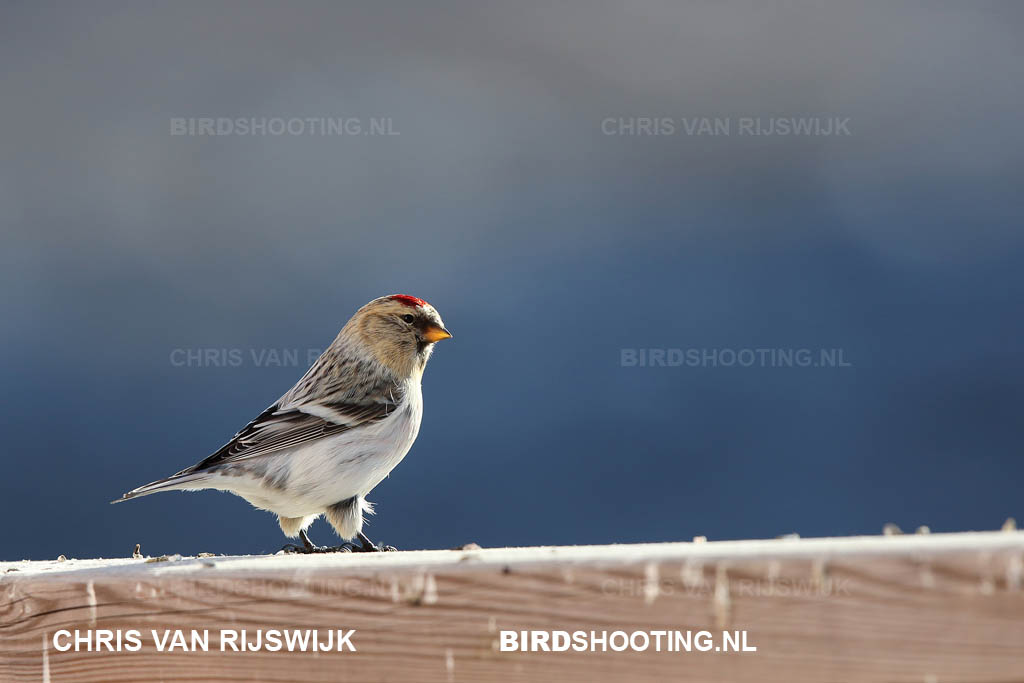
Hornemann’s Arctic Redpoll, adult male, Greenland, March 2013.
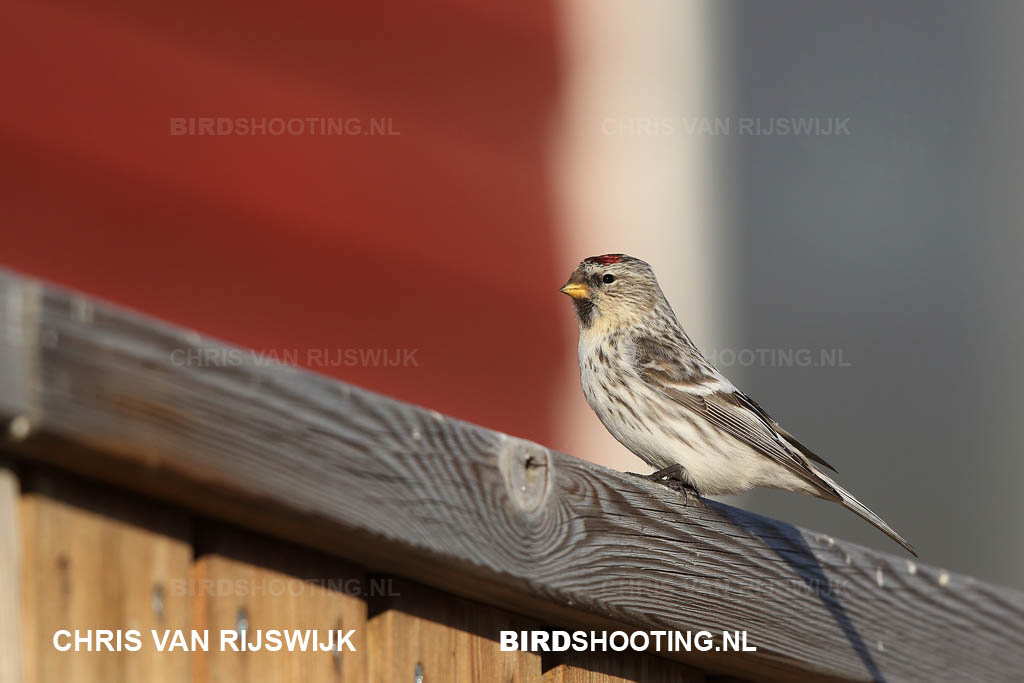
Hornemann’s Arctic Redpoll, Greenland, March 2013.
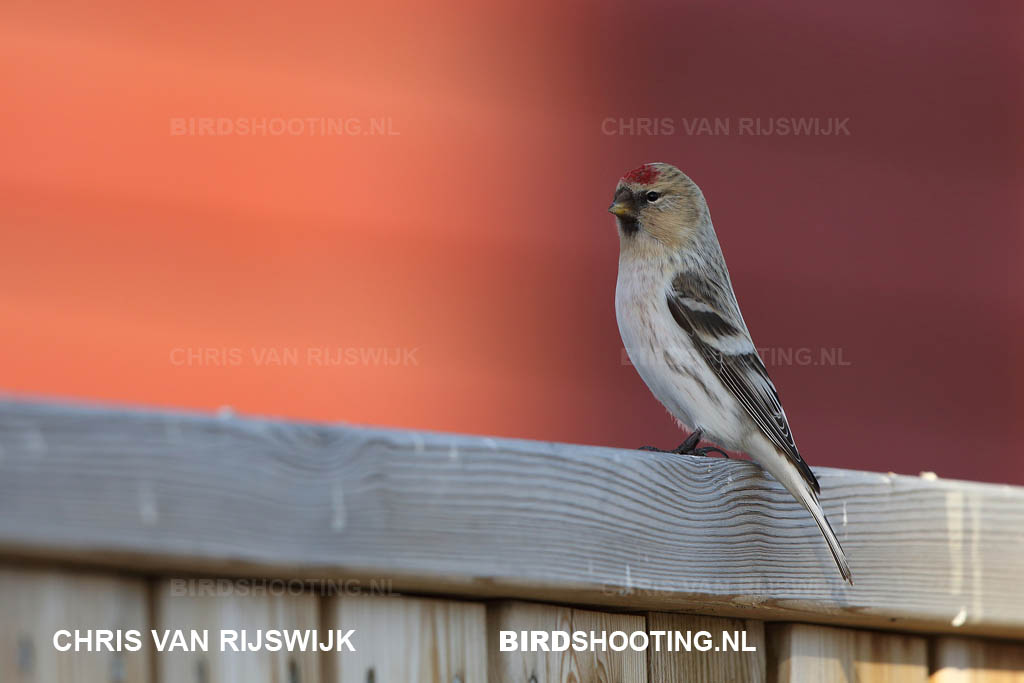
Hornemann’s Arctic Redpoll, adult male, Greenland, March 2013.
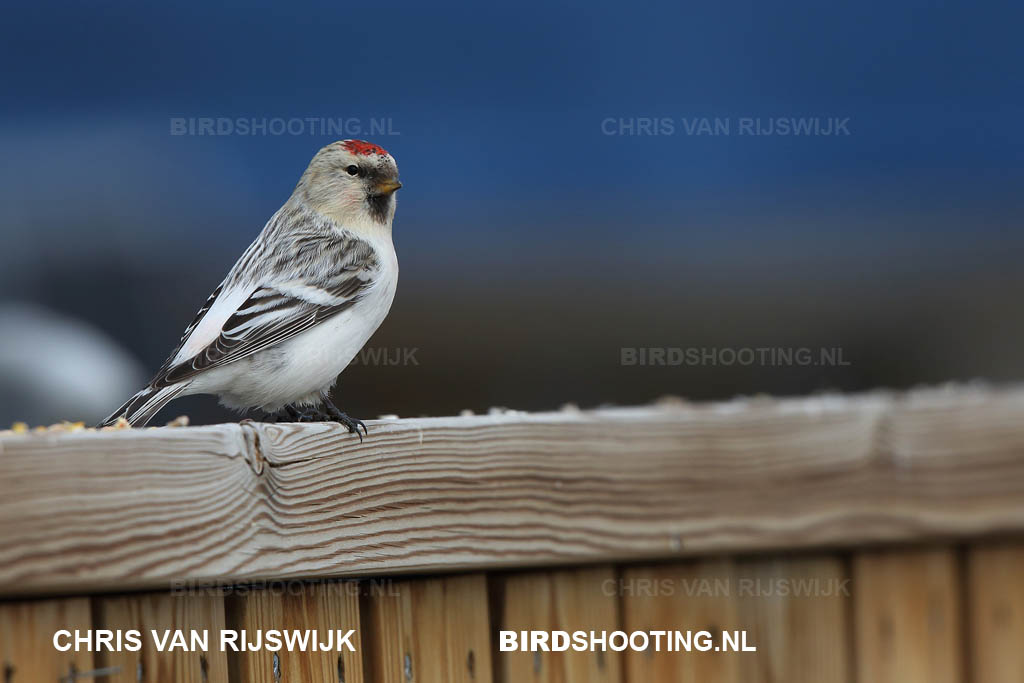
Hornemann’s Arctic Redpoll, adult male, Greenland, March 2013.
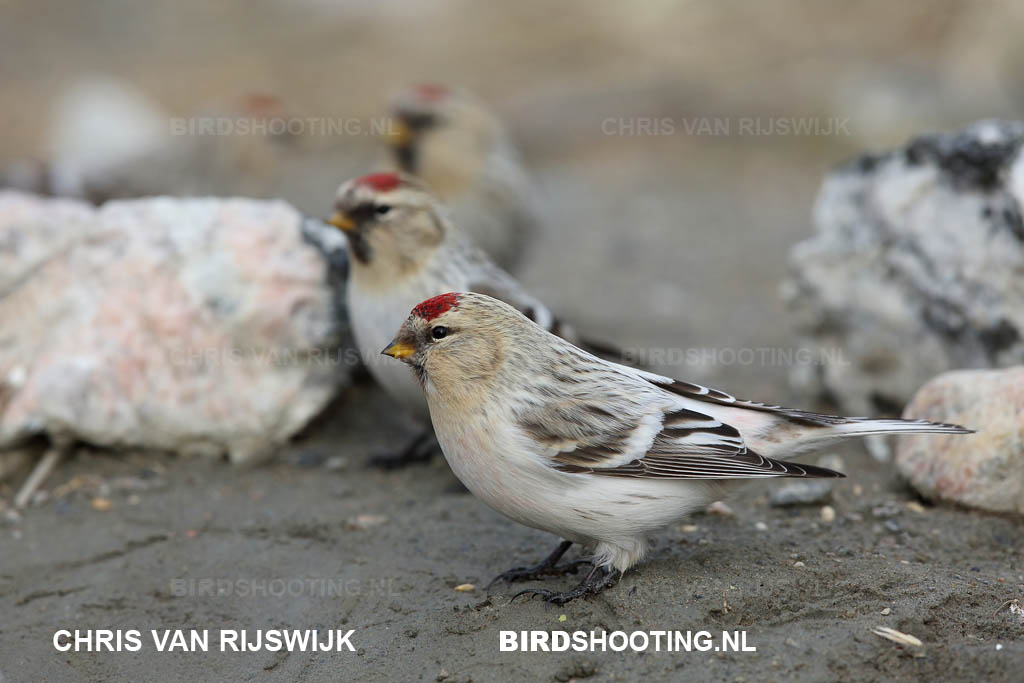
Hornemann’s Arctic Redpoll, adult male, Greenland, March 2013.
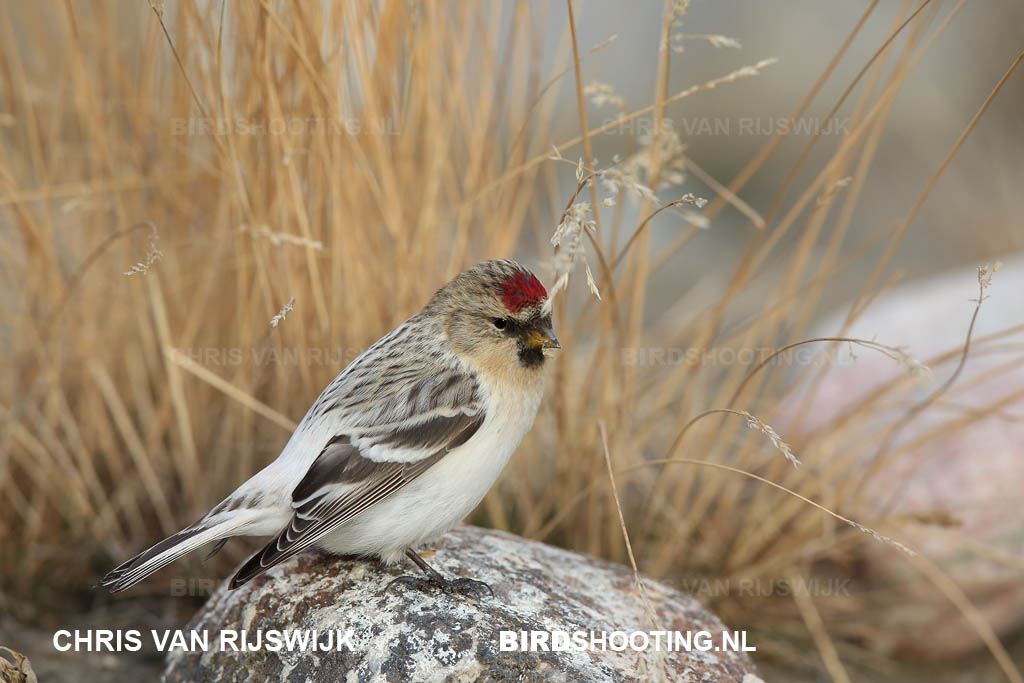
Hornemann’s Arctic Redpoll, adult male, Greenland, March 2013. No browns, except the buff wash to the face.
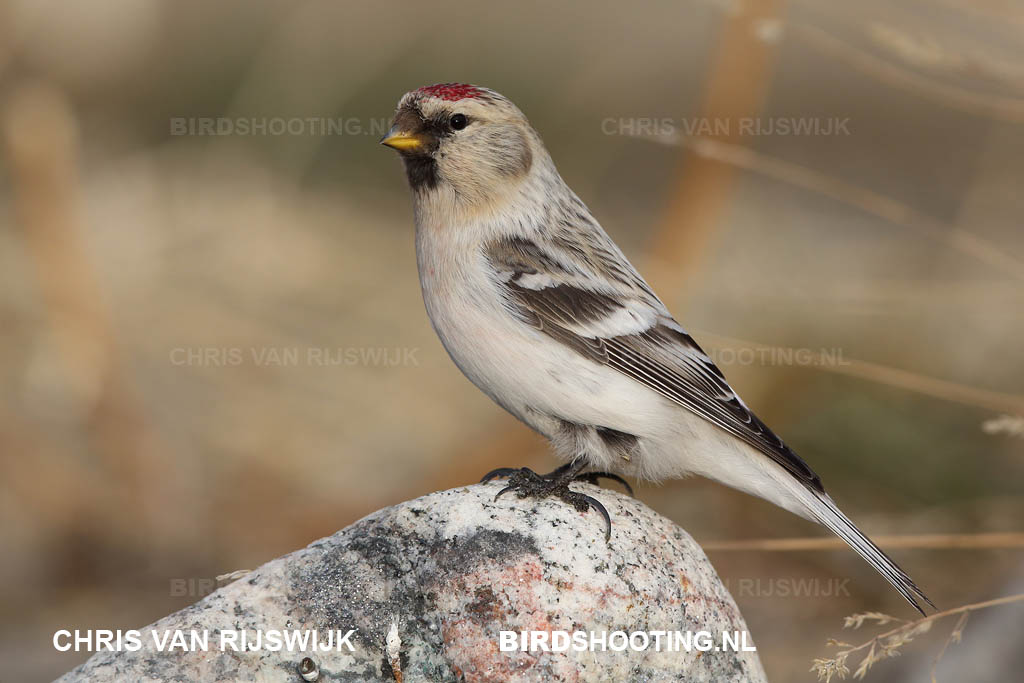
Hornemann’s Arctic Redpoll, adult male, Greenland, March 2013.
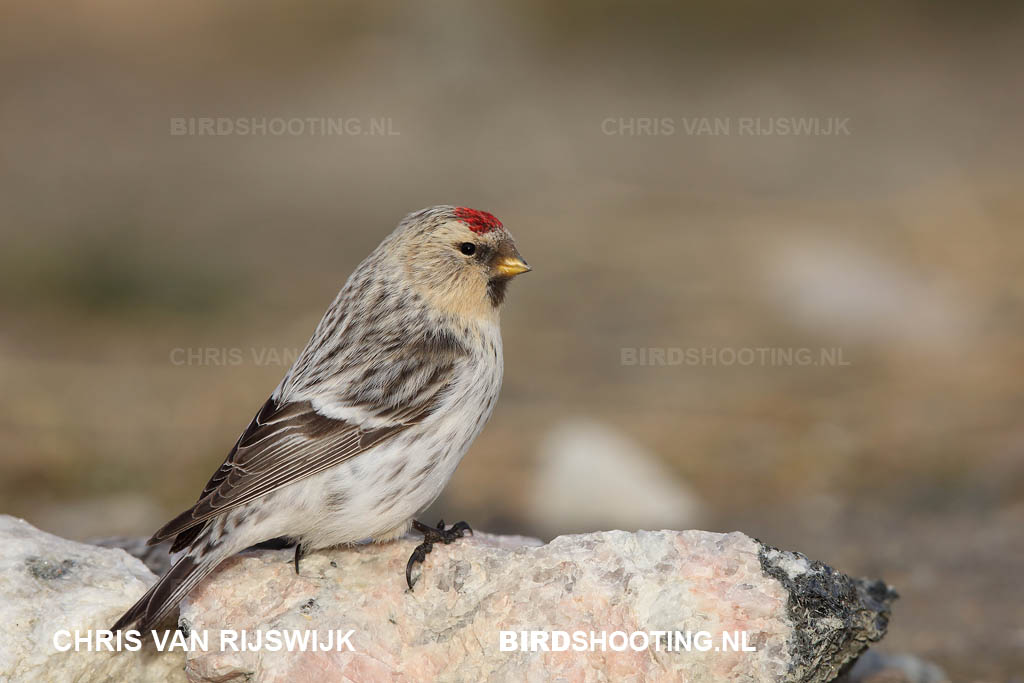
Hornemann’s Arctic Redpoll, 2nd cy, Greenland, March 2013.
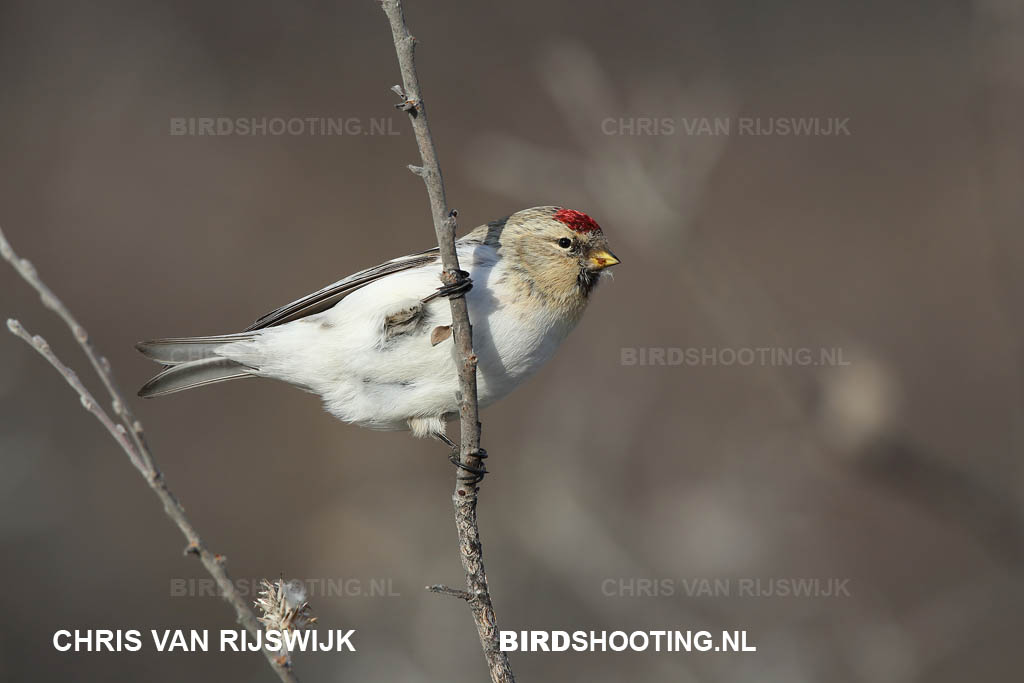
Hornemann’s Arctic Redpoll, Greenland, March 2013. 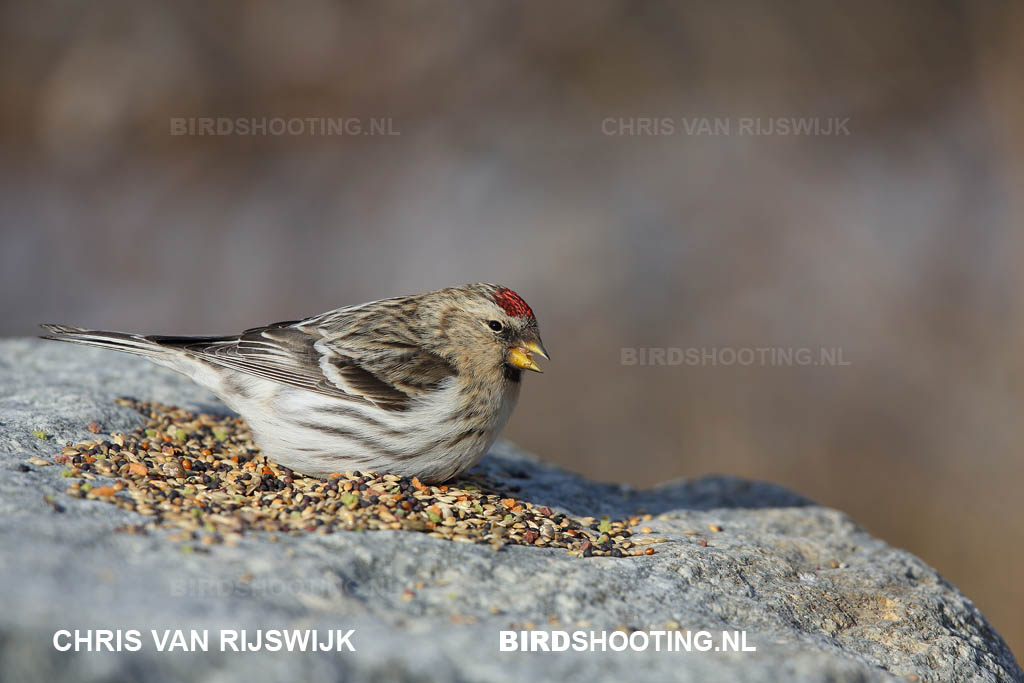
Hornemann’s Arctic Redpoll, 2nd cy, Greenland, March 2013. Obvious dark bird with dark flank streaking and brown upper parts, yet has a white rump (not visible in this picture). Would this bird be recognized as Hornemann’s Arctic Redpoll in Western Europe?
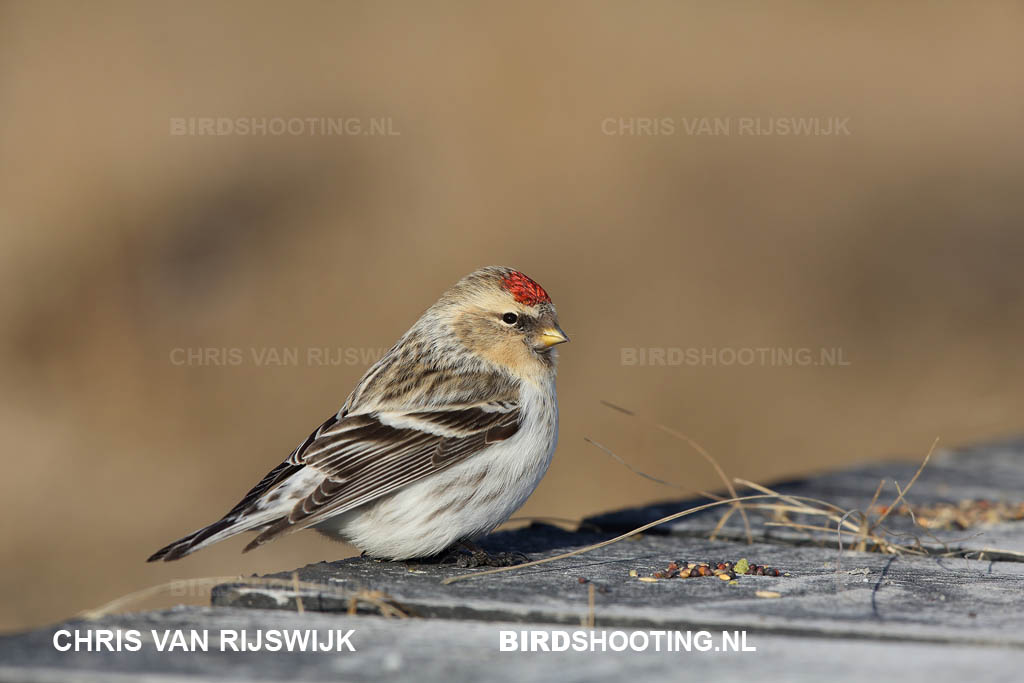
Hornemann’s Arctic Redpoll, 2nd cy? Greenland, March 2013. Bird with brown parts on his scapulars.
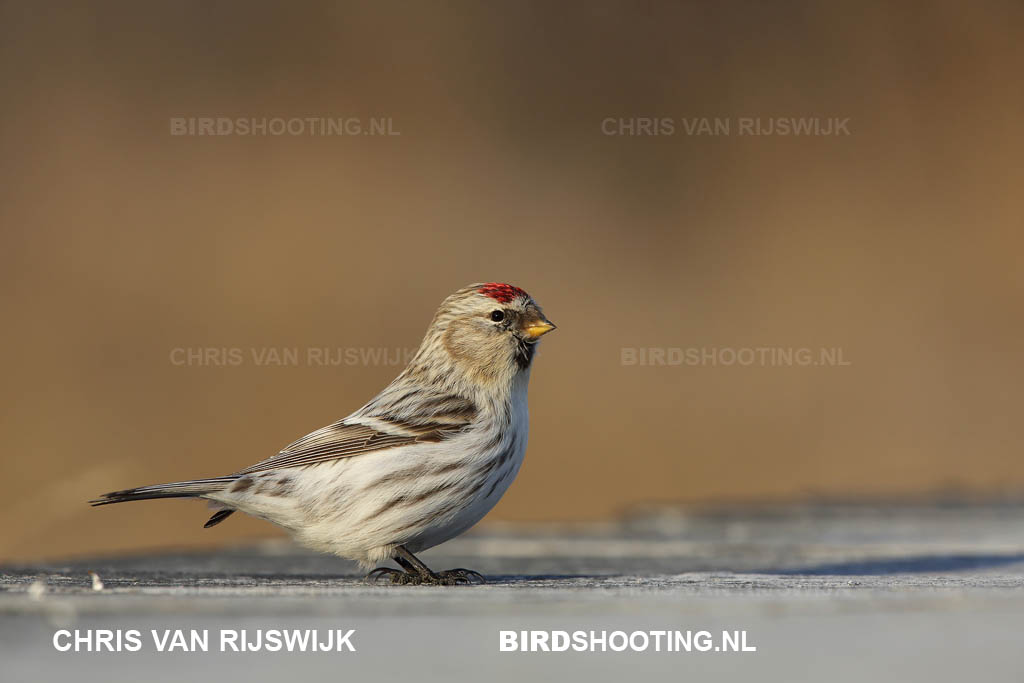
Hornemann’s Arctic Redpoll, 2nd cy? Greenland, March 2013.
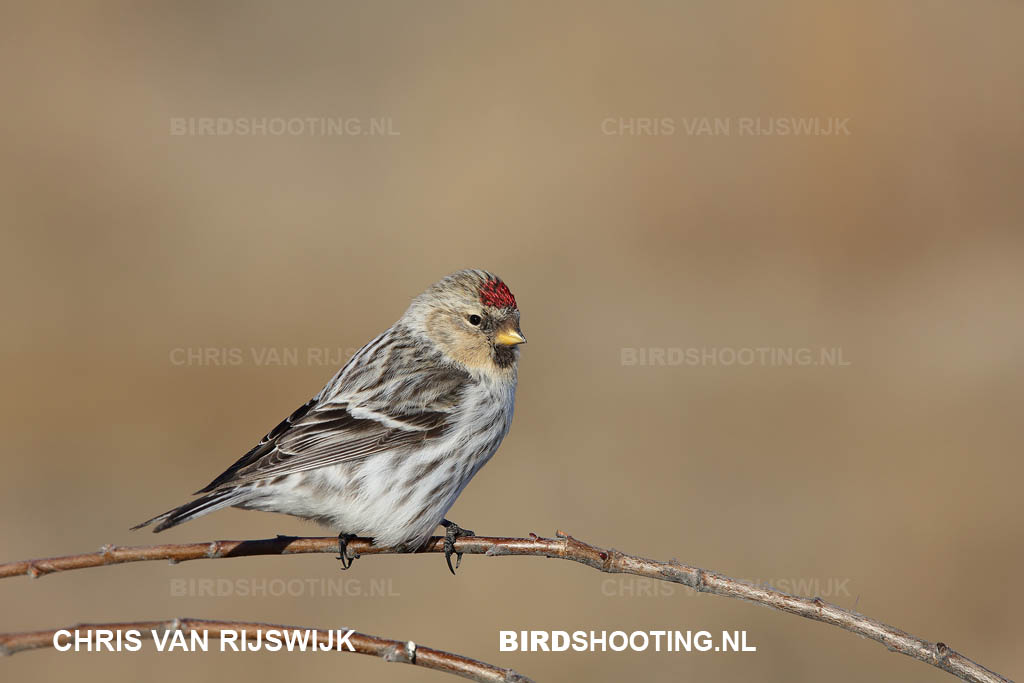
Hornemann’s Arctic Redpoll, 2nd cy, Greenland, March 2013.
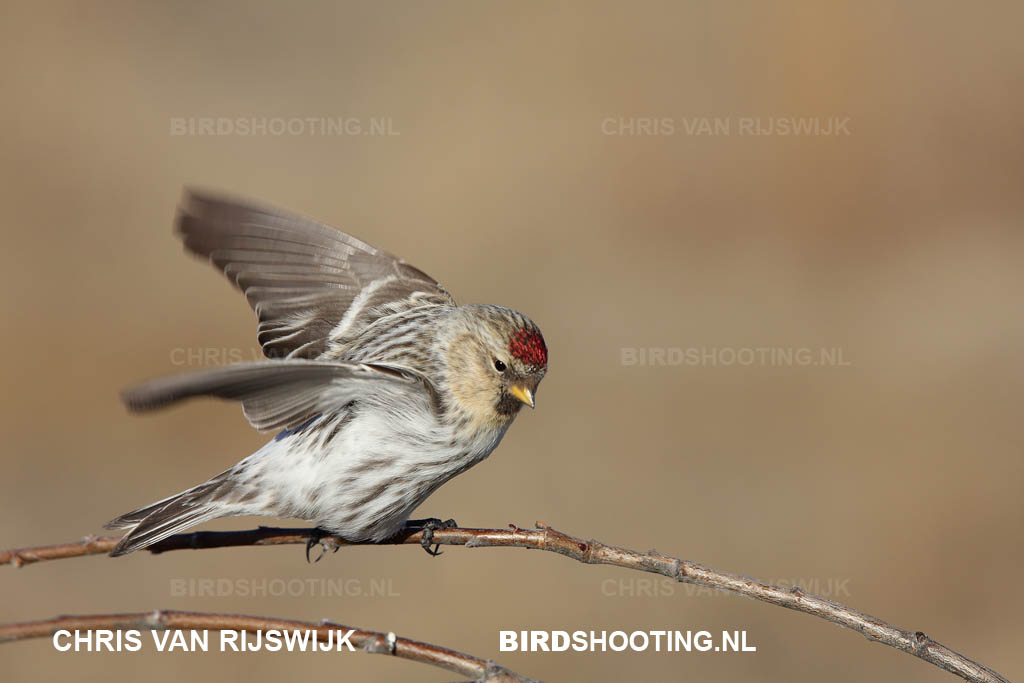
Hornemann’s Arctic Redpoll, 2nd cy, Greenland, March 2013. The same bird as picture above.
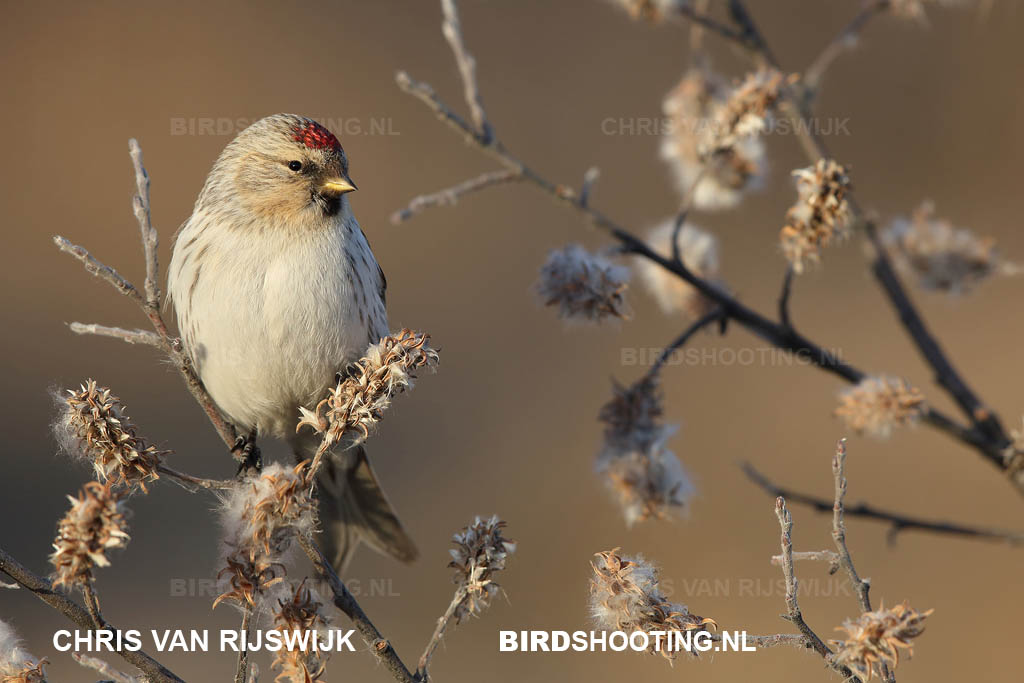
Hornemann’s Arctic Redpoll, Greenland, March 2013.
Differences between Hornemann’s Arctic Redpoll and Coues’s Arctic Redpoll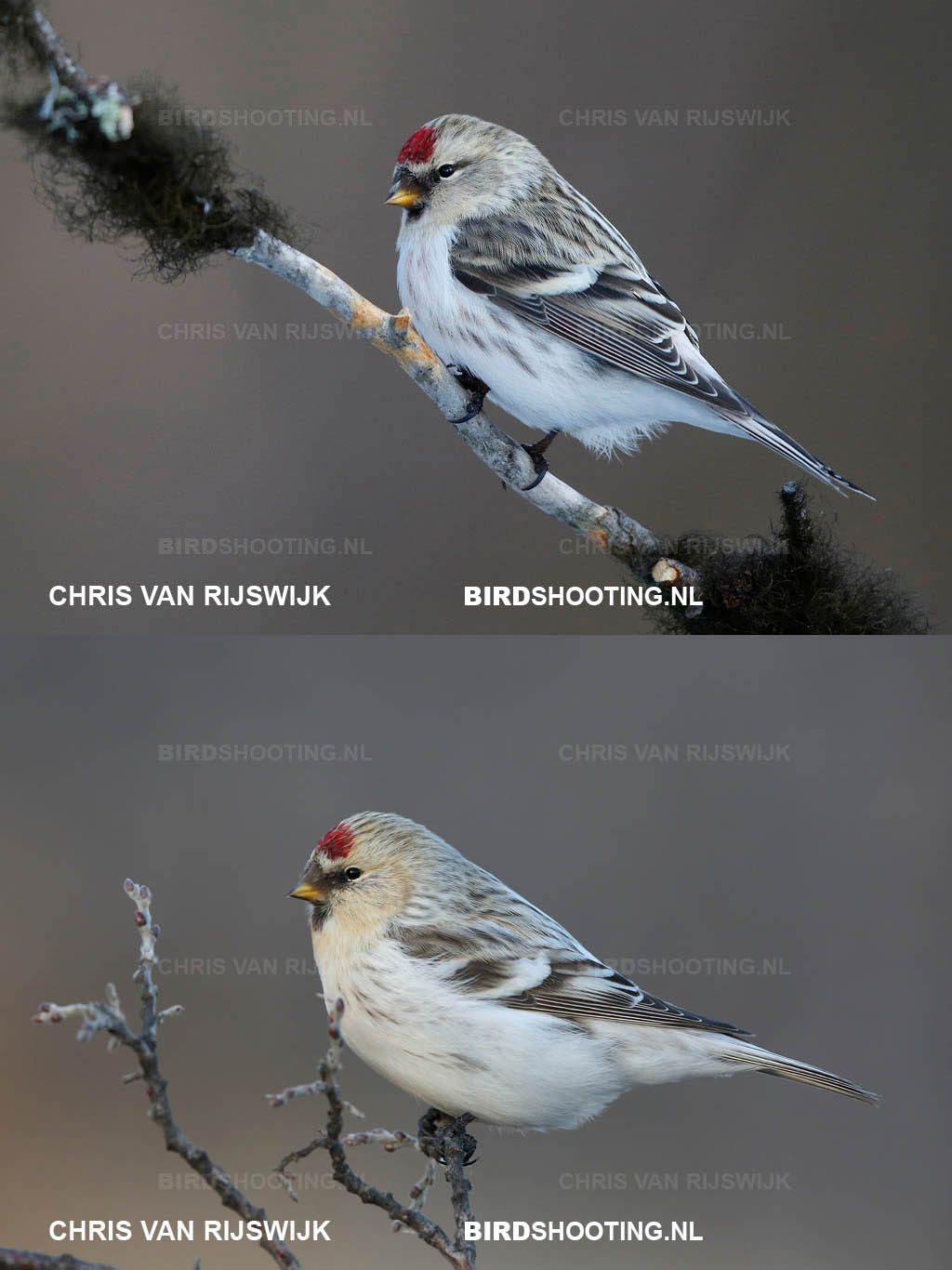
Coues’s Arctic Redpoll (above) vs. Hornemann’s Arctic Redpoll, both photographed in March and both redpolls are adult.
• Hornemann’s Arctic Redpoll is larger, heavy, longer wings and heavier bill
• Hornemann’s Arctic Redpoll has a larger white rump
• Hornemann’s Arctic Redpoll is (usually) paler
• Hornemann’s Arctic Redpoll is more uniform, less variable
• Hornemann’s Arctic Redpoll has a stronger buff wash to the face
• Hornemann’s Arctic Redpoll is usually expected in "early" autumn in Western Europe and Coues’s Arctic Redpoll later in the autumn
Redpolls in captivity
For decades redpolls are kept and bred in captivity, currently on a fairly large scale. There are various color mutations, from very pale to almost black. Redpolls in captivity are difficult to identify as (sub)species. For years, these birds have been selected by external characteristics. For example, there are redpolls with the colors of a Lesser Redpoll, but with the size of Mealy Redpolls including a large bill. These large birds are quite often called Greenland Redpolls. In my view, these birds are unrelated to 'real' Greenland Redpolls.
In recent years, there are more and more Coues’s Arctic Redpolls in captivity. I've seen birds in captivity they really looked like 'real' Coues’s Arctic Redpoll (see pictures below), including the tiny bill. Often these birds have cream wing bars (instead of white), but this is probably food-related in captivity.
I’ve never seen Greenland Redpolls or Hornemann’s Arctic Redpolls in captivity. As far as I know, there hasn't been recently any imports of finches from Greenland, Canada and the USA.
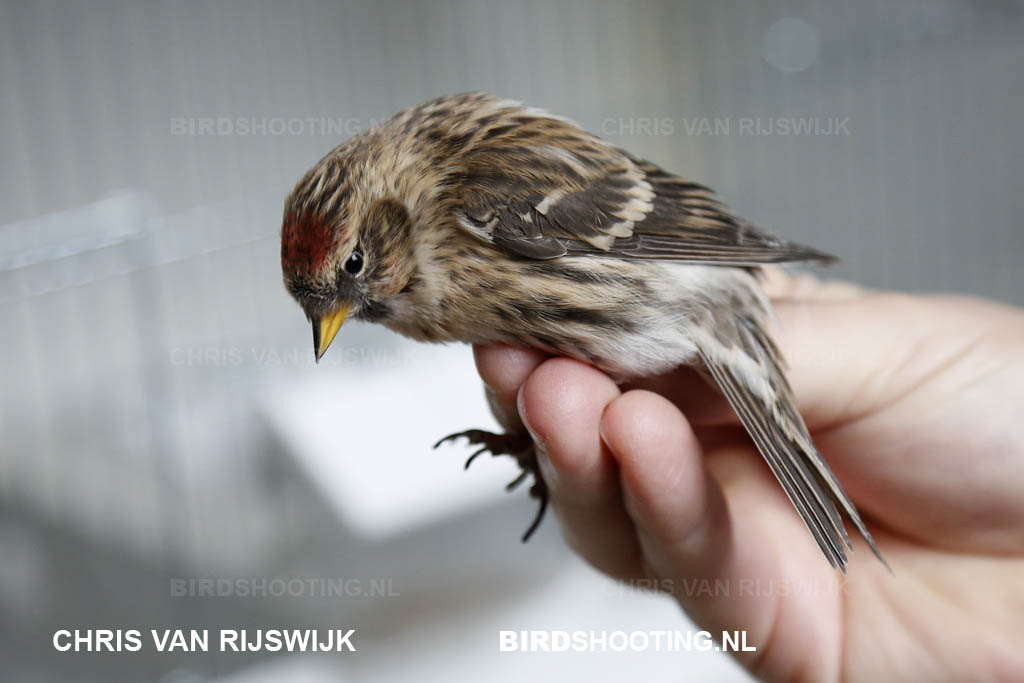
Mealy Redpoll, adult male, Rosmalen, the Netherlands, January 2015.
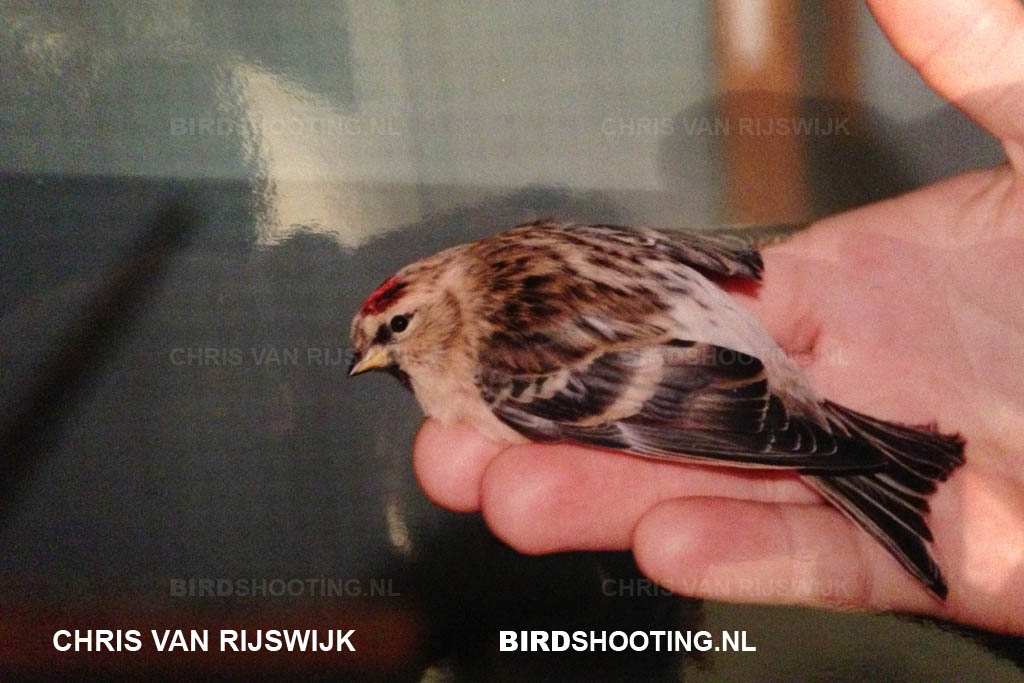
Coues’s Arctic Redpoll, male +/- 1995, the Netherlands, probably illegal trapped.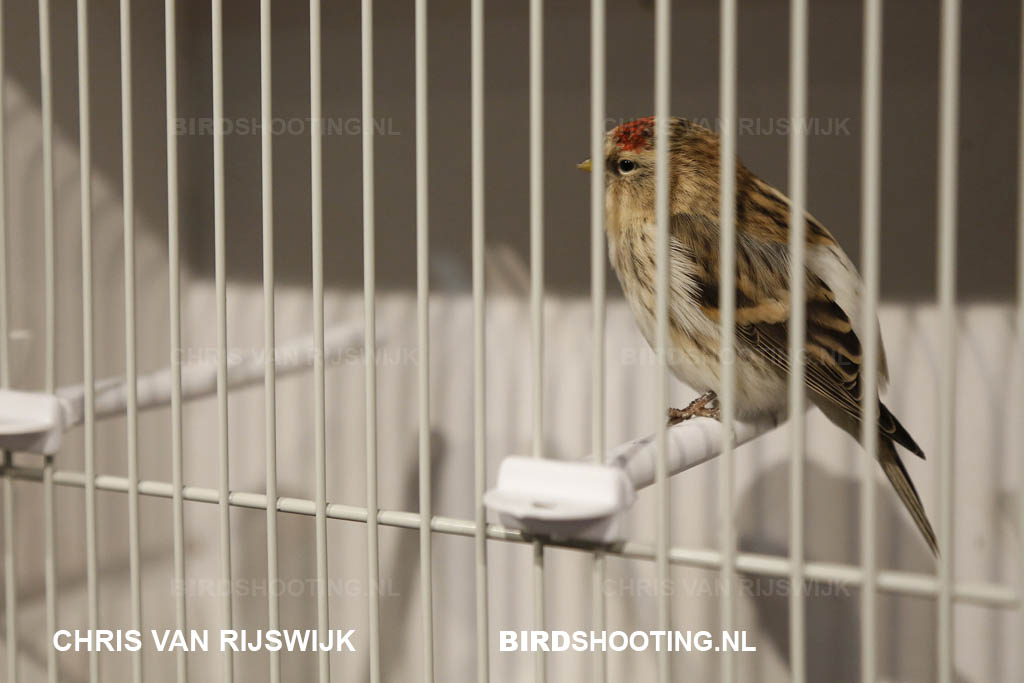
Coues’s Arctic Redpoll, Rosmalen, the Netherlands, January 2015.
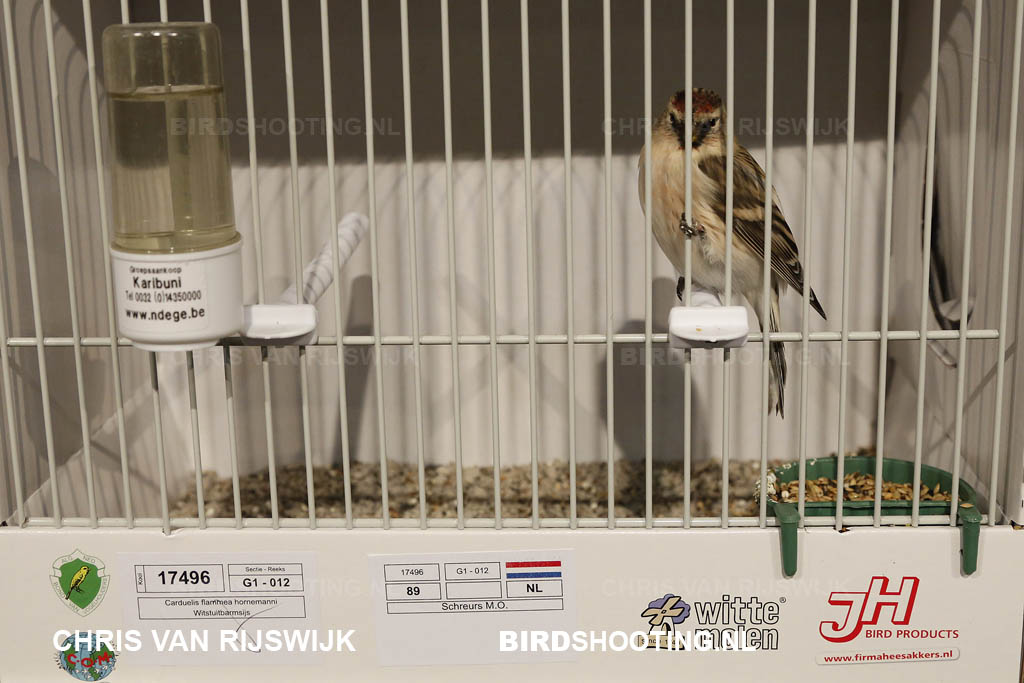
Coues’s Arctic Redpoll, Rosmalen, the Netherlands, January 2015.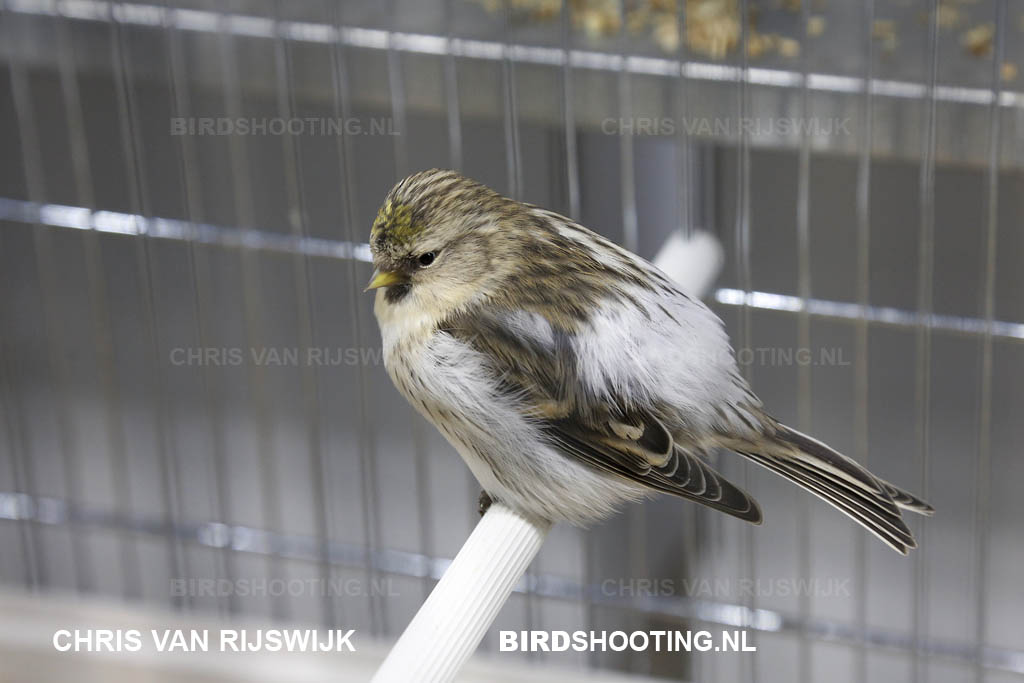
Coues’s Arctic Redpoll, Rosmalen, the Netherlands, January 2015.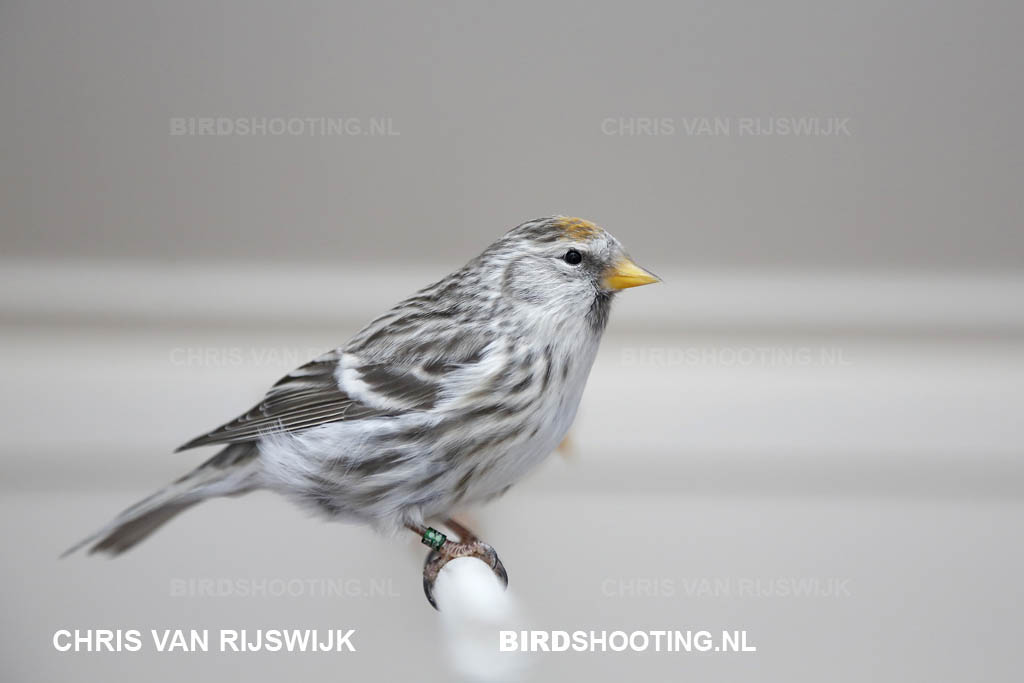
Mealy Redpoll, adult female, Rotterdam, the Netherlands, September 2015, agate mutation.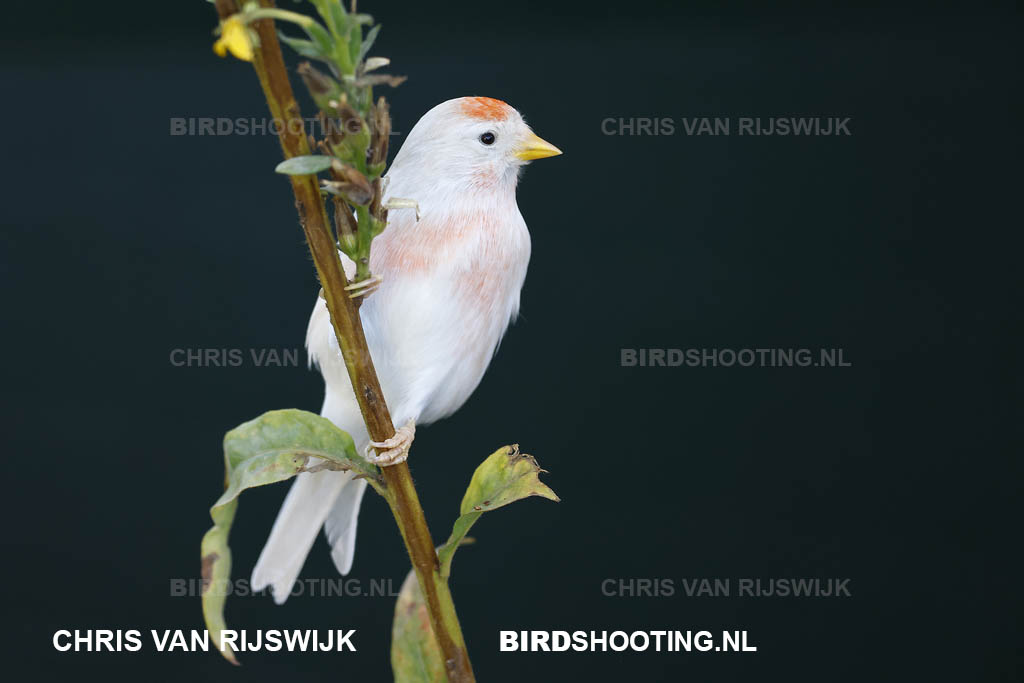
Mealy Redpoll, adult male, Rotterdam, the Netherlands, November 2022, isabel mutation.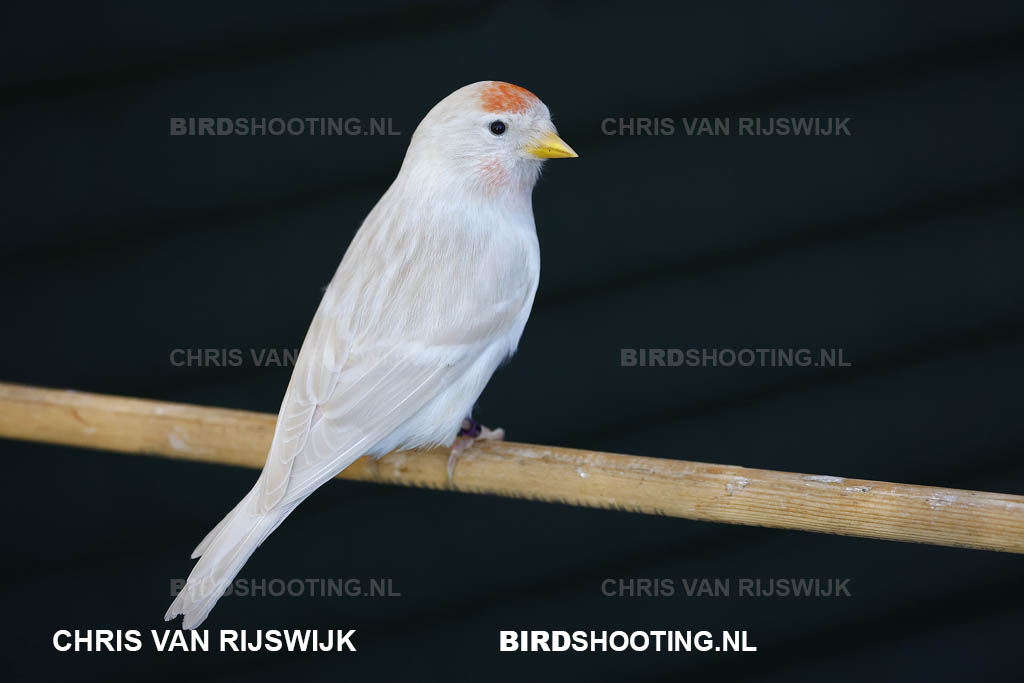
Mealy Redpoll, adult male, Rotterdam, the Netherlands, November 2022, isabel mutation.
Sexing and ageing redpolls?
Finally
Not all redpolls are easy to identify. Are you not sure about your identification? No problem, there are bigger issues in life. Just enjoy the bird you are looking at, because every redpoll in itself is beautiful!
If you have any questions about redpolls, please do not hesitate to contact me. I also like to look at pictures of redpolls, so feel free to send me a link or an email with pictures...
